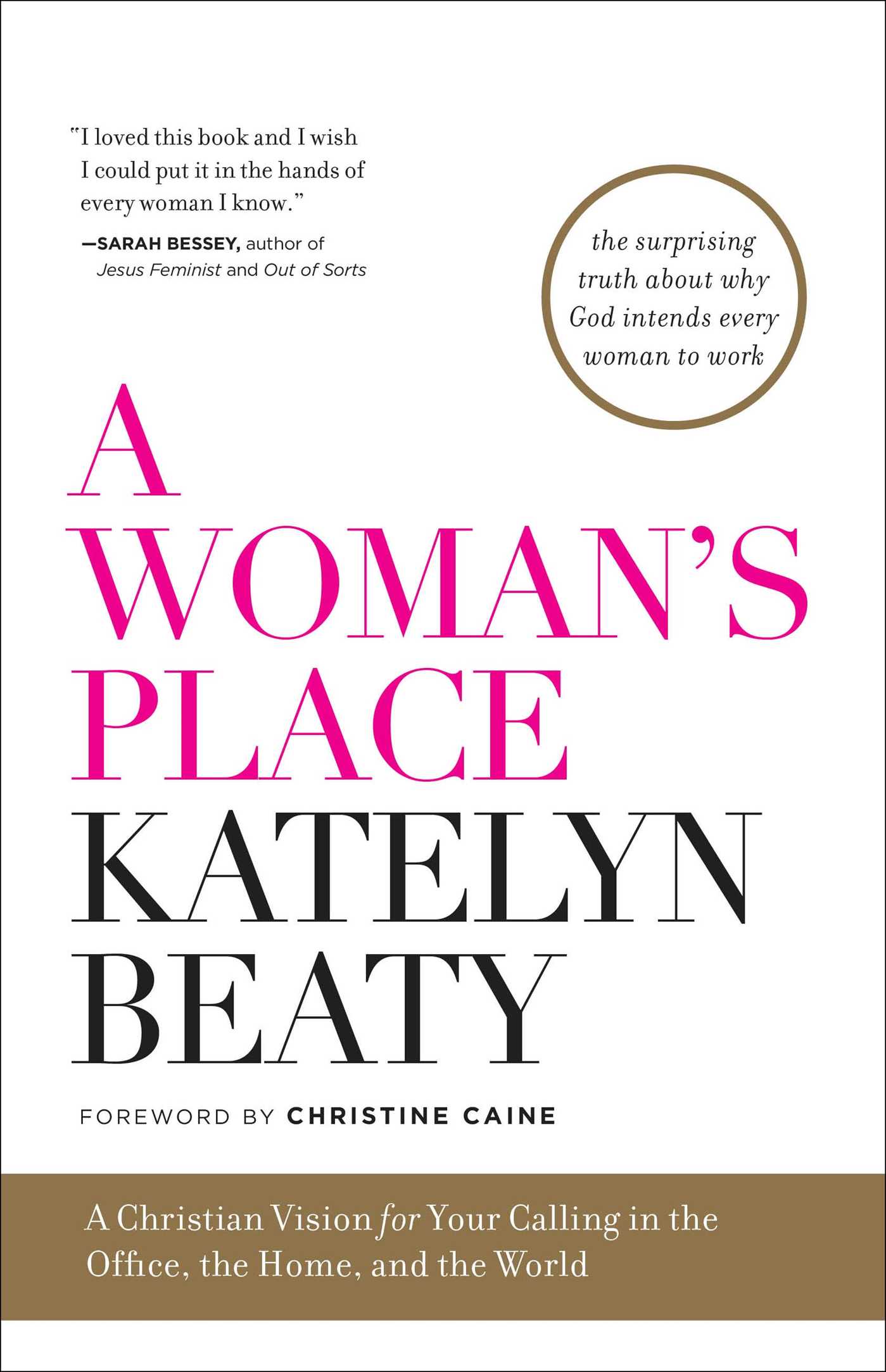 YOU ARE INVITED TO JOIN US FOR A BOOK RELEASE PARTY
YOU ARE INVITED TO JOIN US FOR A BOOK RELEASE PARTY
AND
IN-STORE AUTHOR APPEARANCE
THURSDAY SEPTEMBER 29, 2016
WITH
MITCH HESCOX & PAUL DOUGLAS
CO-AUTHORS OF Caring for Creation: The Evangelical’s Guide to Climate Change and a Healthy Environment
THERE WILL BE A PRESENTATION ON THEIR BRAND NEW BOOK, TIME FOR CONVERSATION AND OF COURSE AUTOGRAPHING AND LIGHT REFRESHMENTS. HELP US SPREAD THE WORD.
As you will see in our review below, the Rev. Mitch Hescox is a local friend, a former coal industry engineer, beloved United Methodist pastor and now President and CEO of the Evangelical Environmental Network. Paul Douglas is an award winning meteorologist and techie innovator, having invented certain 3-D computer weather graphics. Now working in the Twin Cities of Minnesota, we are thrilled that Paul will join Mitch here in Dallastown for this exciting evening to launch their book into the world.
ORDER NOW
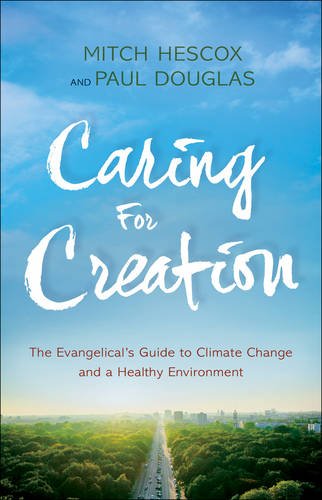 Caring for Creation: The Evangelical’s Guide to Climate Change and a Healthy Environment by Mitch Hescox and Paul Douglas (Bethany House; $14.99)
Caring for Creation: The Evangelical’s Guide to Climate Change and a Healthy Environment by Mitch Hescox and Paul Douglas (Bethany House; $14.99)
Hearts & Minds SALE PRICE $13.49
Please use our link to the order form page below.
In our last BookNotes newsletter we offered a few words about Labor Day, linked to previous Hearts & Minds lists and bibliographies showcasing books about work, celebrating that the Spirit is doing something in this arena in these days, calling church folk to wake up to the need for a Christian perspective in their ideas about work and the nature of their jobs leading to a lived out Christ-like suite of practices in the workplace. I hope you read it and enjoyed the reviews and links and suggestions.
The book we want to tell you about today is not overtly about work or career or calling, but yet these themes are near and underneath much of the great story it tells. It is a great case studies in many ways about how people discern their vocations in life and how personal faith can lead to public action. Caring for Creation: The Evangelical’s Guide to Climate Change and a Healthy Environment by Mitch Hescox and Paul Douglas (Bethany House; $14.99) is such a good read in part because these two gentleman have a story to tell, not just about the details of climate change, framed by Biblical teachings about creation care, but a story of their own professional awakening. Mitch used to work in the coal industry. Paul is a world renowned meteorologist. Both are Penn State fans, which is mostly beside the point, but I had to say it. They are both those kind of guys.
GREAT GUYS, GREAT AUTHORS
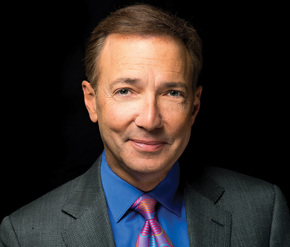 Mr. Douglas, formerly of Lancaster, PA, is known in his field not only as a weatherman who makes jokes about the Amish Doppler (that would be a window, a helpful scientific tool in weather forecasting) but as a creative professional who, in fact, invented some of the best Doppler technology. One of his early companies (EarthWatch) brought 3-D weather graphics to TV stations and Hollywood icon Steven Spielberg used his special effects for Jurassic Park and the film Twister. Douglas even has a cameo and speaks one line in it. He notes that if you sneeze you’ll miss it and his last residual check from Warner Bros was, literally, one cent. (“So much for my film career.”) Didn’t I say this was someone about discerning one’s calling? Ha.
Mr. Douglas, formerly of Lancaster, PA, is known in his field not only as a weatherman who makes jokes about the Amish Doppler (that would be a window, a helpful scientific tool in weather forecasting) but as a creative professional who, in fact, invented some of the best Doppler technology. One of his early companies (EarthWatch) brought 3-D weather graphics to TV stations and Hollywood icon Steven Spielberg used his special effects for Jurassic Park and the film Twister. Douglas even has a cameo and speaks one line in it. He notes that if you sneeze you’ll miss it and his last residual check from Warner Bros was, literally, one cent. (“So much for my film career.”) Didn’t I say this was someone about discerning one’s calling? Ha.
It is important that Mr. Douglas is an entrepreneur – he sold some of his tech stuff to Garmin in 2007 and now works to brief Fortune 500 companies on global weather risks and threats, “helping weather-sensitive companies operate more efficiently, profitably, and safely with desktop and mobile applications.” You see, he’s not a crunchy neo-hippy or anti-pipeline activist. He is a science guy who works in the corporate world, is a entrepreneur who has “sweated out payroll” and – get this: “believes the power of markets can help transform our world for the better.” Which is to say he is a Republican, of the Reagan sort. Joking about how rare this combo may seem, he calls himself “an albino unicorn.” Alrightee then.
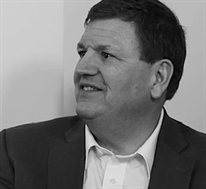 And then there is my friend and almost neighbor from here in South Central Pennsylvania, Reverend Mitch Hescox. He was raised in a coal mining family in one of the scrubby industrial towns in Western PA. He has regaled me with stories of growing up as I imagined my own father did (my grandfather was a coal miner and died of Black Lung disease) playing in the toxic pools of water fouled with sulfur and messing around in the mine shafts and strip mine fields.
And then there is my friend and almost neighbor from here in South Central Pennsylvania, Reverend Mitch Hescox. He was raised in a coal mining family in one of the scrubby industrial towns in Western PA. He has regaled me with stories of growing up as I imagined my own father did (my grandfather was a coal miner and died of Black Lung disease) playing in the toxic pools of water fouled with sulfur and messing around in the mine shafts and strip mine fields.
“One vivid memory,” Hescox writes, “was the volunteer fire department’s siren going off in the middle of the day. In our town, that siren typically wasn’t a warning of a fire but rather a coal mine accident. On more than one occasion, those accidents involved at least one of my family members.” Of course he worked the mines, too, until he left the region to get an engineering degree. As he puts it,
I spent the first fourteen years of my professional life in the coal industry. After college, I began my career selling, installing, and eventually designing equipment for use in coal processing or in coal-fired utilities. My last coal-related position saw me designing grinding equipment for pulverized coal boilers in China, India, and South Africa.
Which is to say, he helped create sub-standard technologies that would not even have been permitted in the US or Europe as they were cheaply made and polluting. He doesn’t say this in the book, but without a robust vision of vocation he was able to compromise basic values and was part of a larger industrial system that was in dire need of reform. I can’t help but think of the brave whistleblower such as Jeffrey Wigand portrayed in The Insider, the must-see, award-winning movie about the tobacco industry. Mitch was not that guy.
But he sort of is now.
These authors, then, have been deeply involved in the very sciences and skill sets in the fields that we must understand if we are going to wrap our minds around the topic of climate change – the energy industry and meteorology. There have been many books on this, even some by devout people of faith, but none that are overtly Christian and written by such industry insiders.
And certainly none that are whimsical, upbeat, easily understandable, written by Bible-believing, fairly conservative Republicans. They joke about how they do not genuflect when they hear the name Al Gore. I’m telling you, this is a book that deserves to be read and discussed and considered. Kudos to Bethany House, part of the Baker Publishing Group, for releasing it.
Mitch says in the wonderful introductory chapter that “coal is part of my legacy, but so is God. Growing up, a little white country church was the center of my life.”
As it ends up, during a tumultuous time as a college student at the University of Arizona he  re-dedicated his life to Christ; he called that season his Jonah experience. (Interestingly, in a theme that will re-emerge later in the book, his own spiritual re-conversion happened while on a grueling hiking journey in the wilderness, witnessing a blazing saguaro cactus deep in the Sonoran Desert. It is notable, they later say, how many people say they find God in nature, and have had significant spiritual encounters with God while in the beauty of creation. Not a bad reason to care for creation and steward well our eroding environment! These guys are conservatives that believe in conservation!)
re-dedicated his life to Christ; he called that season his Jonah experience. (Interestingly, in a theme that will re-emerge later in the book, his own spiritual re-conversion happened while on a grueling hiking journey in the wilderness, witnessing a blazing saguaro cactus deep in the Sonoran Desert. It is notable, they later say, how many people say they find God in nature, and have had significant spiritual encounters with God while in the beauty of creation. Not a bad reason to care for creation and steward well our eroding environment! These guys are conservatives that believe in conservation!)
Mitch eventually became a United Methodist pastor and served the local church well for almost twenty years. He has had a good ministry helping the church become more Christ-centered, more spiritually alive, and more missional, as we now say, outward focused and service-minded. He was a good pastor and a fruitful church leader.
As Mitch continued to be open to God’s leading he increasingly felt called into the fray of energy policy and creation care – perhaps atoning for his years facilitating some of the worst polluting on the planet by selling these sub-standard scrubbers to third world nations? He doesn’t offer much about how he sensed this call, although “it was no overnight epiphany.” He speaks for his co-author Paul as well when he describes their growing interest in stewarding the earth well. “Our conviction built gradually; a slow-motion realization that the threat was real and people of faith have a moral obligation to step up.”
Mitch is now the President and CEO of the Evangelical Environmental Network (EEN), the largest evangelical group dedicated to creation care, an organization we have gladly followed since its inception. Their former leaders and current staff are folks I greatly, greatly esteem!) As such, he has been an international spokesperson, spending time educating others and doing public advocacy, writing op-ed pieces in the national media and testifying before congressional hearings, the EPA, and the like. He is still an evangelist at heart and has told me about some of the beautiful conversations that have opened up (even on airplanes) when non-Christians or formerly churched folks hear that he is an evangelical and a climate activist. I would say he is now living into the role of being both pastoral and prophetic, always eager to talk about God’s grace shown in the gospel but also willing to denounce the idols of the time when necessary. He’s balanced, and this book captures that beautiful tone.
 Caring for Creation: The Evangelical’s Guide to Climate Change and a Healthy Environment is spiritually vibrant, passionate and clever. It is easy to follow although jam-packed with stats and data and a few charts. (Please: if you are like me and are pretty allergic to books with charts – don’t fret. They explain everything quite nicely and even in those few pages that show the math, the figures and footnotes are really clear and helpful.) Caring… is not academic, although it is informed by good science, lots of it. It is not theological, although they can quote N.T. Wright and John Wesley and John Calvin’s commentary on Isaiah 24 with the best of ’em. They are decidedly evangelical (and quote Billy Graham, of course) but they also happily cite Pope Francis.
Caring for Creation: The Evangelical’s Guide to Climate Change and a Healthy Environment is spiritually vibrant, passionate and clever. It is easy to follow although jam-packed with stats and data and a few charts. (Please: if you are like me and are pretty allergic to books with charts – don’t fret. They explain everything quite nicely and even in those few pages that show the math, the figures and footnotes are really clear and helpful.) Caring… is not academic, although it is informed by good science, lots of it. It is not theological, although they can quote N.T. Wright and John Wesley and John Calvin’s commentary on Isaiah 24 with the best of ’em. They are decidedly evangelical (and quote Billy Graham, of course) but they also happily cite Pope Francis.
And it is a good thing, too: his Laudato Si’: On Care for our Common Home is very, very important and an excellent, beautiful document. We have been happy to stock several editions of it since it was released last year.
I could describe other features of Caring for Creation as I was enthralled with it. (And, for the record, I have read a lot of books on this topic, both the general genre of books about Christian Earth-keeping and environmental stewardship and specific stuff on the science and policies around climate change. See a passionate piece I wrote here which includes a good list.)
FOUR GOOD FEATURES
Here are four good features that might make Caring for Creation appealing to you or your book group. There are more than four, but these are four good reasons to buy the book. Maybe it is a book you’ll give away to someone you wish would more carefully consider this topic.
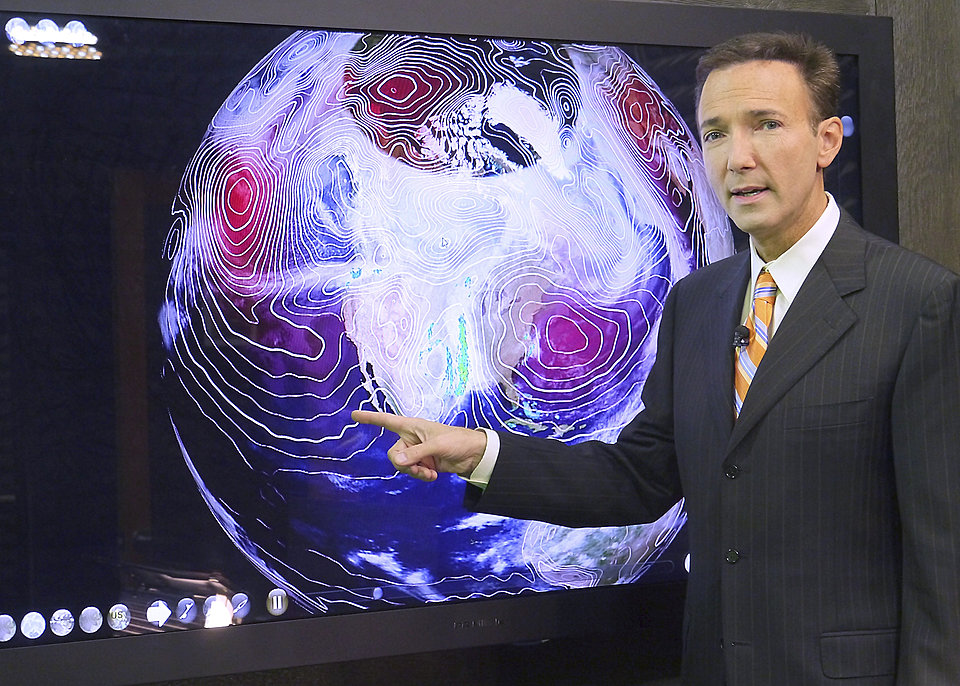 First, again, it is nicely written with a light touch, even though there are oodles of footnotes, many from academic journals, meteorological studies, and prestigious scholarly sources. Like great college professors or others with the gifts of teaching they are able to explain complex and detailed stuff with quips and motivational passion drawing us right into the content. This is as fine an introduction to this topic as you are going to find. If you need convincing that the melting icecaps and change in ocean temperatures and sea levels and storm intensity isn’t a huge, human-caused pattern that must be addressed, Caring for Creation will help. The evidence they marshal, the balanced, non-ideological view, the common sense writing and the interesting explanation of good science from all over the world will be very compelling. It’s a great book for ordinary readers.
First, again, it is nicely written with a light touch, even though there are oodles of footnotes, many from academic journals, meteorological studies, and prestigious scholarly sources. Like great college professors or others with the gifts of teaching they are able to explain complex and detailed stuff with quips and motivational passion drawing us right into the content. This is as fine an introduction to this topic as you are going to find. If you need convincing that the melting icecaps and change in ocean temperatures and sea levels and storm intensity isn’t a huge, human-caused pattern that must be addressed, Caring for Creation will help. The evidence they marshal, the balanced, non-ideological view, the common sense writing and the interesting explanation of good science from all over the world will be very compelling. It’s a great book for ordinary readers.
And, not surprisingly, they have a little bit about the relationship of faith and science, what it means to be a person of truth and integrity, resisting ideologies of the right and left and following the data wherever we can. Again, this book is lively and interesting but it covers a lot of the current debates about the scientific consensus, discussion of junk science, and of why people of orthodox Biblical faith and evangelical spirituality should be eager to follow the science.
(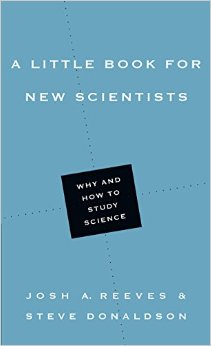 Permit me a little digression, here, but we just got into the store the pocket sized, truly brilliant, long needed A Little Book for New Scientists: Why and How to Study Science by Josh A. Reeves & Steve Donaldson (IVP Academic; $12.00) which is tremendous, just tremendous, on these very themes. Designed for college students, it is great for anybody who likes reading about the interface of religion and science.)
Permit me a little digression, here, but we just got into the store the pocket sized, truly brilliant, long needed A Little Book for New Scientists: Why and How to Study Science by Josh A. Reeves & Steve Donaldson (IVP Academic; $12.00) which is tremendous, just tremendous, on these very themes. Designed for college students, it is great for anybody who likes reading about the interface of religion and science.)
So, yes, Caring for Creation: The Evangelical’s Guide… is easy to read and helps us understand the consensus about the climate science and the dangers to our health from pollution and a bit about why some are skeptical for these concerns. It’s a great read, informed and smart and obviously important.
Secondly, we commend this brand new book because it really does frame all of these concerns in light of joyous evangelical Christian living. These two guys and the organization they represent love Christ, they live for the gospel, they are eager to share their own faith and spiritual testimonies. They nicely ground their expansive social vision and desire to make a difference in the hurting world in their personal experience in the church and their good understanding of God’s Kingdom. They got a winsome, attractive faith — not strident or contentious as some might fear in a book like this. There other books that more systematically and seriously relate theology and ecological work, better and more comprehensive Biblical studies on creation care. But Caring for Creation is obviously written out of a great confidence in God’s ways and the author’s commitments to being faithful to what God demands of us in these days. It is refreshing.
Thirdly, Caring for Creation: The Evangelical’s Guide to Climate Change and a Healthy Environment frames some of the environmental material – I hope you find this as curiously attractive as I do – in light of what it means to be pro-life. EEN has done stellar work connecting the way mercury pollution, for instance, effects the unborn; they have made good strides helping traditional anti-abortion folk become more consistently pro-life. To expand the vision of the pro-life community to include quality of life issues, the dangers pollution presents to the unborn, to insist that a pro-life perspective include protecting pregnant moms and, of course, all children, is a huge, noble undertaking. They’ve attracted to the cause of fighting air and water pollution many who have not been politically or socially active before, including many whose entry to these issues have been mostly motivated by right-to-life principles.
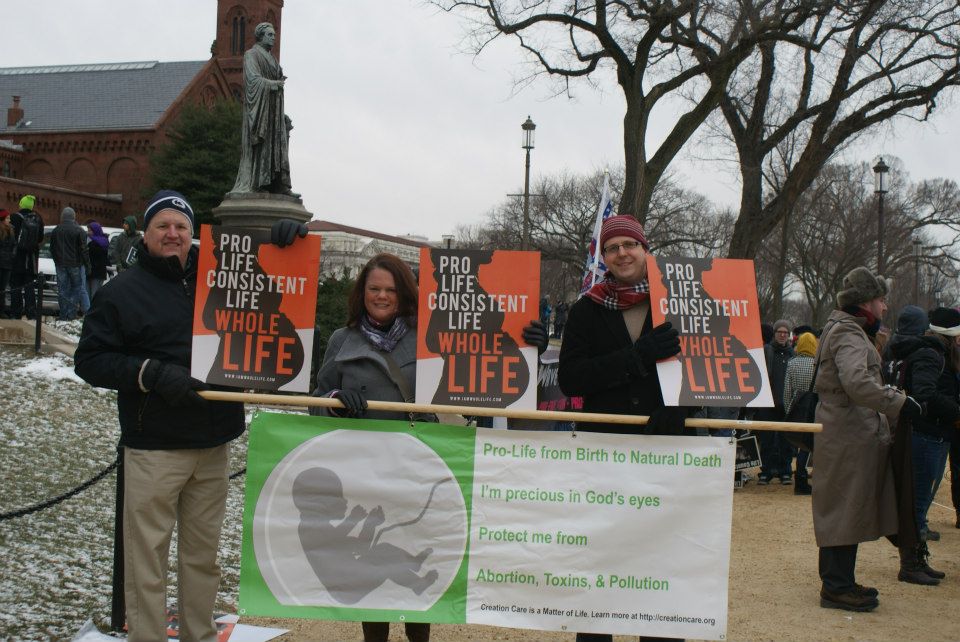 I wish they would have talked about this more but since it isn’t the primary concern of the book they don’t explore it, but it is my experience that there are a lot of closeted pro-life folks within the peace and environmentalist movements; similarly there are closeted “greens” within the pro-life movement, too; in both cases they are nervous about admitting their true concerns to their associates. To see this book bravely advocate for issues that are often (needlessly) perceived as liberal or left-leaning by linking them to an authentic and wholistic pro-life vision perhaps frees other pro-life folk on the left or environmentalists on the right to make connections and shift the bi-polar ways these things are unhelpfully discussed. Maybe this isn’t as exciting to you as it is to me, but it’s a sly little aspect of the book, innovative, even, bringing into conversation folks who are too often polarized and not talking to each other. Reading CfC reminds us that green is not a liberal color and that caring for a healthy environment can help us transcend partisan politics.
I wish they would have talked about this more but since it isn’t the primary concern of the book they don’t explore it, but it is my experience that there are a lot of closeted pro-life folks within the peace and environmentalist movements; similarly there are closeted “greens” within the pro-life movement, too; in both cases they are nervous about admitting their true concerns to their associates. To see this book bravely advocate for issues that are often (needlessly) perceived as liberal or left-leaning by linking them to an authentic and wholistic pro-life vision perhaps frees other pro-life folk on the left or environmentalists on the right to make connections and shift the bi-polar ways these things are unhelpfully discussed. Maybe this isn’t as exciting to you as it is to me, but it’s a sly little aspect of the book, innovative, even, bringing into conversation folks who are too often polarized and not talking to each other. Reading CfC reminds us that green is not a liberal color and that caring for a healthy environment can help us transcend partisan politics.
In other words, this book is pleasantly paradigm shaking, surprising at times, not predictable. They are not the only anti-global warming activists who lean right politically and they are not the only voices linking concern for the unborn with a robust program of fighting toxic pollution, but it is still striking. This refreshing take on things makes for a really rewarding and even inspiring read.
Fourthly, I think many will appreciate the practical (if visionary) proposals they weave into the book. Of course we all need to consider lowering our carbon footprints, we need to push our organizations towards more faithful, sustainable practices. We are fastidious about recycling and try to watch our energy consumption and hope you are too. But there are bigger fish to fry, and Hescox and Douglas make some pretty big and quite thoughtful proposals about policy and our own advocacy as citizens. This stuff is inspiring and very interesting.
Paul, the science guy who serves as a meteorological consultant with businesses and organizations all over the world, has seen how institutions work, knows corporate culture, and has been involved in global conversations with thought leaders and executives. It seems he has an awareness of what works, how to get typically conservative institutions and agencies to move proactively. Mitch, the former engineer who worked in global technology transfer and who became a small town pastor and now serves as a faith-based environmental activist, has testified before congress, before sub-committees at the state and national level, has done daunting media work and sat in the White House at high level meetings. These guys know what they are talking about.
Their reputations and insight are hard-earned and they deserve our respectful consideration. This book deserves to be read. Again, there are more sophisticated, advanced-level policy books with arcane details about the global summits, international treaties, and carbon use protocols; for non-specialists, though, Caring for Creation… brings us up to speed with just a small bit of policy proposals, ideas that can fuel good conversations and better citizenship among us. I recommend it for this reason, too.
By the way, there is a little motivational page or two that reminds me that Mitch has lived here in South Central PA for decades. He cites a major report done by our local York Daily Record newspaper editor, James McLure, who explained what was well known during the World War II years as “The York Plan.” Created in 1942, it included a 15-point plan which had to do with converting industry, coordinating business plans, creating a “all hands on deck” cooperative vision that would allow business and industry to focus on the public good and the urgent crisis facing the country. Our small town industrial base became the generative context for creative thinking about solving large, looming problems.
As they describe it, The York Plan “called for shared expertise; sought cooperation and joint resources; and cared for health, housing, and fair wages for all.” It was “adapted quickly for national use, provided the blueprint to defeat a common threat; our society coming together to find solutions, work in harmony, remain competitive, and value its employees.” We need to rekindle this vision and concept, they say, and this book truly inspires us all to understand, to care, to take steps both personal and civic, allowing God to lead us to better practices of our grand call to be stewards of the creation God made and so loves.
Hope you noticed (above) that we are hosting both authors to talk about the Caring for Creation book here at the bookstore on Thursday night, September 29th. If you can’t come but want an autographed copy, let us know before then. We can have them inscribe it, even, if you give us a name to whom you’d like it made out. See our Facebook events page, too, for a reminder or to RSVP if you’d like.
SEVEN (or so) MORE mostly RECENT BOOKS
HIGHLY RECOMMENDED FROM HEARTS & MINDS
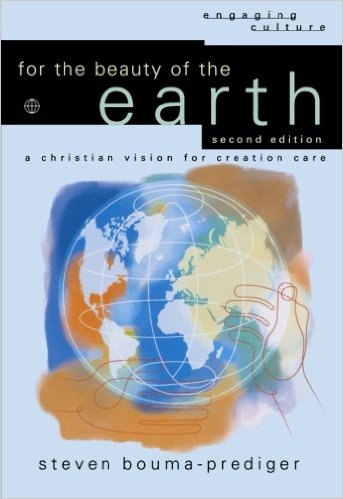 For the Beauty of the Earth: A Christian Vision for Creation Care
For the Beauty of the Earth: A Christian Vision for Creation Care
(2nd edition) Steven Bouma-Prediger (Baker Academic) $26.00 Okay, this isn’t new. And, although my theology of creation care was early formed by Francis Shaeffer’s 1970s still-in-print Pollution and the Death of Man and I am very much taken with the recent, serious contribution of Introducing Evangelical Ecotheology: Foundations in Scripture, Theology, History, and Praxis by Daniel Brunner, Jennifer Butler and A.J. Swoboda of George Fox University and looooved the lovely Making Peace with the Land: God’s Call to Reconcile with Creation by farmer Fred Bahnson and agrarian food philosopher Norma Wirzba, this one by Hope College prof is still my major go-to book for anyone wanting a comprehensive theology of creation care. It is a must-read, if just a bit academic at times. It is worth every moment studying it and bears repeated reading.
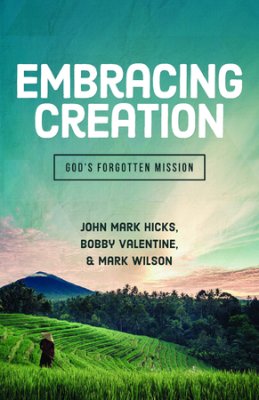 Embracing Creation: God’s Forgotten Mission John Mark Hicks, Bobby Valentine & Mark Wilson (Leafwood Publisher) $14.99 This wonderfully done new book is so refreshing and interesting as it relates a wonderfully robust view of new creation in the Bible to our environmental crisis. It invites us to explore the full story of God’s work in the world — God, creation, humanity, sin, redemption, promises of restoration. It draws on brilliant and well known friends of ours such as Richard Middleton, Al Wolters, and N.T. Wright as well as some of the finest Christian thinkers about environmental science and creational stewardship. All three authors have advanced seminary degrees and are not only Biblically astute, but have studied church history and know flow of ideas, the ups and downs of theological insights and how they have been applied. Hicks teaches at Lipscomb (he earned his PhD from Westminster Theological Seminary) while Valentine is a pastor in Tucson AZ. Mark Wilson (whose first Master’s degree was in biology) has worked for 36 years in conservation through the United States Fish and Wildlife Service. How great is that?
Embracing Creation: God’s Forgotten Mission John Mark Hicks, Bobby Valentine & Mark Wilson (Leafwood Publisher) $14.99 This wonderfully done new book is so refreshing and interesting as it relates a wonderfully robust view of new creation in the Bible to our environmental crisis. It invites us to explore the full story of God’s work in the world — God, creation, humanity, sin, redemption, promises of restoration. It draws on brilliant and well known friends of ours such as Richard Middleton, Al Wolters, and N.T. Wright as well as some of the finest Christian thinkers about environmental science and creational stewardship. All three authors have advanced seminary degrees and are not only Biblically astute, but have studied church history and know flow of ideas, the ups and downs of theological insights and how they have been applied. Hicks teaches at Lipscomb (he earned his PhD from Westminster Theological Seminary) while Valentine is a pastor in Tucson AZ. Mark Wilson (whose first Master’s degree was in biology) has worked for 36 years in conservation through the United States Fish and Wildlife Service. How great is that?
I really, really liked Embracing Creation and it offers a fabulous framework for thinking well about our mission in the world. It explores creation and new creation from the perspective of what is called in American church history the “Stone Campbell Movement” that gave rise to the Church of Christ denomination. Each chapter ends with some take-away bullet points and excellent discussion questions. It is very nicely done and I happily recommend it.
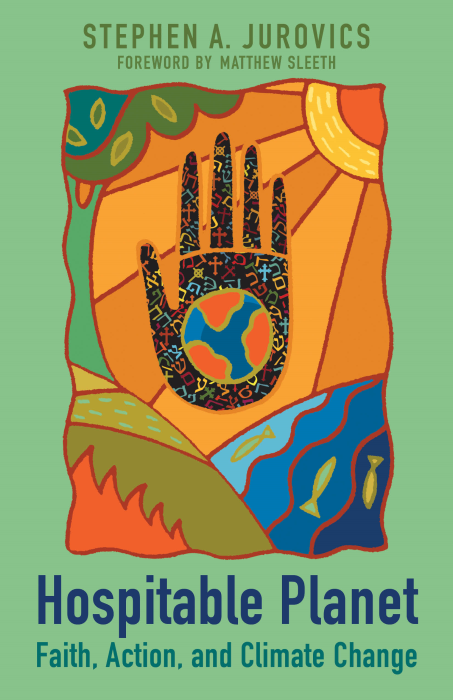 Hospitable Planet: Faith, Action, and Climate Change Stephen A. Jurovics (Morehouse Publishing) $18.00 This author is remarkably skilled at thinking about both big picture stuff about climate change and how energy use can be refined and reformed, both institutionally, in our church buildings and in our own personal lives. With a PhD in Engineering, mitigating climate change as been the focus of his engineering work for two decades. (He has nearly 20 technical, scholarly papers published and he has presented at many professional conferences.) So he knows what has to happen about the sorts of structural changes we need to make. As a person of faith, Jurovics realizes that the Scriptural teachings of the Older Testament law and prophets “contained instructions relevant to contemporary issues such as greenhouse gas emissions, preserving biological diversity, treatment of the land and sustainability.”
Hospitable Planet: Faith, Action, and Climate Change Stephen A. Jurovics (Morehouse Publishing) $18.00 This author is remarkably skilled at thinking about both big picture stuff about climate change and how energy use can be refined and reformed, both institutionally, in our church buildings and in our own personal lives. With a PhD in Engineering, mitigating climate change as been the focus of his engineering work for two decades. (He has nearly 20 technical, scholarly papers published and he has presented at many professional conferences.) So he knows what has to happen about the sorts of structural changes we need to make. As a person of faith, Jurovics realizes that the Scriptural teachings of the Older Testament law and prophets “contained instructions relevant to contemporary issues such as greenhouse gas emissions, preserving biological diversity, treatment of the land and sustainability.”
The forward to this was written by the passionate MD turned evangelical earth-care leader, Matthew Sleeth. Blurbs on the back are from mainline denominational leaders such as Katharine Jefferts Schori, the Presiding Bishop of the Episcopal church, Fletcher Harper, the Executive Director of GreenFaith, and The Revered Gerald Durly, the beloved Pastor Emeritus of the storied Providence Missionary Baptist Church in Atlanta. Some will surely appreciate the interfaith tone of some of this one. For instance, Rabbi Irving (Yitz) Greenberg raves about Hospitable Planet.
Rabbi Greenberg says:
Based primarily on the Five Books of Moses, sacred to both Christians and Jews, this book is written with passion, wisdom, and intelligent. The author’s sensitivity enables him to speaking movingly to people of faith, offering a handbook on the Bible’s greatest mandate for mortal existence – to choose life for the earth (which is the Lord’s) and all its inhabitants.
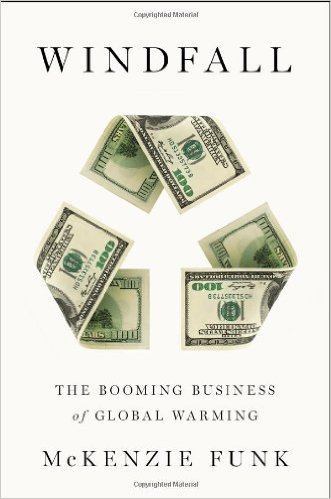 Windfall: The Blooming Business of Global Warming McKenzie Funk (Penguin) $18.00 I named this as one of our favorite books of 2015 and re-announced it when it came out in paperback. I was struck by the curious range of rave reviews it got – including Wired and The Wall Street Journal and Mother Jones. It is thoroughly enjoyable (“as entertaining as it is disturbing” The New Yorker said.) The environmental/literary journal Orion awarded it one of their books of the year, which is impressive. I just have to announce it here, again.
Windfall: The Blooming Business of Global Warming McKenzie Funk (Penguin) $18.00 I named this as one of our favorite books of 2015 and re-announced it when it came out in paperback. I was struck by the curious range of rave reviews it got – including Wired and The Wall Street Journal and Mother Jones. It is thoroughly enjoyable (“as entertaining as it is disturbing” The New Yorker said.) The environmental/literary journal Orion awarded it one of their books of the year, which is impressive. I just have to announce it here, again.
The reporting in this book is essential reading for anyone who wants to know about what big business is doing to cash in on climate change – mining in what used to be ice lands, profiteering around wild fire dangers, making water out of melting Swiss icecaps to fight African drought. I’m telling you, you haven’t read anything like this and at times it made me glad for such human ingenuity. What fascinating stuff… who knew? There are some colorful characters and extraordinary entrepreneurs who show up. Other times it seemed nearly grotesque – what the oil companies know and believe based on internal documents – and an indication of a massive crisis, with victims already. Windfall was called “darkly humorous and brilliantly researched.” The WSJ said it “brings a dizzyingly abstruse phenomenon down to a more human scale.” I very, very highly recommend it.
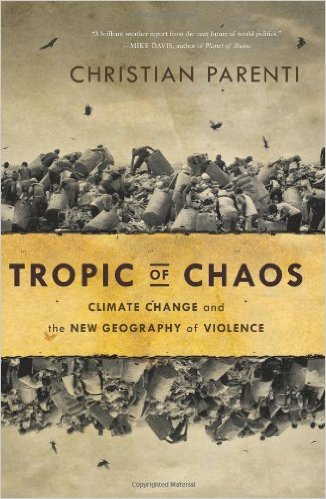 Tropic of Chaos: Climate Change and the New Geography of Violence Christian Parenti (Nation Books) $16.99 Now out in paperback, this book was awarded “Book of the Year” status from numerous nonfiction reviewers; Bookforum says “if you read one book on climate change this year… Tropic of Chaos should be it. The way you understand the changing climate and the resulting conflicts that serrate our world will be transformed.” This is a book of science, yes, but also of political affairs, perhaps even of geography. It is a study of violence through the lens of the environment. As such, I think it seems extraordinarily important and we’re glad to have it in paperback.
Tropic of Chaos: Climate Change and the New Geography of Violence Christian Parenti (Nation Books) $16.99 Now out in paperback, this book was awarded “Book of the Year” status from numerous nonfiction reviewers; Bookforum says “if you read one book on climate change this year… Tropic of Chaos should be it. The way you understand the changing climate and the resulting conflicts that serrate our world will be transformed.” This is a book of science, yes, but also of political affairs, perhaps even of geography. It is a study of violence through the lens of the environment. As such, I think it seems extraordinarily important and we’re glad to have it in paperback.
Mr. Parenti is an esteemed writer with a PhD from the London School of Economics. As an intrepid reports he takes us from the drought stricken savannas of Northwest Kenya to Afghanistan, India, and Pakistan, from the slums of Brazil to the increasingly militarized US border. “Climate-driven rural crises in the South are pushing people into the furnace of the urban drug wars…” What a book.
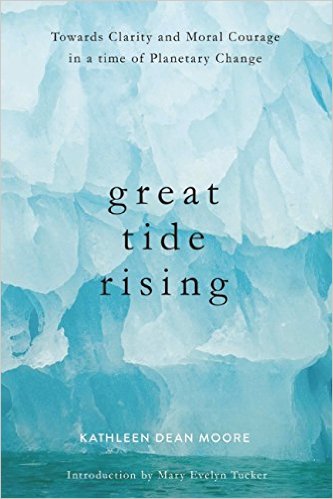 Great Tide Rising: Towards Clarity and Moral Courage in a Time of Planetary Change Kathleen Dean Moore (introduction by Sister Mary Evelyn Tucker) $26.00 I have said often that some of Moore’s early writings are among my all time favorite books. I adored Riverwalking and Holdfast: At Home in the Natural World and commend her eloquent, insightful prose for those who read Terry Tempest Williams or Annie Dillard, even. To call her writing lyrical was obvious and I longed for better ways to invite people to read her glorious essays. Wild Comfort is about “the solace of nature” and, as one reviewer wrote, her “descriptions are powerfully visceral. Readers will find that the world seems larger, wilder, and yet safer than they had thought – more beautiful and more like home.” I think I have read all of her books, and have been deeply moved by them, even though I do none of the outdoorsy exploring she and her family do. Whew!
Great Tide Rising: Towards Clarity and Moral Courage in a Time of Planetary Change Kathleen Dean Moore (introduction by Sister Mary Evelyn Tucker) $26.00 I have said often that some of Moore’s early writings are among my all time favorite books. I adored Riverwalking and Holdfast: At Home in the Natural World and commend her eloquent, insightful prose for those who read Terry Tempest Williams or Annie Dillard, even. To call her writing lyrical was obvious and I longed for better ways to invite people to read her glorious essays. Wild Comfort is about “the solace of nature” and, as one reviewer wrote, her “descriptions are powerfully visceral. Readers will find that the world seems larger, wilder, and yet safer than they had thought – more beautiful and more like home.” I think I have read all of her books, and have been deeply moved by them, even though I do none of the outdoorsy exploring she and her family do. Whew!
Moore has grown increasingly agitated by the crisis of climate change which, as a naturalist she observes plainly. As a philosopher professor she struggled to affirm a moral worldview; a few years ago she helped edit the big, demanding reader Moral Ground: Ethical Action for a Planet in Peril
asking what we are obliged to do, seeing what we see, knowing now what we know. In her own latest, the glorious Great Tide Rising, she offers her most urgent book yet, a “clarion call to summon the moral courage to ‘rage against the dying’ of the Earth.” There is beautiful nature writing here, there is stuff about her adventures and observations, but also about resilience and courage and loss and hope. From “the art of watching” explored in the chapter “On Joyous Attention” to her “Every Parent’s Prayer” and “Because the World is Wonderful” it becomes clear that Moore is a likable, caring, even ordinary sort of mom, neighbor, friend. Yet she compellingly and seriously offers “a call to witness” and “a call to action.” This offers stories about her love of water, the tides, the natural history of her place, but it moves to environmental passions with huge political implications. I have not finished this as I am reading slowly, wanting to honor the books weight and beauty by treating it well and attending to it. I invite you to it, too.
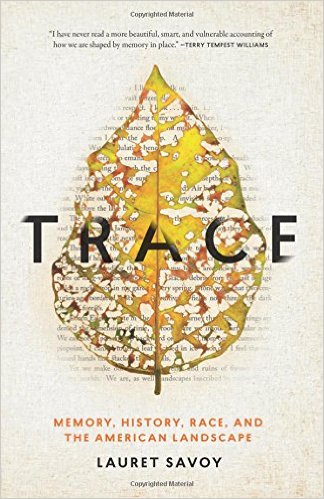 Trace: Memory, History, Race, and The American Landscape Lauret Savoy (Counterpoint) $25.00 I list this for a few reasons but I do believe that many of us will become more aware of our need to grapple with the questions of environmental stewardship not just because we come to realize the Bible tells us so or because we realize the crisis is imminent but because (think of Jamie Smith’s books) we love well. That is, we love the world the way God does. So, nature writing and books which maturely ponder a sense of place and that help us see and stand in awe of God’s good creation are bound to be helpful. (Also, some of this genre offers some of the finest writing by some of our most artful essayist and memoirists working today — for instance, certainly one of the most widely and universally acclaimed books in the last few years was the luminous, gripping bestseller H Is for Hawk by Helen Macdonald.) Hence, even for those who are not outdoorsy or wilderness types, reading well about the great outdoors is a good practice.
Trace: Memory, History, Race, and The American Landscape Lauret Savoy (Counterpoint) $25.00 I list this for a few reasons but I do believe that many of us will become more aware of our need to grapple with the questions of environmental stewardship not just because we come to realize the Bible tells us so or because we realize the crisis is imminent but because (think of Jamie Smith’s books) we love well. That is, we love the world the way God does. So, nature writing and books which maturely ponder a sense of place and that help us see and stand in awe of God’s good creation are bound to be helpful. (Also, some of this genre offers some of the finest writing by some of our most artful essayist and memoirists working today — for instance, certainly one of the most widely and universally acclaimed books in the last few years was the luminous, gripping bestseller H Is for Hawk by Helen Macdonald.) Hence, even for those who are not outdoorsy or wilderness types, reading well about the great outdoors is a good practice.
We carry a lot of these sorts of books (see here for a pretty amazing list) although I have in the past noticed that much of this sort of good literature is written by white folks. (We just got into the store what looks to be a tremendously fun, historical study called Under the Stars: How American Fell in Love with Camping by Dan White which, no doubt, comments on this matter. At least I hope…)
I have commended the serious (and fascinating) book by a woman of color named Lauret Savoy called The Colors of Nature: Culture, Identity and the Natural World that was the only book I knew that explored these things directly. Are there readers and leaders out there who care about racial justice and multi-ethnic ministry who also are engaged in experiential education in the woods or rivers? People who read Belden Lane’s Backpacking with the Saints and Gerald May’s The Wisdom of Wilderness but who also are interested in human culture and the quandaries of race relations? Well, just such a friend recently asked me if I heard of Savoy’s new one, Trace. I had not but we promptly ordered it in and realized it is considered quite an important work, a more personal story as a follow up to her work in The Colors of Nature.
Terry Tempest Williams (who has a new book out on the national parks, by the way) says :
We have waited a very long time for Trace by Lauret Savoy. Too long. Her words are a stunning excavation and revelation of race, identity, and the American landscape. I have never read a more beautiful, smart, and vulnerable accounting of how we are shaped by memory in place… I stand in awe of Savoy’s wisdom and compassionate intelligence. Trace is a crucial book for our time, a bound sanity, not a forgiveness but a reckoning.
I realize this book is not the same sort of book as Hescox and Williams, not by a long shot. But it follows — our love for place, our stewardship of creation, our sense of who we are and why we are here. Ms Savoy is a serious literary essayist, a woman of color reflecting on this huge, huge but deeply personal story. Perhaps immersing ourselves in this sort of literature will help us all rediscover our place, find our voice. And pick up the task at hand as revealed in Caring for Creation. Let us pray it is so.
Caring for Creation now at our sale price 10% off.
We will have it the last week of September and can ship it promptly.
Let us know if you want it autographed*
*let us know before September 29th.

BookNotes
DISCOUNT
ANY ITEM MENTIONED
10% off
order here
takes you to the secure Hearts & Minds order form page
just tell us what you want
inquire here
if you have questions or need more information
just ask us what you want to know
&n
bsp; Hearts & Minds 234 East Main Street Dallastown, PA 17313 717-246-3333

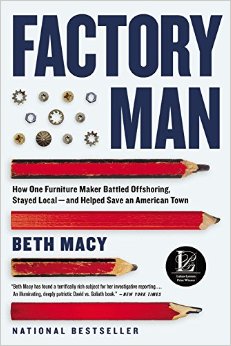

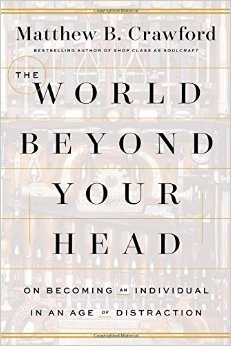
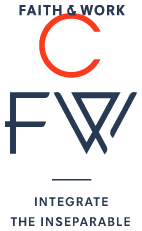
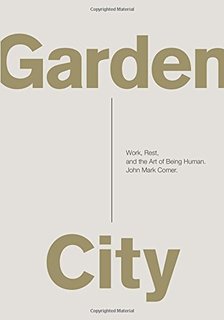 Garden City: Work, Rest, and the Art of Being Human John Mark Comer (Zondervan) $19.99 I raved about this previously, holding up its solid vision, its chatty, easily understood vision, its young-adult-friendly design and cool style. Love it. And, happily, many others do, too. This may be the best new contribution to this topic in ages — fun, clever, and, I think, truly insightful.
Garden City: Work, Rest, and the Art of Being Human John Mark Comer (Zondervan) $19.99 I raved about this previously, holding up its solid vision, its chatty, easily understood vision, its young-adult-friendly design and cool style. Love it. And, happily, many others do, too. This may be the best new contribution to this topic in ages — fun, clever, and, I think, truly insightful. 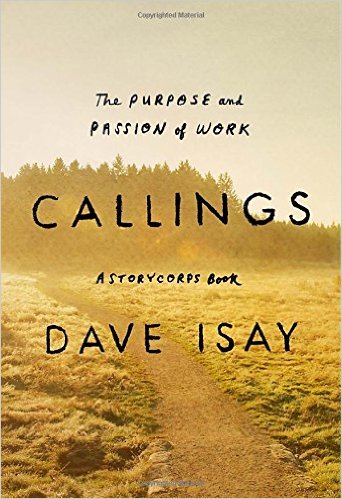 Callings: The Purpose and Passion of Work: A Storycorps Book Dave Isay (Penguin Press) $26.00 I suppose you’ve heard StoryCorp on NPR, those great little story-telling audio features. This brilliant book is the best survey of our attitudes about and stories of work since the classic Working by Studs Terkel. These short chapters are grouped under the categories of Dreamers, Generations, Healers, Philosophers, Groundbreakers. You might be surprised to see which jobs are described in which categories — Groundbreakers include a video game inventor, a county clerk, a pastor, a chef and restaurateur, a NASCAR driver, and a building contractor. Philosophers include a beer vendor and beekeeper and science teacher. (Not to mention a “salmon slicer.”) Healers might seem more predictable — lovely stories from an oncology nurse, a hospice chaplain, a 9/11 first responder, an Ob-gyn doc and an ICU nurse, but also iron workers, a grocer, and an English teacher. I loved the pieces by those who are doing what their forefathers or mothers did (farmer, actor, firefighter, a tool and die maker, an engineer, an oil rig driller, and more.) The book opens with those called Dreamers and it could include many of the workers who tell their stories, but these are especially powerful — an NBA referee, a library assistant, a dentist, a forensic artists, a street corner astronomer..
Callings: The Purpose and Passion of Work: A Storycorps Book Dave Isay (Penguin Press) $26.00 I suppose you’ve heard StoryCorp on NPR, those great little story-telling audio features. This brilliant book is the best survey of our attitudes about and stories of work since the classic Working by Studs Terkel. These short chapters are grouped under the categories of Dreamers, Generations, Healers, Philosophers, Groundbreakers. You might be surprised to see which jobs are described in which categories — Groundbreakers include a video game inventor, a county clerk, a pastor, a chef and restaurateur, a NASCAR driver, and a building contractor. Philosophers include a beer vendor and beekeeper and science teacher. (Not to mention a “salmon slicer.”) Healers might seem more predictable — lovely stories from an oncology nurse, a hospice chaplain, a 9/11 first responder, an Ob-gyn doc and an ICU nurse, but also iron workers, a grocer, and an English teacher. I loved the pieces by those who are doing what their forefathers or mothers did (farmer, actor, firefighter, a tool and die maker, an engineer, an oil rig driller, and more.) The book opens with those called Dreamers and it could include many of the workers who tell their stories, but these are especially powerful — an NBA referee, a library assistant, a dentist, a forensic artists, a street corner astronomer..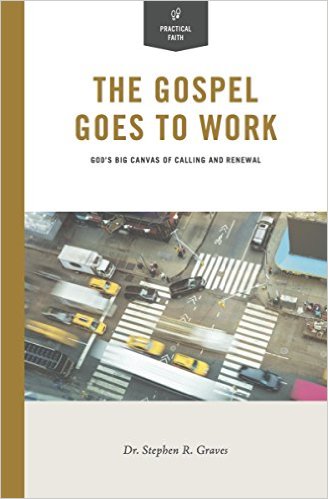 The Gospel Goes to Work: God’s Big Canvas of Calling and Renewal Dr. Stephen Graves (KJK Inc. Publishing) $10.00 For the price, this small paperback is one of the best bargains around. This book is mature, thoughtful, helpful, innovative, and uses a handsome two color ink design with very nice graphics giving it a contemporary, classy feel. Graves has been at this for decades and this is a very fine update to the state of the art of this conversation about Christian faith and daily work. This approach — which he calls “The Baseline and the Blue Sky” — offers practical pointers for whole-life discipleship framed by God’s big picture work. This is excellent.
The Gospel Goes to Work: God’s Big Canvas of Calling and Renewal Dr. Stephen Graves (KJK Inc. Publishing) $10.00 For the price, this small paperback is one of the best bargains around. This book is mature, thoughtful, helpful, innovative, and uses a handsome two color ink design with very nice graphics giving it a contemporary, classy feel. Graves has been at this for decades and this is a very fine update to the state of the art of this conversation about Christian faith and daily work. This approach — which he calls “The Baseline and the Blue Sky” — offers practical pointers for whole-life discipleship framed by God’s big picture work. This is excellent.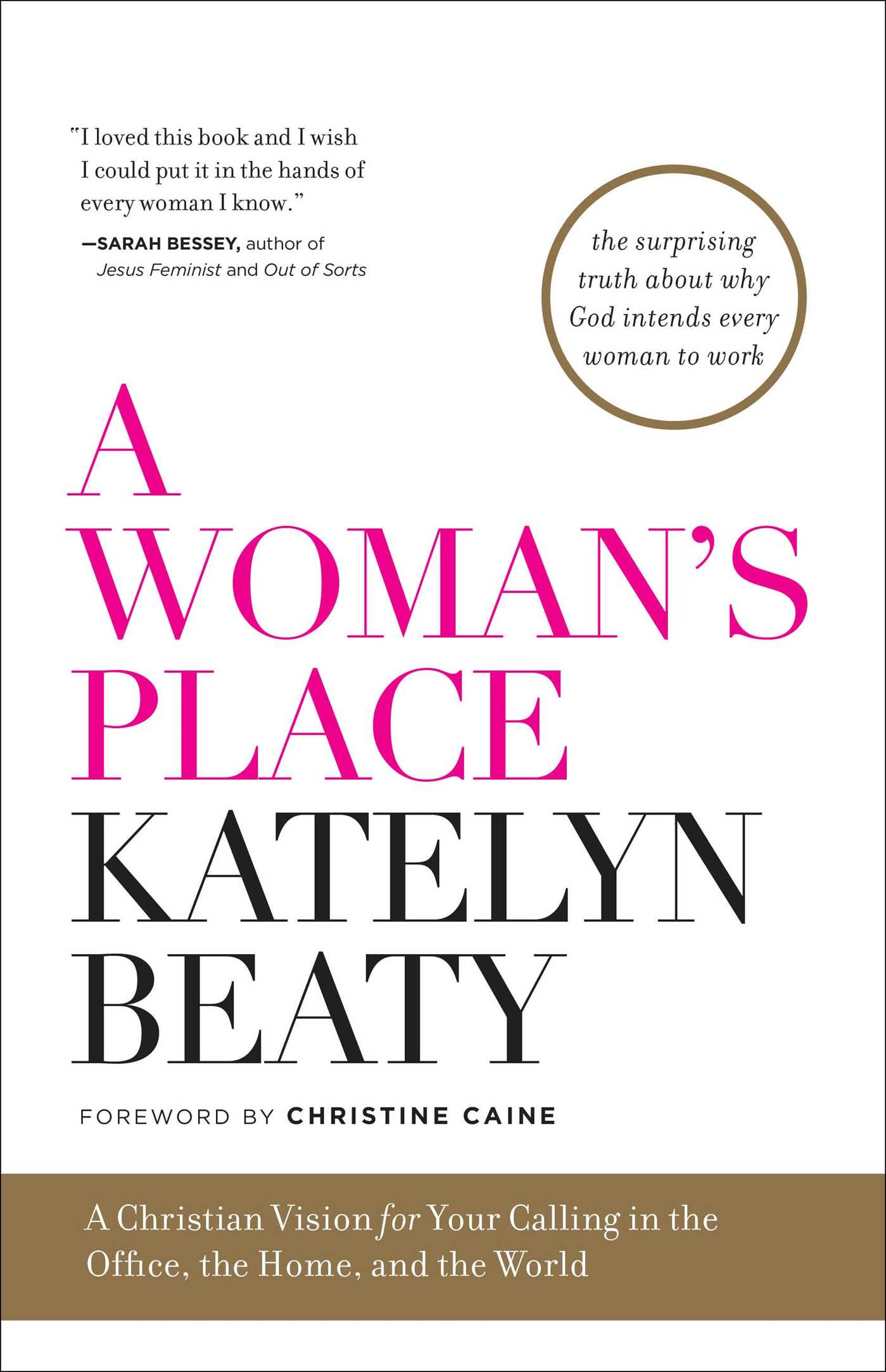 A Woman’s Place: A Christian Vision for Your Calling in the Office, the Home, and the World Katelyn Beaty (Howard Books) $22.99 This is a very nicely written book, thoughtful and at times provocative, insisting that God has created us — male and female — to reflect the image of God by working (paid or unpaid, at home or in the world) but that in our culture women have certain obstacles to overcoming in finding their own voice in the typical work-world culture. (And one of those obstacles may be unhelpful attitudes and teachings from some very prominent Christian leaders.)
A Woman’s Place: A Christian Vision for Your Calling in the Office, the Home, and the World Katelyn Beaty (Howard Books) $22.99 This is a very nicely written book, thoughtful and at times provocative, insisting that God has created us — male and female — to reflect the image of God by working (paid or unpaid, at home or in the world) but that in our culture women have certain obstacles to overcoming in finding their own voice in the typical work-world culture. (And one of those obstacles may be unhelpful attitudes and teachings from some very prominent Christian leaders.)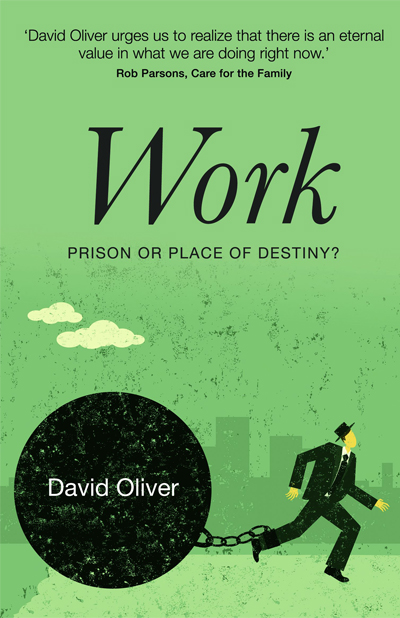 Work: Prison or Place of Destiny? David Oliver (Authentic) $14.99 This was written in 1999, published in England. I really like the sort of forward-thinking- real-world evangelicalism across the pond. This book seems a bit more practical than some more abstract ones, and yet more charismatic in tone, lively, Biblically, Spirit-lead, seeking churches that are in the front lines of God’s revival. This edition has been updated and there is an excellent afterword by Dr. Christian Overman who offers an overview of the theology of work centers and grad programs (in North America) that have sprung up in recent years. There is, by the way, also a chapter by Mark Greene of the London Institute for Contemporary Christianity. He used to work in advertising so knows well the struggles and temptations and opportunities within the so-called secular corporate world.
Work: Prison or Place of Destiny? David Oliver (Authentic) $14.99 This was written in 1999, published in England. I really like the sort of forward-thinking- real-world evangelicalism across the pond. This book seems a bit more practical than some more abstract ones, and yet more charismatic in tone, lively, Biblically, Spirit-lead, seeking churches that are in the front lines of God’s revival. This edition has been updated and there is an excellent afterword by Dr. Christian Overman who offers an overview of the theology of work centers and grad programs (in North America) that have sprung up in recent years. There is, by the way, also a chapter by Mark Greene of the London Institute for Contemporary Christianity. He used to work in advertising so knows well the struggles and temptations and opportunities within the so-called secular corporate world.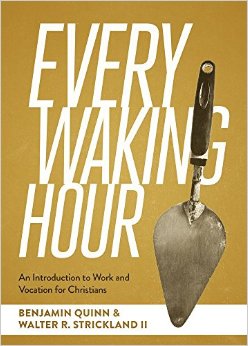 Every Waking Hour: An Introduction to Work and Vocation for Christians Benjamin T. Quinn & Walter R. Strickland (Lexham Press) $12.95 We discovered Lexham Press because they are doing the on-going project of very large, handsome, excellently translated hardback editions of Abraham Kuyper. This one — Every Waking Hour — is equally well done, but in a a compact, small hardback; it is part of a trio of companion volumes, Every Square Inch: An Introduction to Cultural Engagement for Christians by Bruce Riley Ashford and Every Good Thing: An Introduction to the Material World and the Common Good for Christians by David Jones. All three of these are handsome, clear, Biblical, a bit conservative in orientation. They are created in cooperation with Southeastern Baptist Theological Seminary. I’m very glad to see seminaries working on this stuff. Every Waking Hour is a very fine, no-nonsense introduction to this topic.
Every Waking Hour: An Introduction to Work and Vocation for Christians Benjamin T. Quinn & Walter R. Strickland (Lexham Press) $12.95 We discovered Lexham Press because they are doing the on-going project of very large, handsome, excellently translated hardback editions of Abraham Kuyper. This one — Every Waking Hour — is equally well done, but in a a compact, small hardback; it is part of a trio of companion volumes, Every Square Inch: An Introduction to Cultural Engagement for Christians by Bruce Riley Ashford and Every Good Thing: An Introduction to the Material World and the Common Good for Christians by David Jones. All three of these are handsome, clear, Biblical, a bit conservative in orientation. They are created in cooperation with Southeastern Baptist Theological Seminary. I’m very glad to see seminaries working on this stuff. Every Waking Hour is a very fine, no-nonsense introduction to this topic.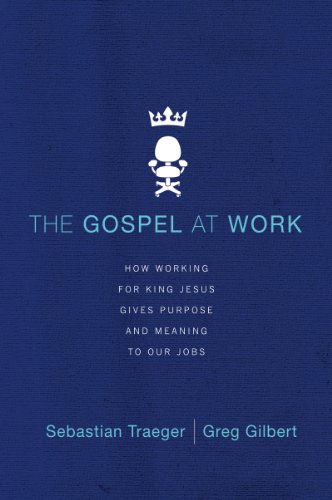 The Gospel at Work: How Working for King Jesus Gives Purpose and Meaning to Our Jobs Sebastian Traeger & Greg Gilbert (Zondervan) $16.99 I think this is a fabulous contribution to this topic…. again, it covers standard stuff, affirms the priesthood of all believers, invites us to reject a churchy sort of view that places ordinary work-world Christians as some kind of second class believer. Okay — clear enough, good enough. What this one brings to the conversation, though, is a robust and deep reliance on the gospel itself, the transforming power of Christ’s cross, the way we must put Christ first in all things, and understand the way grace transforms everything. It is like any number of books in its call to relate Sunday and Monday, to think Christianly about work. But fewer books invite us to a serious self-assessment about whether we have made our work an idol. Can trusting God alone and the goodness of God’s grace free us from the cultural pressures of either working too much, or maybe not enough? These good authors help us see how the gospel can free us from “both an all consuming devotion and a punch-in, punch-out mentality — in order to find the freedom of a work ethic rooted in serving Christ.” When this book says it will help us “find God’s vision for your job” it isn’t kidding. It’s solid, mature, transformational stuff, rooted in a gospel-centered approach. Good discussion questions, too.
The Gospel at Work: How Working for King Jesus Gives Purpose and Meaning to Our Jobs Sebastian Traeger & Greg Gilbert (Zondervan) $16.99 I think this is a fabulous contribution to this topic…. again, it covers standard stuff, affirms the priesthood of all believers, invites us to reject a churchy sort of view that places ordinary work-world Christians as some kind of second class believer. Okay — clear enough, good enough. What this one brings to the conversation, though, is a robust and deep reliance on the gospel itself, the transforming power of Christ’s cross, the way we must put Christ first in all things, and understand the way grace transforms everything. It is like any number of books in its call to relate Sunday and Monday, to think Christianly about work. But fewer books invite us to a serious self-assessment about whether we have made our work an idol. Can trusting God alone and the goodness of God’s grace free us from the cultural pressures of either working too much, or maybe not enough? These good authors help us see how the gospel can free us from “both an all consuming devotion and a punch-in, punch-out mentality — in order to find the freedom of a work ethic rooted in serving Christ.” When this book says it will help us “find God’s vision for your job” it isn’t kidding. It’s solid, mature, transformational stuff, rooted in a gospel-centered approach. Good discussion questions, too.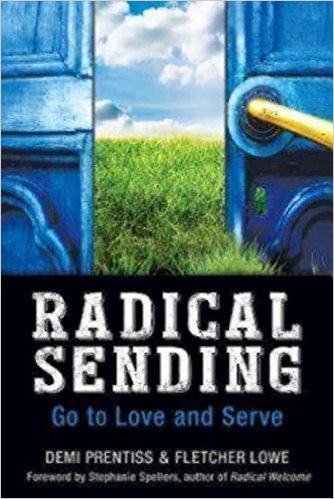 Radical Sending: Go to Love and Serve Demi Prentiss & Fletcher Lowe (Morehouse Publishing) $18.00 I find it interesting that some of the finest books in the 70s on this topic — the few that existed — came out of mainline denominational churches. (I think of the Lutheran Bethlehem Steel executive William Diehl who wrote Thank God Its Monday.) Dutch Calvinists at the alternative labor union in Canada were writing as were Mennonites and Catholics, but not too many evangelicals. Now, the faith/work conversation and the centers to study this are led by thoughtful evangelicals and conservative Protestants, it seems. This, though, comes from the mainline Episcopalian church and documents great examples of mainline, often liturgical parishes, that are equipping congregants to see their work as a mission field and that their work matters to God. Dorothy Sayers (who wrote the seminal “Why Work” essay) was Anglican, of course, so it is fitting to see Episcopalians taking up this tradition, rooted well in their own Book of Common Prayer and its call to the missio dei.
Radical Sending: Go to Love and Serve Demi Prentiss & Fletcher Lowe (Morehouse Publishing) $18.00 I find it interesting that some of the finest books in the 70s on this topic — the few that existed — came out of mainline denominational churches. (I think of the Lutheran Bethlehem Steel executive William Diehl who wrote Thank God Its Monday.) Dutch Calvinists at the alternative labor union in Canada were writing as were Mennonites and Catholics, but not too many evangelicals. Now, the faith/work conversation and the centers to study this are led by thoughtful evangelicals and conservative Protestants, it seems. This, though, comes from the mainline Episcopalian church and documents great examples of mainline, often liturgical parishes, that are equipping congregants to see their work as a mission field and that their work matters to God. Dorothy Sayers (who wrote the seminal “Why Work” essay) was Anglican, of course, so it is fitting to see Episcopalians taking up this tradition, rooted well in their own Book of Common Prayer and its call to the missio dei.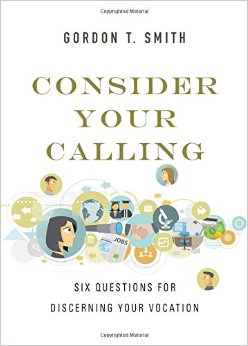 Consider Your Calling: Six Questions for Discerning Your Vocation Gordon T. Smith (IVP) $16.00 I have long appreciated Smith’s clear, intense writing about spirituality. He’s in the league with Richard Foster and the late Dallas Willard — and his recent work has insisted we need a more deeply rooted, spiritually-mature, Christianly-shaped sort of character (see Called to Be Saints!) One of his books which we listed on previous BookNotes bibliographies about calling and vocation is Courage and Calling; it is substantial and thoughtful. I have sometimes even called that one “Richard Foster meets Os Guinness” in that it has a robust view of calling but has a bit of a contemplative tone. In this newer, compact little book he gives us six questions to ask in reflecting upon one’s calling, a thoughtful guide to doing some inner work in considering one’s vocation. We reviewed it previously but it deserves to be on this list as it is so very useful and wise. Highly recommended.
Consider Your Calling: Six Questions for Discerning Your Vocation Gordon T. Smith (IVP) $16.00 I have long appreciated Smith’s clear, intense writing about spirituality. He’s in the league with Richard Foster and the late Dallas Willard — and his recent work has insisted we need a more deeply rooted, spiritually-mature, Christianly-shaped sort of character (see Called to Be Saints!) One of his books which we listed on previous BookNotes bibliographies about calling and vocation is Courage and Calling; it is substantial and thoughtful. I have sometimes even called that one “Richard Foster meets Os Guinness” in that it has a robust view of calling but has a bit of a contemplative tone. In this newer, compact little book he gives us six questions to ask in reflecting upon one’s calling, a thoughtful guide to doing some inner work in considering one’s vocation. We reviewed it previously but it deserves to be on this list as it is so very useful and wise. Highly recommended.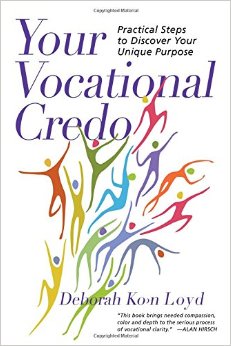 Your Vocational Credo: Practical Steps to Discover Your Unique Purpose Deborah Koehn Loyd (IVP) $16.00 I have to sometimes whittle it all down to one book — at the Jubilee conference each February, say, when students who want a practical, visionary, but useful book on discerning their own sense of call. So many young adults are still unclear about choosing a major, a field of study, a future career. And, I have to say, at least at this past year at Jubilee 2016. this was the one that most resonated with college age students. it is fun, upbeat, energetic, has lots of stories, a missional zeal, even. And it seems practical, even it is full of wonder and mystery and daring. If the smaller more sober one by Gordon Smith (Consider Your Calling, see above) appealed to those who wanted just those six questions, or a slightly more prayerful tone, this one seemed happily to meet the needs of many. Written by a wise young woman who promises to “w
Your Vocational Credo: Practical Steps to Discover Your Unique Purpose Deborah Koehn Loyd (IVP) $16.00 I have to sometimes whittle it all down to one book — at the Jubilee conference each February, say, when students who want a practical, visionary, but useful book on discerning their own sense of call. So many young adults are still unclear about choosing a major, a field of study, a future career. And, I have to say, at least at this past year at Jubilee 2016. this was the one that most resonated with college age students. it is fun, upbeat, energetic, has lots of stories, a missional zeal, even. And it seems practical, even it is full of wonder and mystery and daring. If the smaller more sober one by Gordon Smith (Consider Your Calling, see above) appealed to those who wanted just those six questions, or a slightly more prayerful tone, this one seemed happily to meet the needs of many. Written by a wise young woman who promises to “w More: Finding Your Personal Calling and Live Life to the Fullest Measure Todd Wilson (Zondervan) $15.99 I tend to like books that are well-written, a bit on the abstract side, nothing too formulaic or workbooky or simplistic. That’s me. But every now and then a book comes along that is very nicely written, is rooted in broad, good thinking, and yet offers a framework from which to obtain really practical guidance. This is one of those rare ones, informed by the likes of Os Guinness’s brilliant The Call and yet full of self-assessment questions and vocational guidance and down to Earth ideas of making decisions. Here is what the promo copy says about it:
More: Finding Your Personal Calling and Live Life to the Fullest Measure Todd Wilson (Zondervan) $15.99 I tend to like books that are well-written, a bit on the abstract side, nothing too formulaic or workbooky or simplistic. That’s me. But every now and then a book comes along that is very nicely written, is rooted in broad, good thinking, and yet offers a framework from which to obtain really practical guidance. This is one of those rare ones, informed by the likes of Os Guinness’s brilliant The Call and yet full of self-assessment questions and vocational guidance and down to Earth ideas of making decisions. Here is what the promo copy says about it: 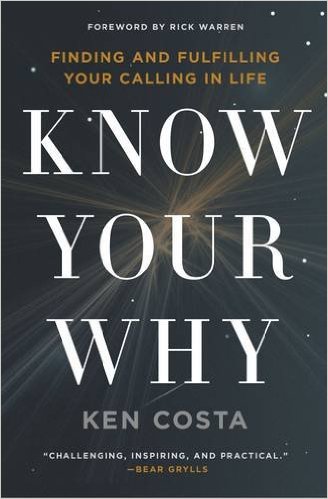 Know Your Why: Finding and Fulfilling Your Calling in Life Ken Costa (Nelson) $16.99 I was thrilled to see this new book being released — we have been glad to list and tell about his earlier book called God at Work and it was nice to know he had another one coming. Costa is an internationally renowned banker, having worked as chairman of UBS Investment Bank (and other financial marketing organizations in London.) Not every book — hardly any books, in fact — carry endorsements from Louie Giglio (of the Passion Conference) and the Archbishop of Canterbury (who says “This book has all of Ken at his best…Written from his own experience, it speaks to the concerns of young professionals everywhere.”) Brian Houston says “There are few people on the planet whom I find more fascinating than Ken Costa…” Inspiring, for sure! I trust it to speak about vocation and the call into the work world because I know the author’s other book and his remarkable experience within the financial institutions of the global economy.
Know Your Why: Finding and Fulfilling Your Calling in Life Ken Costa (Nelson) $16.99 I was thrilled to see this new book being released — we have been glad to list and tell about his earlier book called God at Work and it was nice to know he had another one coming. Costa is an internationally renowned banker, having worked as chairman of UBS Investment Bank (and other financial marketing organizations in London.) Not every book — hardly any books, in fact — carry endorsements from Louie Giglio (of the Passion Conference) and the Archbishop of Canterbury (who says “This book has all of Ken at his best…Written from his own experience, it speaks to the concerns of young professionals everywhere.”) Brian Houston says “There are few people on the planet whom I find more fascinating than Ken Costa…” Inspiring, for sure! I trust it to speak about vocation and the call into the work world because I know the author’s other book and his remarkable experience within the financial institutions of the global economy. 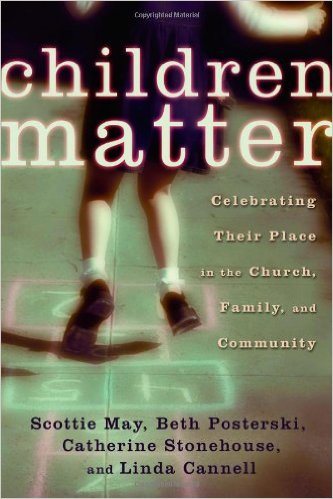 Children Matter: Celebrating Their Place in the Church, Family, and Community Scotty May, Beth Posterski, Catherine Stonehouse, and Linda Cannell (Eerdmans) $28.00 Wow, this is a mature and thoughtful collection of about 15 chapters, around themes of a theology of children, the context and content of children’s ministry, and the practices and “how we do it” stuff. The authors are thoughtful evangelicals, mostly, good scholars, offering important wisdom. Remarkable for a solid foundation.
Children Matter: Celebrating Their Place in the Church, Family, and Community Scotty May, Beth Posterski, Catherine Stonehouse, and Linda Cannell (Eerdmans) $28.00 Wow, this is a mature and thoughtful collection of about 15 chapters, around themes of a theology of children, the context and content of children’s ministry, and the practices and “how we do it” stuff. The authors are thoughtful evangelicals, mostly, good scholars, offering important wisdom. Remarkable for a solid foundation.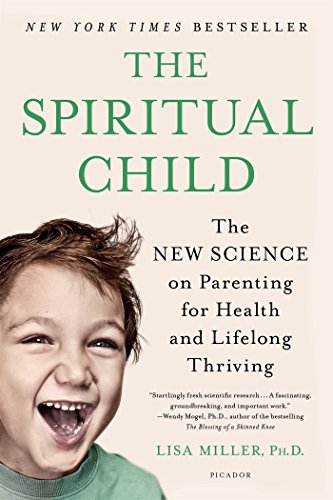 The Spiritual Child: The New Science on Parenting for Health and Lifelong Thriving Lisa Miller (Picador) $16.00 This was a New York Times bestseller, a very thoughtful book merging neuroscience and parenting and grit to help ordinary parents realize that spirituality nourishes our children’s well being. As one reviewer noted, it is, “perceptive, thought-provoking, and heavily researched, this is a valuable book for anyone interested in spiritual development in children adolescents, and families.” I have yet to read this (sorry!) but serious educators I respect have assured me it is a must read. Dr. Miller is a professor Psychology and Education and director of the Clinical Psychology Program at Teachers College, Columbia University in NY. She is the coeditor of the American Psychological Association’s journal Spirituality in Clinical Practices. Common grace for the
The Spiritual Child: The New Science on Parenting for Health and Lifelong Thriving Lisa Miller (Picador) $16.00 This was a New York Times bestseller, a very thoughtful book merging neuroscience and parenting and grit to help ordinary parents realize that spirituality nourishes our children’s well being. As one reviewer noted, it is, “perceptive, thought-provoking, and heavily researched, this is a valuable book for anyone interested in spiritual development in children adolescents, and families.” I have yet to read this (sorry!) but serious educators I respect have assured me it is a must read. Dr. Miller is a professor Psychology and Education and director of the Clinical Psychology Program at Teachers College, Columbia University in NY. She is the coeditor of the American Psychological Association’s journal Spirituality in Clinical Practices. Common grace for the 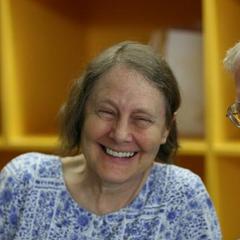 Is It a Lost Cause? Having the Heart of God for the Church’s Children Marva Dawn (Eerdmans) $18.00 I hope you’ve read some of Marva’s great books, and I think this is one of her best, not nearly known enough. Very inspiring, if a bit counter-cultural. It not only has such a high regard for children, and insists on their full role within the church, but it has a sturdy and serious ecclesiology, the church as true Christian community. I suppose you know that I’d read anything Marva Dawn writes; we are glad she wrote on this! A must-read. Yes!
Is It a Lost Cause? Having the Heart of God for the Church’s Children Marva Dawn (Eerdmans) $18.00 I hope you’ve read some of Marva’s great books, and I think this is one of her best, not nearly known enough. Very inspiring, if a bit counter-cultural. It not only has such a high regard for children, and insists on their full role within the church, but it has a sturdy and serious ecclesiology, the church as true Christian community. I suppose you know that I’d read anything Marva Dawn writes; we are glad she wrote on this! A must-read. Yes!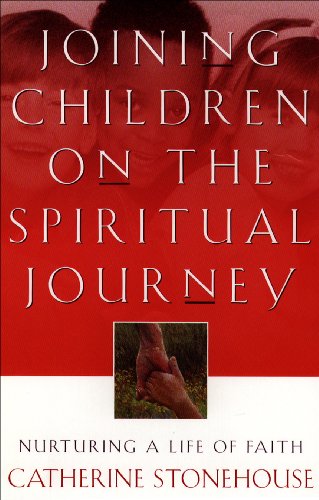
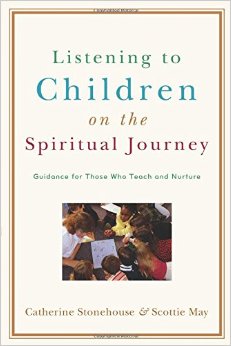 Joining Children on the Spiritual Journey: Nurturing a Life of Faith Catherine Stonehouse (Baker Academic) $24.00 I think this is really, really good, nearly a modern classic, wonderfully done. And I like her next one (co-written with Scottie May of Wheaton College), too Listening to Children on the Spiritual Journey: Guidance for Those Who Teach and Nurture (Baker Academic; $22.00) — maybe even more. Highly recommended. There’s rave reviews on the back, from the editor of Christian Education Journal, for instance, and the founder of Godly Play, Jerome Berryman. Dr. Stonehouse, by the way, teaches as Asbury Theological Seminary where she is highly respected.
Joining Children on the Spiritual Journey: Nurturing a Life of Faith Catherine Stonehouse (Baker Academic) $24.00 I think this is really, really good, nearly a modern classic, wonderfully done. And I like her next one (co-written with Scottie May of Wheaton College), too Listening to Children on the Spiritual Journey: Guidance for Those Who Teach and Nurture (Baker Academic; $22.00) — maybe even more. Highly recommended. There’s rave reviews on the back, from the editor of Christian Education Journal, for instance, and the founder of Godly Play, Jerome Berryman. Dr. Stonehouse, by the way, teaches as Asbury Theological Seminary where she is highly respected.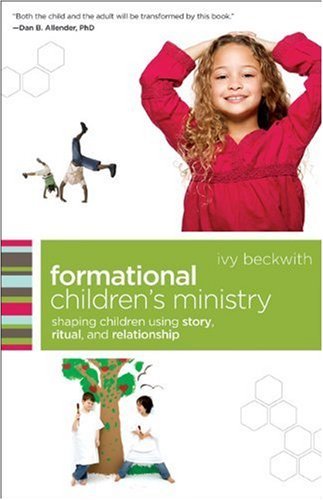 Formational Children’s Ministry: Shaping Children Using Story, Ritual, and Relationship Ivy Beckwith (Baker Books) $15.99 Oh my, oh my, I so loved this! A very strong book and truly interesting! There’s a very nice endorsement from Dan Allender, who says it is “genius” written by “an enormously gifted child educator…” Highly recommended for some new energy and new ideas!
Formational Children’s Ministry: Shaping Children Using Story, Ritual, and Relationship Ivy Beckwith (Baker Books) $15.99 Oh my, oh my, I so loved this! A very strong book and truly interesting! There’s a very nice endorsement from Dan Allender, who says it is “genius” written by “an enormously gifted child educator…” Highly recommended for some new energy and new ideas!  Children’s Ministry in the Way of Jesus David Csinos & Ivy Beckwith (IVP) $18.00 I’m very impressed by this and enjoyed it a lot. It may seem a bit radical, emergent, almost, but done by IVP so it is still orthodox and reliable for evangelical churches. The author is a good writer, and really thoughtful about so much. Highly recommended. An endorsement by Scottie May of Wheaton is quite positive, by the way. I like its language of “practice” its frame of being “on the way” and its focus on Christ-like discipleship.
Children’s Ministry in the Way of Jesus David Csinos & Ivy Beckwith (IVP) $18.00 I’m very impressed by this and enjoyed it a lot. It may seem a bit radical, emergent, almost, but done by IVP so it is still orthodox and reliable for evangelical churches. The author is a good writer, and really thoughtful about so much. Highly recommended. An endorsement by Scottie May of Wheaton is quite positive, by the way. I like its language of “practice” its frame of being “on the way” and its focus on Christ-like discipleship.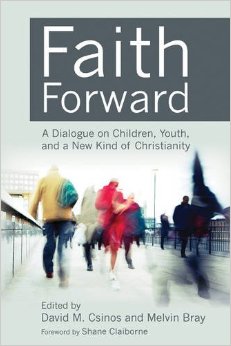
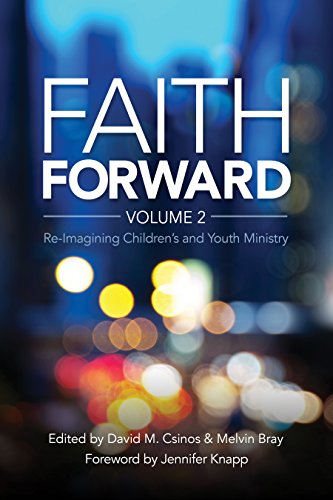 Faith Forward: A Dialogue on Children, Youth, and a New Kind of Christianity and Faith Forward Volume 2: Re-Imagining Children and Youth Ministry edited by David Csinos and Melvin Bray (Copperhouse) $19.95 Well. I’ve mentioned these before. I wish I could promote these more widely as there is nothing quite like them, even if they have some chapters that will unsettle some with their progressive and curious theological vision. They were both put together out of two lively conferences
Faith Forward: A Dialogue on Children, Youth, and a New Kind of Christianity and Faith Forward Volume 2: Re-Imagining Children and Youth Ministry edited by David Csinos and Melvin Bray (Copperhouse) $19.95 Well. I’ve mentioned these before. I wish I could promote these more widely as there is nothing quite like them, even if they have some chapters that will unsettle some with their progressive and curious theological vision. They were both put together out of two lively conferences 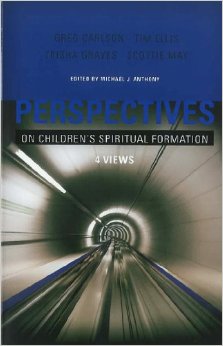 Perspectives on Children’s Spiritual Formation: 4 Views edited by Michael Anthony (B&H) $24.99 Here is how the promo material explains it: Perspectives On… “presents in counterpoint four views of children’s spiritual formation and four related methods of Christian Education. Each chapter is written by a prominent person representing his or her view. Contributors also respond to the other viewpoints. Views include the contemplative-reflective model (cultivating a quiet, worshipful spirit), instructional-analytic model (involving child evangelism and Bible memorization), pragmatic participatory model (focusing on high-energy activities, often seen in mega-churches), and the media-driven active-engagement model (using a video-based curriculum with limited teacher training).” Whew. This has a lot to make you think, a lot to ponder, maybe even causing you to re-consider assumptions and goals and strategies… Some of us just plough forward, without asking these kinds of foundational questions and assessing our models.
Perspectives on Children’s Spiritual Formation: 4 Views edited by Michael Anthony (B&H) $24.99 Here is how the promo material explains it: Perspectives On… “presents in counterpoint four views of children’s spiritual formation and four related methods of Christian Education. Each chapter is written by a prominent person representing his or her view. Contributors also respond to the other viewpoints. Views include the contemplative-reflective model (cultivating a quiet, worshipful spirit), instructional-analytic model (involving child evangelism and Bible memorization), pragmatic participatory model (focusing on high-energy activities, often seen in mega-churches), and the media-driven active-engagement model (using a video-based curriculum with limited teacher training).” Whew. This has a lot to make you think, a lot to ponder, maybe even causing you to re-consider assumptions and goals and strategies… Some of us just plough forward, without asking these kinds of foundational questions and assessing our models.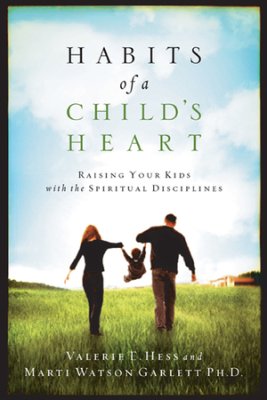 Habits of a Child’s Heart: Raising Your Kids with the Spiritual Disciplines Valerie Hess (NavPress) $14.99 I’ve mentioned this from time to time over the years and it is still one of the few good books that explore spiritual formation and practices of nurturing contemplative spirituality with kids. Can kids learn to meditation, can families engage the Scriptures together with a prayerful gentleness? Can we simplify our lives and change our priorities so new habits of service and community emerge? What a great guide to some great , good matters. This is a book for parents, but I could see educators and children’s ministry makers using it to equip parents, or using the ideas in traditional Sunday school settings.
Habits of a Child’s Heart: Raising Your Kids with the Spiritual Disciplines Valerie Hess (NavPress) $14.99 I’ve mentioned this from time to time over the years and it is still one of the few good books that explore spiritual formation and practices of nurturing contemplative spirituality with kids. Can kids learn to meditation, can families engage the Scriptures together with a prayerful gentleness? Can we simplify our lives and change our priorities so new habits of service and community emerge? What a great guide to some great , good matters. This is a book for parents, but I could see educators and children’s ministry makers using it to equip parents, or using the ideas in traditional Sunday school settings.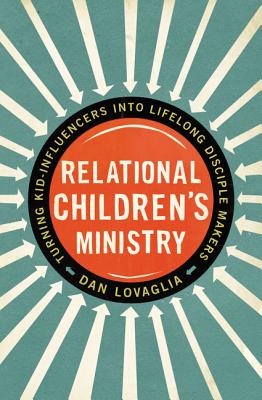 Relational Children’s Ministry: Turning Kid-Influencers into Lifelong Disciple-makers Dan Lovaglia (Zondervan) $16.99 The big question on the back of this new book is “Are you building lasting relationships or just running a program?” It shows how children’s ministry leaders can “disrupt status quo approach to discipleship with children, realigning their ministries for greater long term impact.” Looks great — inspirational and full of good ideas. It’s not to revolutionary, though (like, say, the Faith Forward ones above) as Lovaglia is a conventional evangelical leader. He is the director of new ministries and parent engagement at Awana. It looks great, not too complex, nothing to provocative, but a good read.
Relational Children’s Ministry: Turning Kid-Influencers into Lifelong Disciple-makers Dan Lovaglia (Zondervan) $16.99 The big question on the back of this new book is “Are you building lasting relationships or just running a program?” It shows how children’s ministry leaders can “disrupt status quo approach to discipleship with children, realigning their ministries for greater long term impact.” Looks great — inspirational and full of good ideas. It’s not to revolutionary, though (like, say, the Faith Forward ones above) as Lovaglia is a conventional evangelical leader. He is the director of new ministries and parent engagement at Awana. It looks great, not too complex, nothing to provocative, but a good read.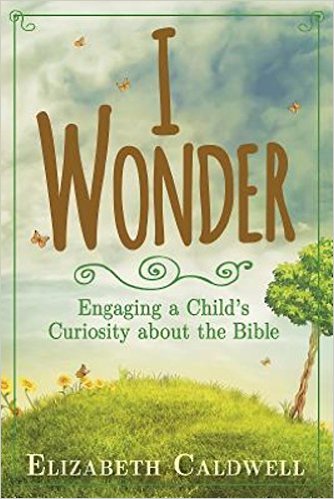 I Wonder: Engaging a Child’s Curiosity About the Bible Elizabeth Caldwell (Abingdon) $19.99 Libby Caldwell is a very well loved CE leader in many circles, including within APCE (the Association of Presbyterian Christian Educators) which is the PCUSA professional organization for CE staff and Children’s Ministry leaders. We are pretty involved with the Eastern APCE, and we heard her more than once in that setting. She’s written some helpful books for mainline Protestants, published by Pilgrim Press.
I Wonder: Engaging a Child’s Curiosity About the Bible Elizabeth Caldwell (Abingdon) $19.99 Libby Caldwell is a very well loved CE leader in many circles, including within APCE (the Association of Presbyterian Christian Educators) which is the PCUSA professional organization for CE staff and Children’s Ministry leaders. We are pretty involved with the Eastern APCE, and we heard her more than once in that setting. She’s written some helpful books for mainline Protestants, published by Pilgrim Press.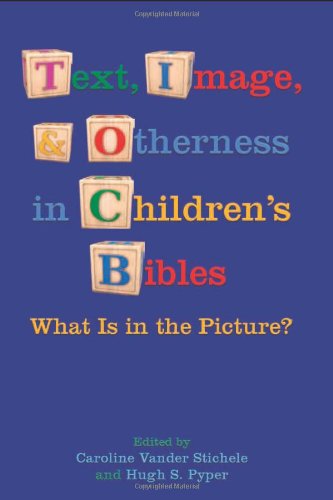
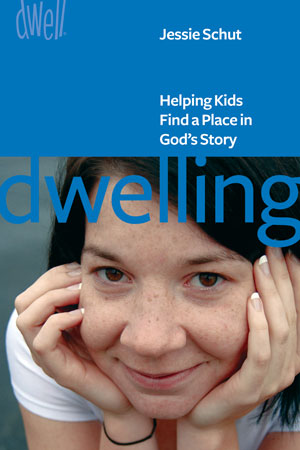 Dwelling: Helping Kids Find a Place in God’s Story Jessie Schut (Faith Alive) $5.99 I’m always fond of the stuff that comes out of the CRC, and I love this small, accessible guide to helping children see themselves as part of God’s redemptive work. If I were a Christian ed director (or children’s ministry staff person) I’d try to get this into the hands of every volunteer. Almost 45 short chapters on all manner of subjects, covering wisely all kinds of situations and topics. Nice.
Dwelling: Helping Kids Find a Place in God’s Story Jessie Schut (Faith Alive) $5.99 I’m always fond of the stuff that comes out of the CRC, and I love this small, accessible guide to helping children see themselves as part of God’s redemptive work. If I were a Christian ed director (or children’s ministry staff person) I’d try to get this into the hands of every volunteer. Almost 45 short chapters on all manner of subjects, covering wisely all kinds of situations and topics. Nice.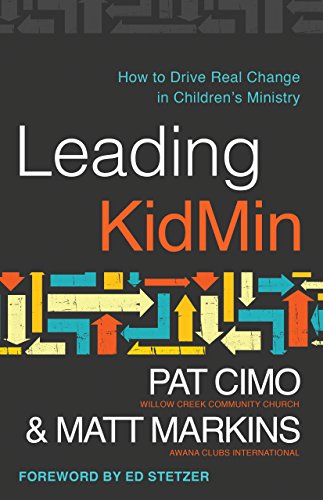 Leading KidMin: How to Drive Real Change in Children’s Ministry Pat Cimo & Matt Markins (Moody Press) $14.99 This new book looks fantastic, full of energy and passion and ideas and principles… not simplistic and not shallow. Pat Cimo has led in children’s ministry for decades and is now the director of marriage and family life at Willow Creek. Matt Markins serves on the global leadership team at Awana. Both of these are strong, well read, significantly experienced leaders. In many ways it is about transforming our approach to leadership, allowing our ministry to be transformed by what is going on within us and our own sense of identity, our own leadership voice and what we ourselves are learning.
Leading KidMin: How to Drive Real Change in Children’s Ministry Pat Cimo & Matt Markins (Moody Press) $14.99 This new book looks fantastic, full of energy and passion and ideas and principles… not simplistic and not shallow. Pat Cimo has led in children’s ministry for decades and is now the director of marriage and family life at Willow Creek. Matt Markins serves on the global leadership team at Awana. Both of these are strong, well read, significantly experienced leaders. In many ways it is about transforming our approach to leadership, allowing our ministry to be transformed by what is going on within us and our own sense of identity, our own leadership voice and what we ourselves are learning. 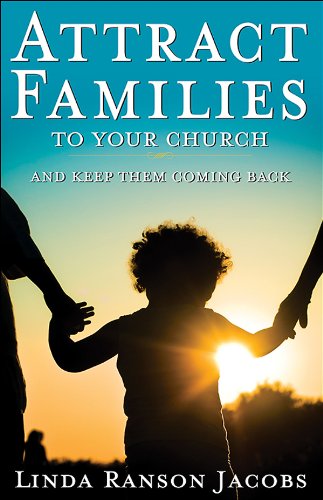 Attract Families to Your Church — And Keep Them Coming Back Linda Ranson Jacobs (Abingdon) $18.99 There are several books like this, and I think something around family ministry would be important to have. This one is insightful and practical. We think it is accessible and inspiring.
Attract Families to Your Church — And Keep Them Coming Back Linda Ranson Jacobs (Abingdon) $18.99 There are several books like this, and I think something around family ministry would be important to have. This one is insightful and practical. We think it is accessible and inspiring. 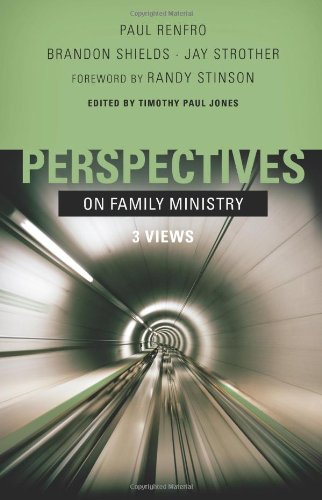 Views edited by Timothy Paul Jones (B&H; $19.99.) The three views are “Family-integrated Ministry” where the emphasis is on intergenerational discipleship and “Family-Based Ministry” which advocates for organizing programs according to ages and interests but also developing intentional activities and training events to bring families together and “Family-Equipping Ministry — maintaining age-organized ministry while reorganizing the congregation to call parents to be active partners…) I suspect most churches don’t have any strategy or model, nor have they thought about what vision is most theologically acceptable and appropriate. So, here’s to starting that conversation!
Views edited by Timothy Paul Jones (B&H; $19.99.) The three views are “Family-integrated Ministry” where the emphasis is on intergenerational discipleship and “Family-Based Ministry” which advocates for organizing programs according to ages and interests but also developing intentional activities and training events to bring families together and “Family-Equipping Ministry — maintaining age-organized ministry while reorganizing the congregation to call parents to be active partners…) I suspect most churches don’t have any strategy or model, nor have they thought about what vision is most theologically acceptable and appropriate. So, here’s to starting that conversation!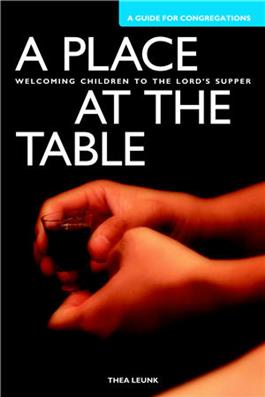 A Place at the Table: Welcoming Children to the Lord’s Supper — A Guide for Congregations DVD and Study Book Thea Nyhoff Leunk (Faith Alive) $19.99 for DVD; $7.00 for the book Although this was published by the Christian Reformed Church to help congregations learn about and embrace their 2011 denominational recommendation to open the communion table to children, it really is useful for anyone wanting to have this conversation and move in that direction. Very nicely done. I suppose many of us might first need to talk about the role of children in worship, eh? Send us an email if you want a small list on that whole topic, being inclusive of kids of all ages in conventional worship. The kids can’t receive communion if they aren’t there…
A Place at the Table: Welcoming Children to the Lord’s Supper — A Guide for Congregations DVD and Study Book Thea Nyhoff Leunk (Faith Alive) $19.99 for DVD; $7.00 for the book Although this was published by the Christian Reformed Church to help congregations learn about and embrace their 2011 denominational recommendation to open the communion table to children, it really is useful for anyone wanting to have this conversation and move in that direction. Very nicely done. I suppose many of us might first need to talk about the role of children in worship, eh? Send us an email if you want a small list on that whole topic, being inclusive of kids of all ages in conventional worship. The kids can’t receive communion if they aren’t there…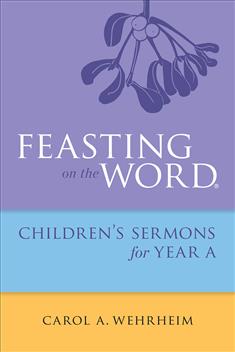 Feasting on the Word: Children’s Sermons for Year A Carol A. Wehrheim (WJK) $20.00 I suppose you know the now the very popular, almost legendarily so, Feasting on the Word preaching commentaries (and the ancillary product, the worship companions, the Advent and Lenten worship guides, the guide to doing children’s sermons, and the daily devotional.) Last year — speaking of legendary — the wonderfully wise children’s educator Carol Wehrheim did a book of children’s sermons connected to Feasting on the Word Year C. It was very, very nice. The new one for liturgical year A – starting this Advent – just arrived here at the shop. There is a short message and prayer for each Sunday of the year, and a few additional ones, for special occasions.
Feasting on the Word: Children’s Sermons for Year A Carol A. Wehrheim (WJK) $20.00 I suppose you know the now the very popular, almost legendarily so, Feasting on the Word preaching commentaries (and the ancillary product, the worship companions, the Advent and Lenten worship guides, the guide to doing children’s sermons, and the daily devotional.) Last year — speaking of legendary — the wonderfully wise children’s educator Carol Wehrheim did a book of children’s sermons connected to Feasting on the Word Year C. It was very, very nice. The new one for liturgical year A – starting this Advent – just arrived here at the shop. There is a short message and prayer for each Sunday of the year, and a few additional ones, for special occasions. 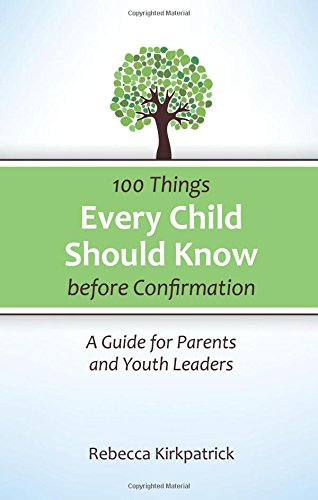 100 Things Every Child Should Know Before Confirmation: A Guide for parents and Youth Leaders Rebecca Kirkpatrick (WJK) $17.00 Again, this is a PCUSA resource, the author on staff at Bryn Mawr Presbyterian. Still, these succinct and clear summaries of different topics are very useful — maybe you could supplement or edit. This emerged from the author’s frustration of what kids did or didn’t know in their junior high years as they were going through confirmation. A good argument for serious educational work with children!
100 Things Every Child Should Know Before Confirmation: A Guide for parents and Youth Leaders Rebecca Kirkpatrick (WJK) $17.00 Again, this is a PCUSA resource, the author on staff at Bryn Mawr Presbyterian. Still, these succinct and clear summaries of different topics are very useful — maybe you could supplement or edit. This emerged from the author’s frustration of what kids did or didn’t know in their junior high years as they were going through confirmation. A good argument for serious educational work with children!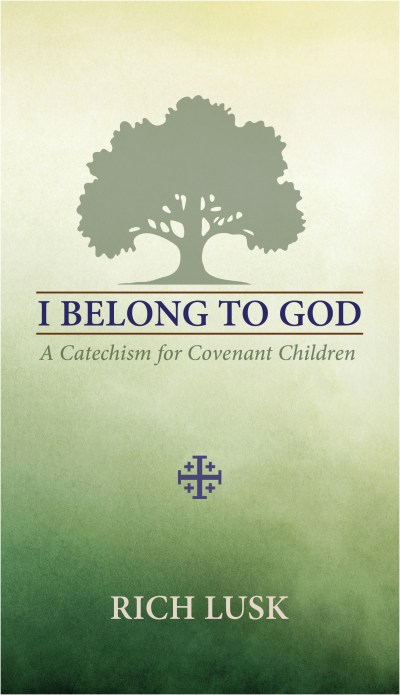 I Belong to God: A Catechism for Covenant Children Rich Lusk (Athanasius Press) $5.99 I really liked the preface to this, a heartfelt essay by a Christian father wanting to help others nurture their children in ways that they can grow up and into their baptism as covenant children. The author used the 1998 PCUSA children’s catechism and revised it extensively. He had seven features, particularly, that guided him in his creative revision and it is good stuff. Lusk is the pastor of Trinity Presbyterian Church (CREC) in Birmingham Alabama. He has previously served at Auburn Avenue Presbyterian in Monroe, LA and Redeemer Presbyterian in Austin TX.
I Belong to God: A Catechism for Covenant Children Rich Lusk (Athanasius Press) $5.99 I really liked the preface to this, a heartfelt essay by a Christian father wanting to help others nurture their children in ways that they can grow up and into their baptism as covenant children. The author used the 1998 PCUSA children’s catechism and revised it extensively. He had seven features, particularly, that guided him in his creative revision and it is good stuff. Lusk is the pastor of Trinity Presbyterian Church (CREC) in Birmingham Alabama. He has previously served at Auburn Avenue Presbyterian in Monroe, LA and Redeemer Presbyterian in Austin TX. 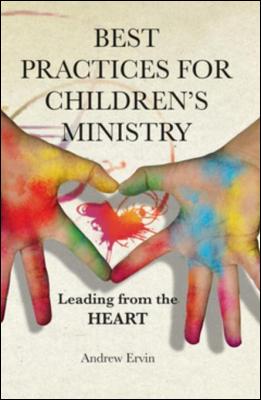 Best Practices for Children’s Ministry: Leading from the Heart Andrew Ervin (Beacon Hill Press) $14.99 Beacon Hill is a publishing house of the Church of the Nazarene and they do some very good stuff. This is pretty simple, exciting, a great compendium of best practices and positive examples. Lots of stories from pretty conservative evangelical churches, each with a strong and effective program or activity. Lots to learn, lots to emulate.
Best Practices for Children’s Ministry: Leading from the Heart Andrew Ervin (Beacon Hill Press) $14.99 Beacon Hill is a publishing house of the Church of the Nazarene and they do some very good stuff. This is pretty simple, exciting, a great compendium of best practices and positive examples. Lots of stories from pretty conservative evangelical churches, each with a strong and effective program or activity. Lots to learn, lots to emulate. 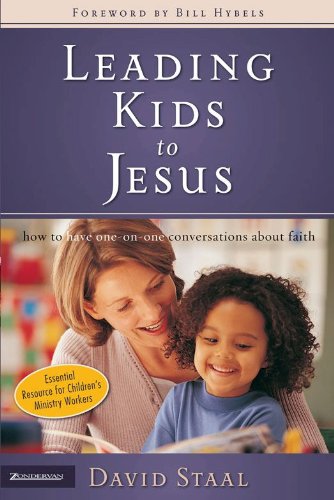 Leading Kids to Jesus: How to Have One-on-One Conversations About Faith David Staal (Zondervan) $14.99 This came out of Willow Creek, with a great forward by Bill Hybels. It is an “essential resource for children’s ministry workers” and helps us learn to communicate God’s love in ways that kids will understand. Really has a lot of good stuff. I suspect almost anyone who works with kids, from any sort of church, will find useful insights here, will be touched by the stories and examples, and will be reminded of really basic, good stuff.
Leading Kids to Jesus: How to Have One-on-One Conversations About Faith David Staal (Zondervan) $14.99 This came out of Willow Creek, with a great forward by Bill Hybels. It is an “essential resource for children’s ministry workers” and helps us learn to communicate God’s love in ways that kids will understand. Really has a lot of good stuff. I suspect almost anyone who works with kids, from any sort of church, will find useful insights here, will be touched by the stories and examples, and will be reminded of really basic, good stuff. 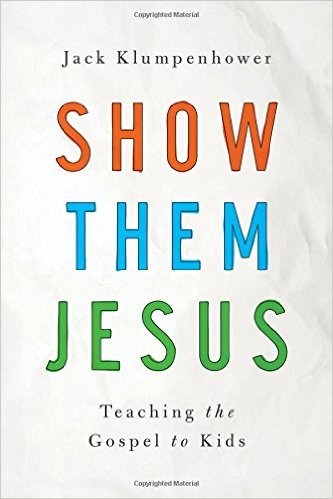 Show Them Jesus: Teaching the Gospel to Kids Jack Klumperhower (New Growth Press) $17.99 This was created by Serge (formerly World Harvest Mission), the ministry that gave us the intense gospel-centered life curriculum, the SonShip materials, etc. Strong on grace, insisting that the Christ-centered gospel is transformational. This is meaty, serious, and exceptionally clear about the core things of the faith and how to help kids understand and embrace Christ.
Show Them Jesus: Teaching the Gospel to Kids Jack Klumperhower (New Growth Press) $17.99 This was created by Serge (formerly World Harvest Mission), the ministry that gave us the intense gospel-centered life curriculum, the SonShip materials, etc. Strong on grace, insisting that the Christ-centered gospel is transformational. This is meaty, serious, and exceptionally clear about the core things of the faith and how to help kids understand and embrace Christ.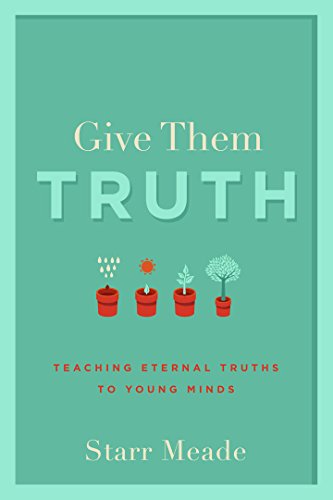 Give Them Truth: Teaching Eternal Truths to Young Minds Starr Meade (Presbyterian & Reformed) $14.99 Starr Meade is a very bright woman — she’s taught Latin, for crying out loud — and has much experience as director of children’s ministry at a local church. You may know her many books such as Training Hearts, Teaching Minds or a series of Bible studies. Here she insists (our of a fairly conservative, evangelical context) that children are born theologians, that we have a great opportunity to go after the biggest questions and the deepest things rather than being shallow or superficial. Truth, she reminds us here, isn’t just intellectual, it is personal. Only being well rooted in the deep gospel will allow kids to endure the contemporary challenges of our modern culture. How do we begin, as parents or educators? Starr Meade can help. Give Them Truth.
Give Them Truth: Teaching Eternal Truths to Young Minds Starr Meade (Presbyterian & Reformed) $14.99 Starr Meade is a very bright woman — she’s taught Latin, for crying out loud — and has much experience as director of children’s ministry at a local church. You may know her many books such as Training Hearts, Teaching Minds or a series of Bible studies. Here she insists (our of a fairly conservative, evangelical context) that children are born theologians, that we have a great opportunity to go after the biggest questions and the deepest things rather than being shallow or superficial. Truth, she reminds us here, isn’t just intellectual, it is personal. Only being well rooted in the deep gospel will allow kids to endure the contemporary challenges of our modern culture. How do we begin, as parents or educators? Starr Meade can help. Give Them Truth.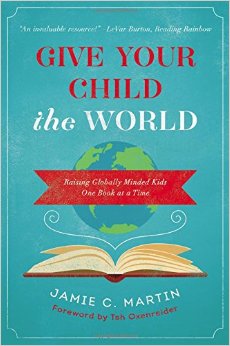 Give Your Child the World: Raising Globally Minded Kids One Book at a Time Jamie C. Martin (Zondervan) $16.99 Okay, friends, this is it: one of the books I am most excited about this new season. This is why we sell books for a living, this is why you read BookNotes, this is why you care about the power of story and the beauty of the printed page. This is what LaVar Burton — you remember him from Reading Rainbow, surely — says is “an invaluable resource!” Tsh Oxenreider wrote a lovely forward setting the table for what is a feast, tons of ideas about tons of books that we can use to help our kids grow to love the world God so loves.
Give Your Child the World: Raising Globally Minded Kids One Book at a Time Jamie C. Martin (Zondervan) $16.99 Okay, friends, this is it: one of the books I am most excited about this new season. This is why we sell books for a living, this is why you read BookNotes, this is why you care about the power of story and the beauty of the printed page. This is what LaVar Burton — you remember him from Reading Rainbow, surely — says is “an invaluable resource!” Tsh Oxenreider wrote a lovely forward setting the table for what is a feast, tons of ideas about tons of books that we can use to help our kids grow to love the world God so loves.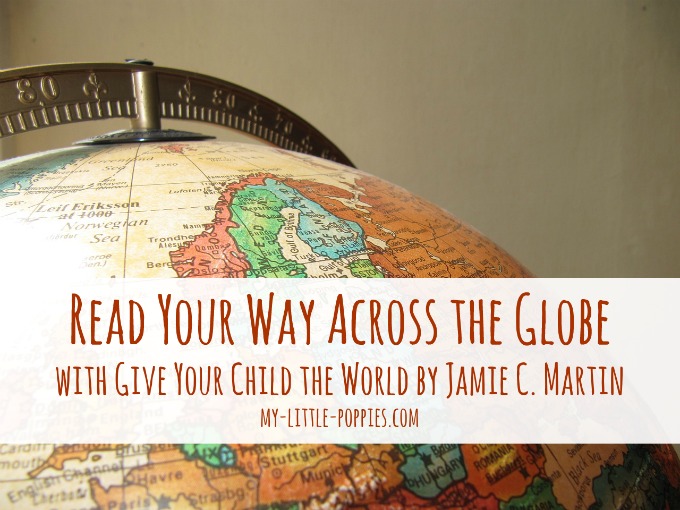
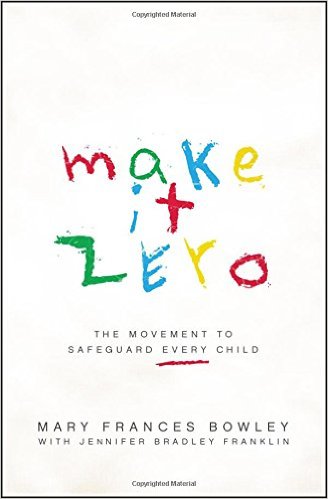 Make It Zero: The Movement to Safeguard Every Child Mary Frances Bowley (Moody) $13.99 This is passionately written by two young evangelical women who invite us to be advocates for children against any sort of abuse — poverty, hunger, neglect — and certainly that we must safeguard our church facilities and programs against putting children at risk. It’s a passionate, thoughtful, energetic book that will re-inspire you to justice for kids. Nicely done.
Make It Zero: The Movement to Safeguard Every Child Mary Frances Bowley (Moody) $13.99 This is passionately written by two young evangelical women who invite us to be advocates for children against any sort of abuse — poverty, hunger, neglect — and certainly that we must safeguard our church facilities and programs against putting children at risk. It’s a passionate, thoughtful, energetic book that will re-inspire you to justice for kids. Nicely done.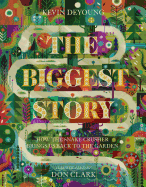
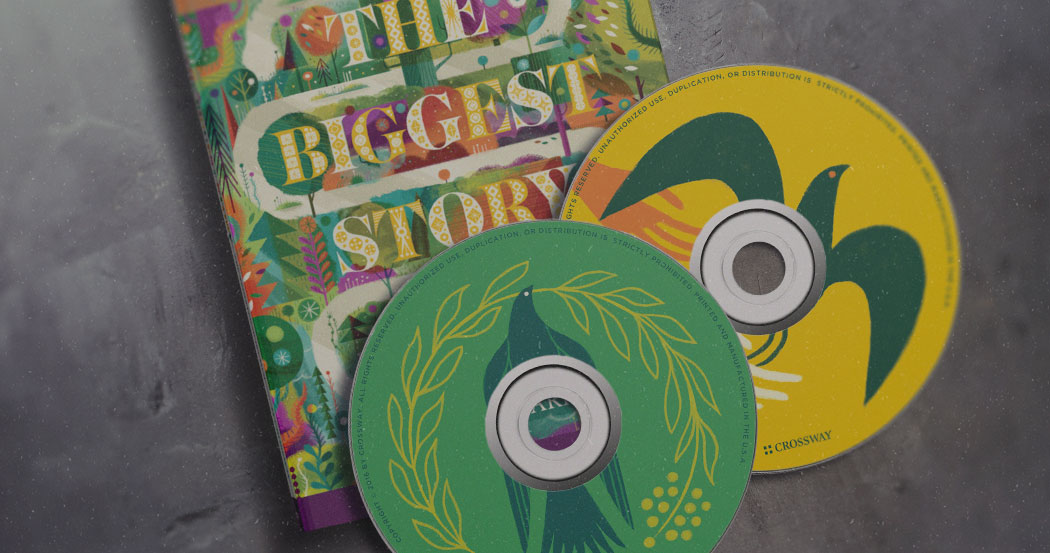 The Biggest Story: The Animated Short Film offers in 26 beautiful minutes remarkable animations adapted from The Biggest Story book. It will, as it says in their promo, “captivate children and parents alike as they are led on an exciting journey through the Bible — connecting the dots from the garden of Eden to Christ’s death on the cross to the new heaven and earth.” It is ideal for teaching children the core message of the Bible at home, at church, or any kind of a classroom. Maybe you should get it for your adult Bible study group!
The Biggest Story: The Animated Short Film offers in 26 beautiful minutes remarkable animations adapted from The Biggest Story book. It will, as it says in their promo, “captivate children and parents alike as they are led on an exciting journey through the Bible — connecting the dots from the garden of Eden to Christ’s death on the cross to the new heaven and earth.” It is ideal for teaching children the core message of the Bible at home, at church, or any kind of a classroom. Maybe you should get it for your adult Bible study group!
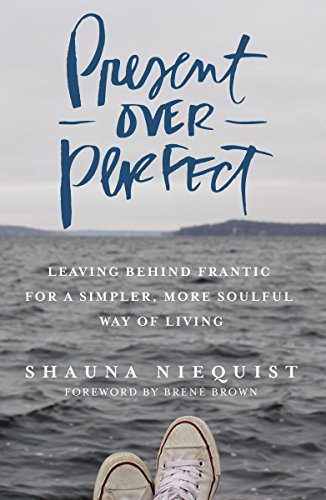 Present Over Perfect: Leaving Behind Frantic for a Simpler, More Soulful Way of Living Shauna Niequist (Zondervan) $22.99 This will be, I assure you, one of the biggest selling religious books of the fall, but it will be popular in more general market bookstores, too. She has a way with words and is a poignant, moving storyteller. I hope you knew her lovely reflections, memoiristic ruminations about finding God in the ordinary of life – Cold Tangerines and Bittersweet. Her Bread and Wine is truly a glorious, beautifully written, fabulous book about food, friends, fellowship (with recipes.) Her collection of pieces, taken mostly from other books, arranged as a handsome daily devotional is Savor. One can see this trajectory, and as a church worker and Christian speaker (and Bill Hybel’s daughter) she has developed a workaholic obsession, and this gut-wrenching and beautifully written manifesto is her big effort of saying no to some of the craziness this frantic way of life creates.
Present Over Perfect: Leaving Behind Frantic for a Simpler, More Soulful Way of Living Shauna Niequist (Zondervan) $22.99 This will be, I assure you, one of the biggest selling religious books of the fall, but it will be popular in more general market bookstores, too. She has a way with words and is a poignant, moving storyteller. I hope you knew her lovely reflections, memoiristic ruminations about finding God in the ordinary of life – Cold Tangerines and Bittersweet. Her Bread and Wine is truly a glorious, beautifully written, fabulous book about food, friends, fellowship (with recipes.) Her collection of pieces, taken mostly from other books, arranged as a handsome daily devotional is Savor. One can see this trajectory, and as a church worker and Christian speaker (and Bill Hybel’s daughter) she has developed a workaholic obsession, and this gut-wrenching and beautifully written manifesto is her big effort of saying no to some of the craziness this frantic way of life creates.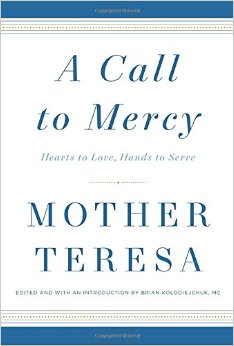 A Call to Mercy: Hearts to Love, Hands to Serve Mother Teresa; edited by Brian Kolodiejchuk (Image) $25.00 This handsome hardcover collects previously unreleased (and in some cases, previously unknown) writings of the woman who will be soon become the next officially canonize Saint in the Roman Catholic Church. Of course, it also coincides nicely with Pope Francis’ “Year of Mercy” as it guides readers to see how mercy and compassion can be shown in our day-to-day lives.
A Call to Mercy: Hearts to Love, Hands to Serve Mother Teresa; edited by Brian Kolodiejchuk (Image) $25.00 This handsome hardcover collects previously unreleased (and in some cases, previously unknown) writings of the woman who will be soon become the next officially canonize Saint in the Roman Catholic Church. Of course, it also coincides nicely with Pope Francis’ “Year of Mercy” as it guides readers to see how mercy and compassion can be shown in our day-to-day lives. Poets & Saints: Eternal Insight, Extravagant Love, Ordinary People Jamie George (Cook) $16.99 Speaking of saints, one of my favorite books in recent years is Accidental Saints by emergent Lutheran pastor Nadia Bolz-Weber in which she tells the stories of messed up and graced people in her rag-tag House of All Sinners & Saints faith community in Denver. Well, Jamie George isn’t quite as colorful, but he’s a fine writer. He founded Journey Church in Tennessee as a safe haven for the religiously wounded. (An acclaimed worship band, All Sons & Daughters, was birthed in that church.) As one of the singers of that band puts it “Jamie George is one of our generation’s most inspired storytellers… it was a privilege to read his words and be reminded that God has woven the past and present together in a remarkable and vibrant way.” Yep, here the exceptionally hip J. George tells of eleven historic Christ-followers, from Saint Therese, George MacDonald, and C.S. Lewis, to Calvin, Luther, Saint Francis – with a lovely interlude on the architecture of great cathedrals. Poets and Saints offers a cool and inviting reflection on these characters who can helps us “love like poets, live like saints.” Looks great!
Poets & Saints: Eternal Insight, Extravagant Love, Ordinary People Jamie George (Cook) $16.99 Speaking of saints, one of my favorite books in recent years is Accidental Saints by emergent Lutheran pastor Nadia Bolz-Weber in which she tells the stories of messed up and graced people in her rag-tag House of All Sinners & Saints faith community in Denver. Well, Jamie George isn’t quite as colorful, but he’s a fine writer. He founded Journey Church in Tennessee as a safe haven for the religiously wounded. (An acclaimed worship band, All Sons & Daughters, was birthed in that church.) As one of the singers of that band puts it “Jamie George is one of our generation’s most inspired storytellers… it was a privilege to read his words and be reminded that God has woven the past and present together in a remarkable and vibrant way.” Yep, here the exceptionally hip J. George tells of eleven historic Christ-followers, from Saint Therese, George MacDonald, and C.S. Lewis, to Calvin, Luther, Saint Francis – with a lovely interlude on the architecture of great cathedrals. Poets and Saints offers a cool and inviting reflection on these characters who can helps us “love like poets, live like saints.” Looks great! The Dwelling Place of Wonder Harry
The Dwelling Place of Wonder Harry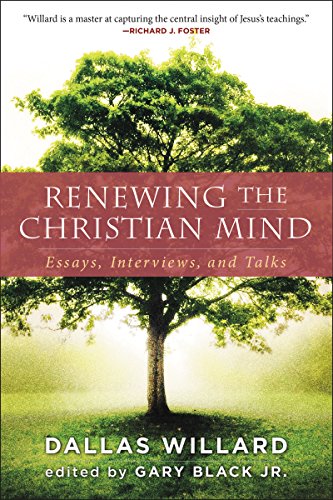 Renewing the Christian Mind: Essays, Interviews, and Talks Dallas Willard (HarperOne) $24.99 This collection of some previously unpublished or published in obscure places makes this feel like a brand new book, and in a way, a greatest hits – so good! It has been called the “definitive collection” and it cannot be understated how important and transforming this all is. There are chapters here that appeared in other anthologies, papers presented at conferences, good interviews (like a fabulous one conducted by Luci Shaw for Radix magazine) and wonderfully-written pieces that were forwards or introductions to other people’s books. This was curated and edited by Gary Black of the Azusa Pacific University Honors College who co-wrote with Willard The Divine Conspiracy Continued, edited a collection of Willard’s stuff called Preparing for Heaven, and is the author of a book about Willard, as well as one about calling on Fortress Press.) I often tell people to begin their journey reading Willard by starting with Renovation of the Heart or Spirit of the Disciplines but this, this is wonderful. Highly recommended.
Renewing the Christian Mind: Essays, Interviews, and Talks Dallas Willard (HarperOne) $24.99 This collection of some previously unpublished or published in obscure places makes this feel like a brand new book, and in a way, a greatest hits – so good! It has been called the “definitive collection” and it cannot be understated how important and transforming this all is. There are chapters here that appeared in other anthologies, papers presented at conferences, good interviews (like a fabulous one conducted by Luci Shaw for Radix magazine) and wonderfully-written pieces that were forwards or introductions to other people’s books. This was curated and edited by Gary Black of the Azusa Pacific University Honors College who co-wrote with Willard The Divine Conspiracy Continued, edited a collection of Willard’s stuff called Preparing for Heaven, and is the author of a book about Willard, as well as one about calling on Fortress Press.) I often tell people to begin their journey reading Willard by starting with Renovation of the Heart or Spirit of the Disciplines but this, this is wonderful. Highly recommended.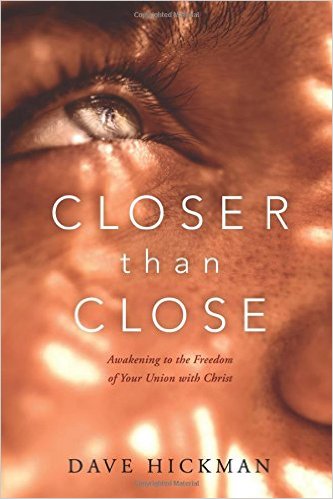 Closer Than Close: Awakening to the Freedom of Your Union with Christ Dave Hickman (NavPress) $14.99 As a Presbyterian, I learned a long time ago that one of John Calvin’s deepest teachings and a nearly constant motif was “union with Christ.” Of course, all of our best spiritual teachers, from the monks and mystics to those highlighting a lively encounter with the Holy Spirit have all talked about this key topic. It is a rich Biblical motif and there is much to gain from pondering it. For those who want to go a bit deeper into spirituality, without drifting away from solid Biblical approaches, this new work by a young and thoughtful church planter (founder of Charlotte One, a huge network of churches) could be very, very helpful. It is rooted in the gospel — we don’t have to conjure up, let alone earn intimacy with God. God takes up residence in us, inviting us to be a new creation in Christ. I need all the help I can get, and if the Dallas Willard (above) seems a bit daunting, this could be a similar sort of approach. Good reading as we move into the busy fall season! Nice study/reflection questions, too, making it useful.
Closer Than Close: Awakening to the Freedom of Your Union with Christ Dave Hickman (NavPress) $14.99 As a Presbyterian, I learned a long time ago that one of John Calvin’s deepest teachings and a nearly constant motif was “union with Christ.” Of course, all of our best spiritual teachers, from the monks and mystics to those highlighting a lively encounter with the Holy Spirit have all talked about this key topic. It is a rich Biblical motif and there is much to gain from pondering it. For those who want to go a bit deeper into spirituality, without drifting away from solid Biblical approaches, this new work by a young and thoughtful church planter (founder of Charlotte One, a huge network of churches) could be very, very helpful. It is rooted in the gospel — we don’t have to conjure up, let alone earn intimacy with God. God takes up residence in us, inviting us to be a new creation in Christ. I need all the help I can get, and if the Dallas Willard (above) seems a bit daunting, this could be a similar sort of approach. Good reading as we move into the busy fall season! Nice study/reflection questions, too, making it useful.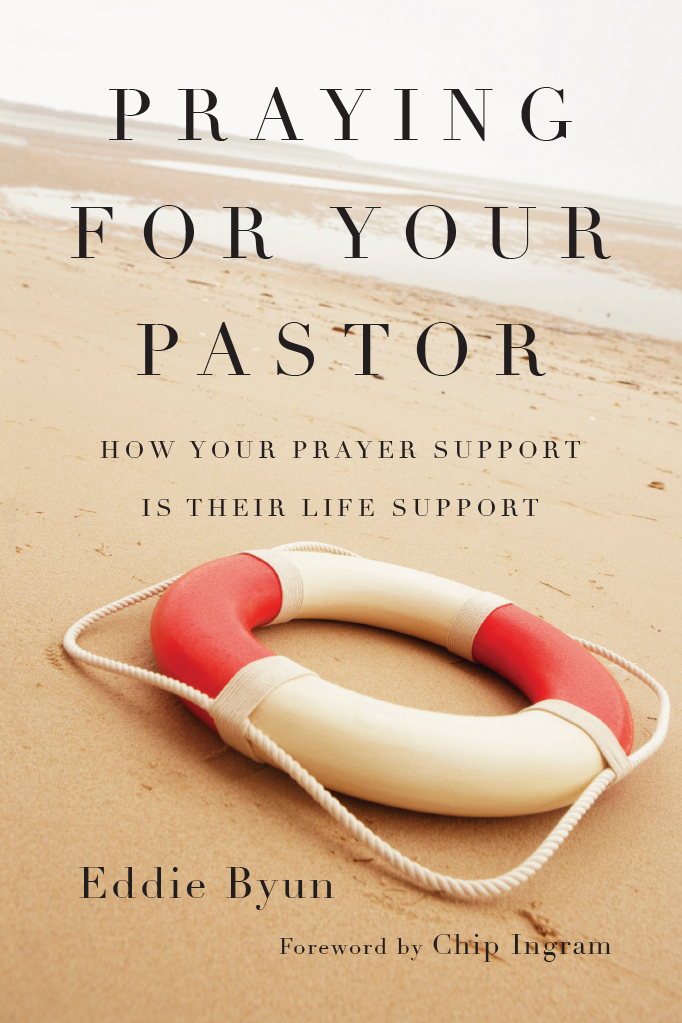 Praying for Your Pastor: How Your Prayer Support Is Their Life Support Eddie Byun (IVP) $15.00 Byun is a pastor of a church in Seoul, South Korea and wrote a book on how his church has been involved in fighting sexual trafficking (Justice Awakening) which was very good. Here, he writes a book that we’ve needed for a long time – serious, but not overbearing, deeply spiritual, but not weird or off-putting, handy, but not simplistic. I’m very excited about this, looking for its guidance in helping us pray for our pastors, and pray for them wisely. It has good and informative chapters about 7 key areas for which we might pray — from rest to strong families to “a yielded heart” and the like. It is a good glimpse into the lives of ministry about which some of us don’t know much. In fact, I might suspect that some clergy don’t think deeply about some of these things…
Praying for Your Pastor: How Your Prayer Support Is Their Life Support Eddie Byun (IVP) $15.00 Byun is a pastor of a church in Seoul, South Korea and wrote a book on how his church has been involved in fighting sexual trafficking (Justice Awakening) which was very good. Here, he writes a book that we’ve needed for a long time – serious, but not overbearing, deeply spiritual, but not weird or off-putting, handy, but not simplistic. I’m very excited about this, looking for its guidance in helping us pray for our pastors, and pray for them wisely. It has good and informative chapters about 7 key areas for which we might pray — from rest to strong families to “a yielded heart” and the like. It is a good glimpse into the lives of ministry about which some of us don’t know much. In fact, I might suspect that some clergy don’t think deeply about some of these things…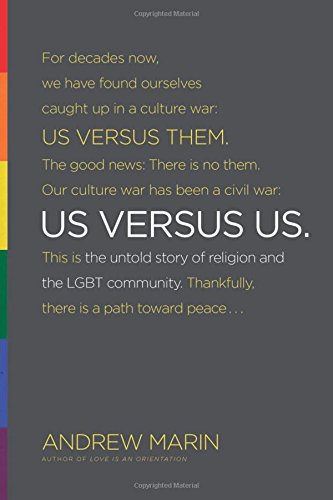 Us Versus Us: The Untold Story of Religion and the LGBT Community Andrew Marin (NavPress) $14.99 I have been touting this wherever I can as it offers tremendously fascinating – groundbreaking and historic, I’d even say – research into the religious beliefs and attitudes of the GLTBQ community in the US. Andrew Marin (who wrote the excellent Love Is an Orientation: Elevating the Conversation with the Gay Community) has a huge heart and a serious passion to repair breeches between the religious community and GLTBQ folks. He commissioned a scientifically serious (the largest ever done) research project on this topic, and got some of the best statisticians and sociologists to crunch the data. What they discovered is breathtaking, indicating that (by far) LGBT persons report to be more interested in religion than any other subculture in America. Surprisingly, 86 percent of LGBT people spent their childhood in church. More than half left their religious communities as adults. And 3 out of 4 would be happy to return.
Us Versus Us: The Untold Story of Religion and the LGBT Community Andrew Marin (NavPress) $14.99 I have been touting this wherever I can as it offers tremendously fascinating – groundbreaking and historic, I’d even say – research into the religious beliefs and attitudes of the GLTBQ community in the US. Andrew Marin (who wrote the excellent Love Is an Orientation: Elevating the Conversation with the Gay Community) has a huge heart and a serious passion to repair breeches between the religious community and GLTBQ folks. He commissioned a scientifically serious (the largest ever done) research project on this topic, and got some of the best statisticians and sociologists to crunch the data. What they discovered is breathtaking, indicating that (by far) LGBT persons report to be more interested in religion than any other subculture in America. Surprisingly, 86 percent of LGBT people spent their childhood in church. More than half left their religious communities as adults. And 3 out of 4 would be happy to return. 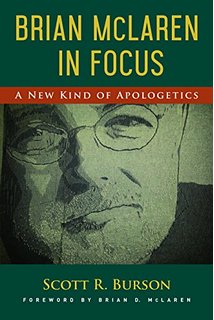 Brian McLaren in Focus: A New Kind of Apologetics Scott R. Burson (Abilene Christian University Press) $22.99 This book deserves a very careful review and I hope it is widely read – what a great bit of research where the author does a gracious, critical read of Brian’s roots, writing, trajectory, based not only on his many books, but on lengthy conversations and interviews (some of which are included in the book.) Brian was remarkably important to the postmodern and postcolonial movements that influenced what was called for a while the emergent village and the emergent church movement. (Phyllis Tickle was one of the many who documented this trend in books such as Emergence Christianity: What It Is, Where It Is Going, and Why It Matters.)
Brian McLaren in Focus: A New Kind of Apologetics Scott R. Burson (Abilene Christian University Press) $22.99 This book deserves a very careful review and I hope it is widely read – what a great bit of research where the author does a gracious, critical read of Brian’s roots, writing, trajectory, based not only on his many books, but on lengthy conversations and interviews (some of which are included in the book.) Brian was remarkably important to the postmodern and postcolonial movements that influenced what was called for a while the emergent village and the emergent church movement. (Phyllis Tickle was one of the many who documented this trend in books such as Emergence Christianity: What It Is, Where It Is Going, and Why It Matters.)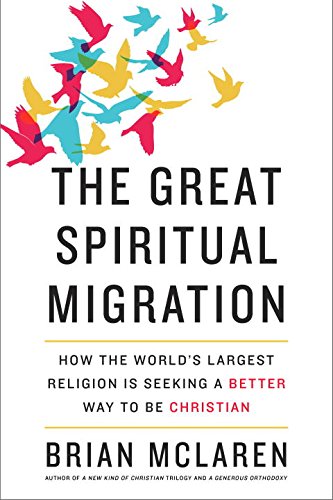
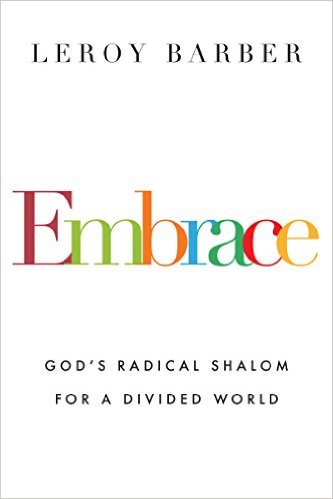 Embrace: God’s Radical Shalom for a Divide World Leroy Barber (IVP) $16.00 I read anything this good brother writes. This is co-sponsored by the CCDA (Christian Community Development Association) and is under the Missio Alliance imprint. Barber, who once directed the urban “Mission Year” project, and now is the chaplain of Kilns College and director of the Voices Project, has written passionately about racial diversity, about urban ministry, and about how all of us can develop a missional vision of daily, whole-life discipleship. (I highly recommend his Everyday Mission book as a great read or small group study.)
Embrace: God’s Radical Shalom for a Divide World Leroy Barber (IVP) $16.00 I read anything this good brother writes. This is co-sponsored by the CCDA (Christian Community Development Association) and is under the Missio Alliance imprint. Barber, who once directed the urban “Mission Year” project, and now is the chaplain of Kilns College and director of the Voices Project, has written passionately about racial diversity, about urban ministry, and about how all of us can develop a missional vision of daily, whole-life discipleship. (I highly recommend his Everyday Mission book as a great read or small group study.)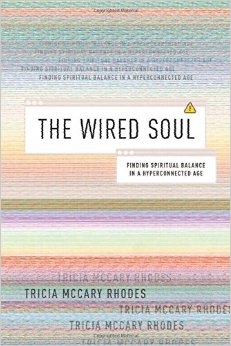 The Wired Soul: Finding Spiritual Balance in a Hyperconnected Age Tricia McCary Rhodes, PhD (NavPress) $14.99 I am always on the lookout for faith-based books that are nuanced, wise, thoughtful, inviting us to think critical about our accommodating to the fast-paced, hot-wired, digital world. Almost all of us struggle to figure out a more sane use of our energy and time, to pray, to be attentive, to “be still and know that God is God.” We have our idols, our bad habits, and these are not made easier by our on-line habits. But shutting down and going off the grid isn’t necessarily helpful for most of us. What we need is a critical but also appreciative analysis of technologies. I like what Quinten Schultz years ago called in his book “habits of the high-tech heart.” This new book written by a very fine writer of contemplative prayer practices (The Soul at Rest and Sacred Chaos) looks to be like one of the very best I’ve seen. Gary Moon says it is “a beautifully written book for digital immigrants, digital natives, and second- generation net-surfers.” The Wired Soul uses the language of “slow reading” and “receptive reading” and offers guidance for meditative spirituality for those shaped by digital cultures.
The Wired Soul: Finding Spiritual Balance in a Hyperconnected Age Tricia McCary Rhodes, PhD (NavPress) $14.99 I am always on the lookout for faith-based books that are nuanced, wise, thoughtful, inviting us to think critical about our accommodating to the fast-paced, hot-wired, digital world. Almost all of us struggle to figure out a more sane use of our energy and time, to pray, to be attentive, to “be still and know that God is God.” We have our idols, our bad habits, and these are not made easier by our on-line habits. But shutting down and going off the grid isn’t necessarily helpful for most of us. What we need is a critical but also appreciative analysis of technologies. I like what Quinten Schultz years ago called in his book “habits of the high-tech heart.” This new book written by a very fine writer of contemplative prayer practices (The Soul at Rest and Sacred Chaos) looks to be like one of the very best I’ve seen. Gary Moon says it is “a beautifully written book for digital immigrants, digital natives, and second- generation net-surfers.” The Wired Soul uses the language of “slow reading” and “receptive reading” and offers guidance for meditative spirituality for those shaped by digital cultures.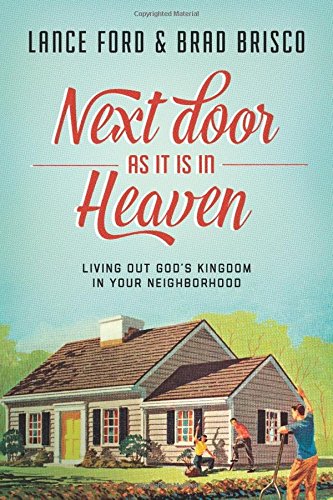 Next Door As It Is In Heaven: Living Out God’s Kingdom in Your Neighborhood Lance Ford and Brad Brisco (NavPress) $14.99 Wow, is this wonderful and I am very, very excited about it. It is not the first book this year that has explored a sense of place (see, for instance, the fabulous Staying Is the New Going by Alan Briggs or Leonce Crump’s Renovate,) but yet it brings more insight and more energy for this down to earth, missional vision; it is not redundant. In the early chapters he cites classics like Ray Oldenburg (The Great Good Place) and James Howard Kunstler (The Geography of Nowhere) so he had me there. Soon enough they are exploring the important work of Peter Block – are we the only Christian bookstore that carries that stuff?
Next Door As It Is In Heaven: Living Out God’s Kingdom in Your Neighborhood Lance Ford and Brad Brisco (NavPress) $14.99 Wow, is this wonderful and I am very, very excited about it. It is not the first book this year that has explored a sense of place (see, for instance, the fabulous Staying Is the New Going by Alan Briggs or Leonce Crump’s Renovate,) but yet it brings more insight and more energy for this down to earth, missional vision; it is not redundant. In the early chapters he cites classics like Ray Oldenburg (The Great Good Place) and James Howard Kunstler (The Geography of Nowhere) so he had me there. Soon enough they are exploring the important work of Peter Block – are we the only Christian bookstore that carries that stuff? 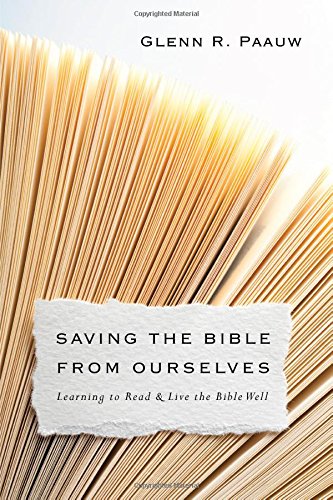 Saving the Bible From Ourselves: Learning to Read & Live the Bible Well Glenn R. Paauw (IVP) $18.00 I mentioned this earlier in the season and I felt like somehow it may have gotten lost in the shuffle of other books by better known authors. Paauw is vice president of global engagement at Biblica, which used to have connection to the American Bible Society. Anyway, he loves the Scriptures, is very interested in how people are reading and using the Scriptures, and offers here 7 “kinds” or sorts of ways we think of the Bible, and counters each with a more faithful sort. (For instance, in contrast to our presumption that the Bible is essentially “complicated” he unveils the “elegant Bible.” Instead of a “snacking” Bible he invites us to “savor the feasting Bible.” He says we need saved from “my private Bible” and speaks of “sharing our synagogue Bible.” Of course, instead of “our otherworldly Bible” he says we are to be “grounded in the Earthly Bible.” On great problem, “our de-dramatized Bible” takes two sections to refute. He shows how we can “rediscover the stroiented Bible” and then shows how we must “preform the stroiented Bible.” There’s more and it is rich, solid, creative, helpful stuff. Blurbs on the back and long and rich themselves, by Walter Brueggemann and Mark Noll, who both commend it earnestly. Yes!
Saving the Bible From Ourselves: Learning to Read & Live the Bible Well Glenn R. Paauw (IVP) $18.00 I mentioned this earlier in the season and I felt like somehow it may have gotten lost in the shuffle of other books by better known authors. Paauw is vice president of global engagement at Biblica, which used to have connection to the American Bible Society. Anyway, he loves the Scriptures, is very interested in how people are reading and using the Scriptures, and offers here 7 “kinds” or sorts of ways we think of the Bible, and counters each with a more faithful sort. (For instance, in contrast to our presumption that the Bible is essentially “complicated” he unveils the “elegant Bible.” Instead of a “snacking” Bible he invites us to “savor the feasting Bible.” He says we need saved from “my private Bible” and speaks of “sharing our synagogue Bible.” Of course, instead of “our otherworldly Bible” he says we are to be “grounded in the Earthly Bible.” On great problem, “our de-dramatized Bible” takes two sections to refute. He shows how we can “rediscover the stroiented Bible” and then shows how we must “preform the stroiented Bible.” There’s more and it is rich, solid, creative, helpful stuff. Blurbs on the back and long and rich themselves, by Walter Brueggemann and Mark Noll, who both commend it earnestly. Yes! 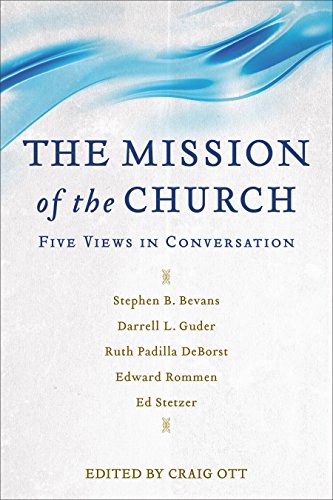 The Mission of the Church: Five Views in Conversation edited by Craig Ott (Baker Academic) $22.99 Wow, is this every useful, with great, great discourse around one of the most urgent questions of our time (or of any time, I suppose, but particularly urgent now.) It is asking what is the very nature of the church, and, therefore, what is the fundamental mission or task or calling of the local church. Few would disagree that there needs to be an outreach and service component to the church; but if it is only a side bit, then it ain’t really ‘missional.’ So, what are people saying about this debate? Are we to be mostly externally or internally focused? About building community or doing mission? how does formation happen? What are the roles of worship and sacraments? Can we agree on this or that or what? This is stimulating stuff as five major “camps” or views are presented.
The Mission of the Church: Five Views in Conversation edited by Craig Ott (Baker Academic) $22.99 Wow, is this every useful, with great, great discourse around one of the most urgent questions of our time (or of any time, I suppose, but particularly urgent now.) It is asking what is the very nature of the church, and, therefore, what is the fundamental mission or task or calling of the local church. Few would disagree that there needs to be an outreach and service component to the church; but if it is only a side bit, then it ain’t really ‘missional.’ So, what are people saying about this debate? Are we to be mostly externally or internally focused? About building community or doing mission? how does formation happen? What are the roles of worship and sacraments? Can we agree on this or that or what? This is stimulating stuff as five major “camps” or views are presented.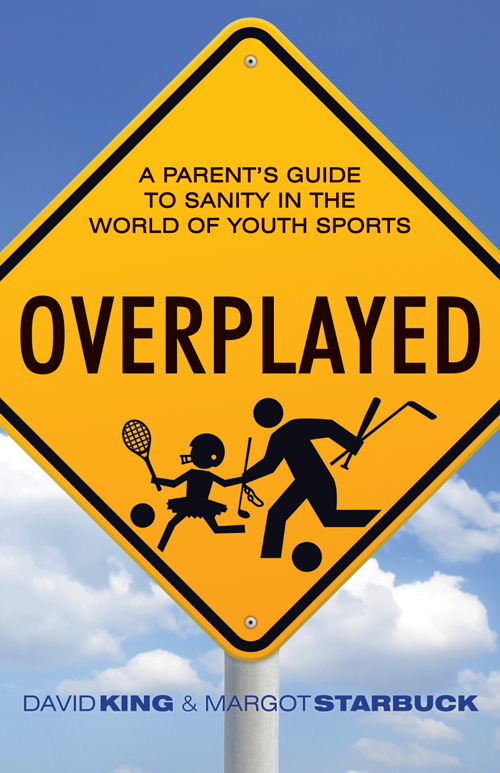 Overplayed: A Parent’s Guide to Sanity in the World of Youth Sports David King & Margot Starbuck (Herald Press) $15.99 We’ve recommended this before, telling about it when it first came out this Spring. What a great book, and what a great idea to combine the clever, upbeat – dare I say energetic – writing of the playful Margot Starbuck and the sporting expertise of David King who is the Director of Athletics at Eastern Mennonite University. For years, we’ve stocked a book or two from Dordt College Press (such as Christianity & Leisure: Issues in a Pluralistic Society) that were collections of academic papers presented by Christian scholars who work in physical education, sports, coaching, and leisure studies in order to nurture the Christian mind to reform our practices about faith and athletics and playfulness. Most of those pieces were fairly academic, and wonderfully important work such as Paul Heintzman’s Leisure and Spirituality: Biblical, Historical, and Contemporary Perspectives seemed to be more for sociologists and others who wanted scholarly reflections. We’ve needed a book that was thoughtful, but practical, for ordinary families, seeking to figure out this whole big deal. This is it! Overplayed: A Parent’s Guide is informed by a healthy appreciation of sport, but is brave enough to be critical of the ways in which we’ve come to embrace athletic culture; again, it is designed for ordinary families (although I could see church groups reading it together.) Three cheers for Overplayed. Mom and dad, you need this. Pastors, children’s ministry professionals, youth workers, coaches, sports fans – you need this.
Overplayed: A Parent’s Guide to Sanity in the World of Youth Sports David King & Margot Starbuck (Herald Press) $15.99 We’ve recommended this before, telling about it when it first came out this Spring. What a great book, and what a great idea to combine the clever, upbeat – dare I say energetic – writing of the playful Margot Starbuck and the sporting expertise of David King who is the Director of Athletics at Eastern Mennonite University. For years, we’ve stocked a book or two from Dordt College Press (such as Christianity & Leisure: Issues in a Pluralistic Society) that were collections of academic papers presented by Christian scholars who work in physical education, sports, coaching, and leisure studies in order to nurture the Christian mind to reform our practices about faith and athletics and playfulness. Most of those pieces were fairly academic, and wonderfully important work such as Paul Heintzman’s Leisure and Spirituality: Biblical, Historical, and Contemporary Perspectives seemed to be more for sociologists and others who wanted scholarly reflections. We’ve needed a book that was thoughtful, but practical, for ordinary families, seeking to figure out this whole big deal. This is it! Overplayed: A Parent’s Guide is informed by a healthy appreciation of sport, but is brave enough to be critical of the ways in which we’ve come to embrace athletic culture; again, it is designed for ordinary families (although I could see church groups reading it together.) Three cheers for Overplayed. Mom and dad, you need this. Pastors, children’s ministry professionals, youth workers, coaches, sports fans – you need this.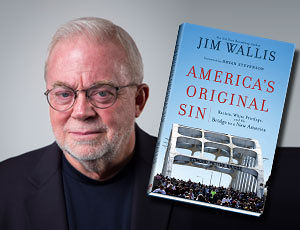
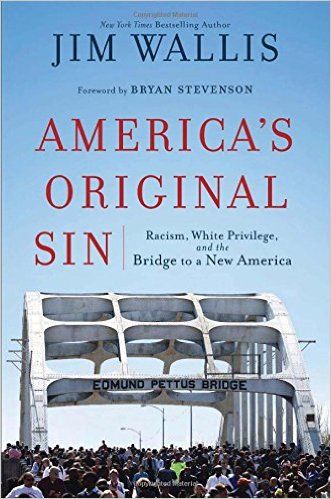 American’s Original Sin: Racism, White Privilege, and the Bridge to a New America (Brazos Press; usually $21.99) is a book that has been long in coming with Jim Wallis finally visiting a topic in a book length treatment that has been on his heart for most of his lifetime.
American’s Original Sin: Racism, White Privilege, and the Bridge to a New America (Brazos Press; usually $21.99) is a book that has been long in coming with Jim Wallis finally visiting a topic in a book length treatment that has been on his heart for most of his lifetime.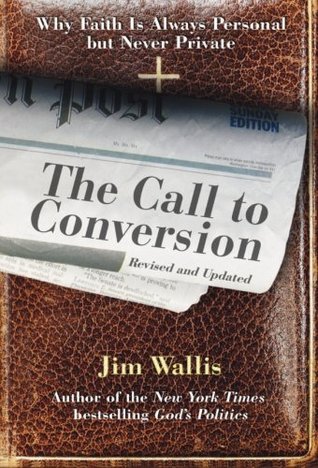
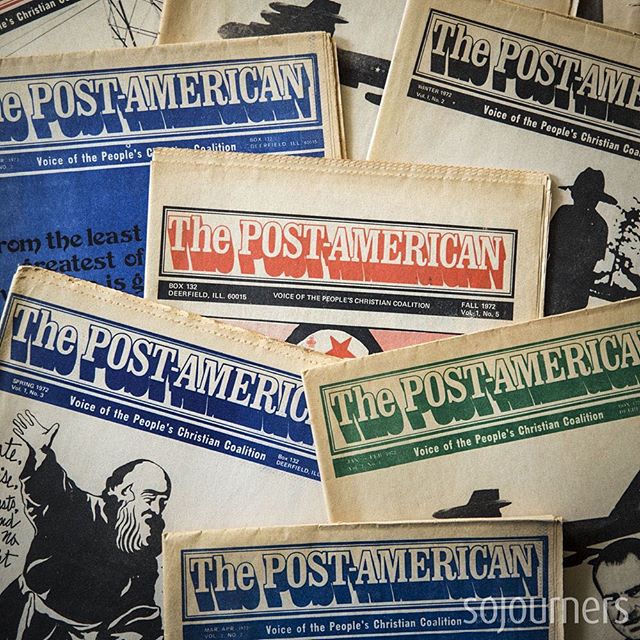
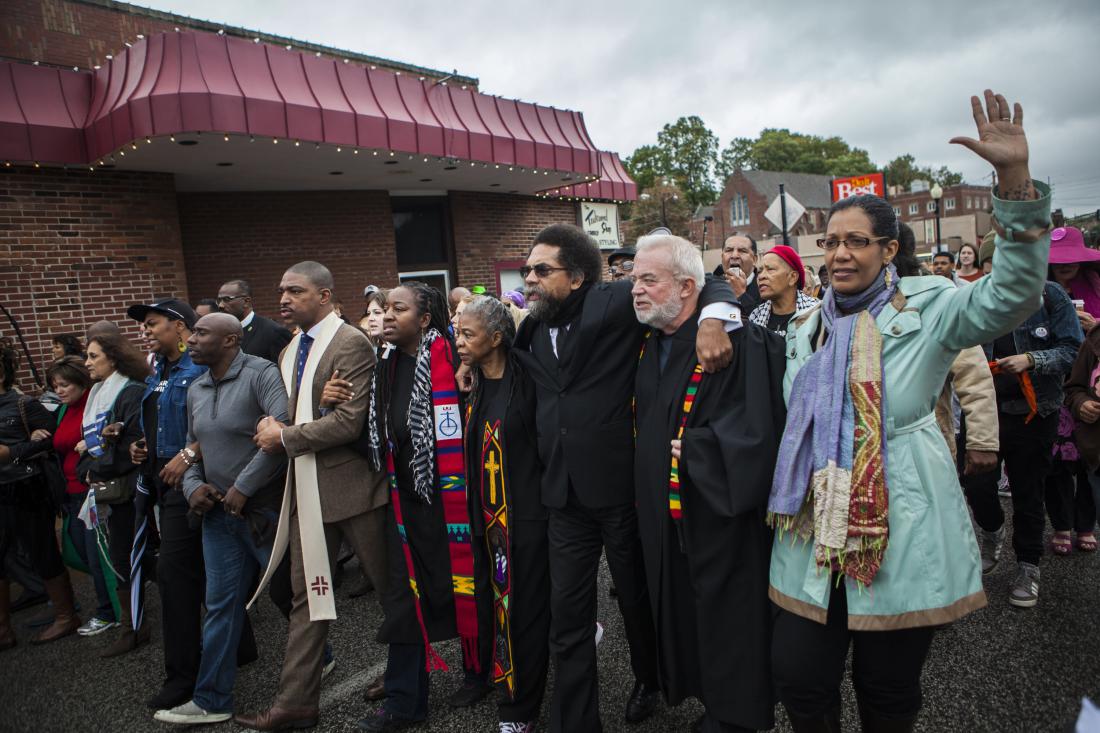
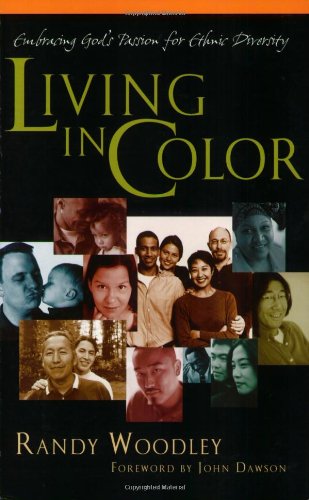
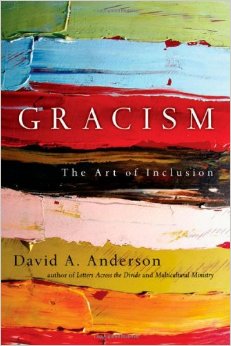
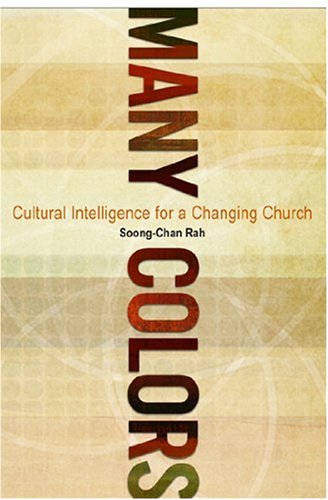 shifts in
shifts in 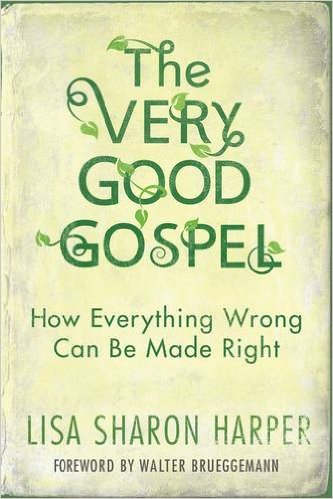 the cultures of the West.
the cultures of the West.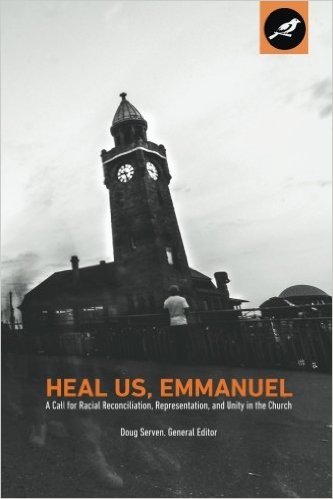 came out earlier this spring is
came out earlier this spring is 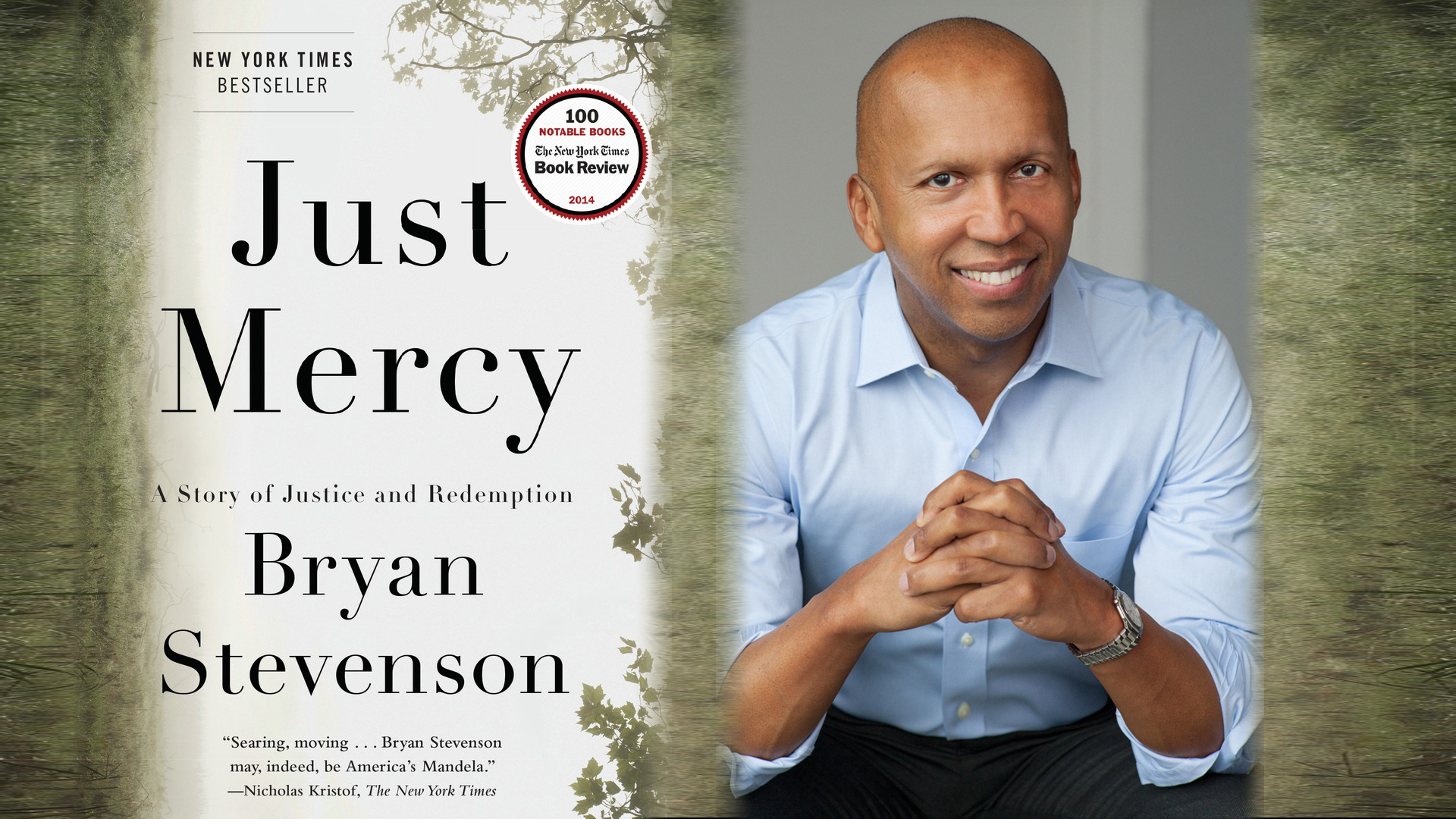
 AOS goes a bit deeper in a second way, not just by exploring serious policy documents and research and interpreting them for church-based readers, but by calling us to a robust interpersonal conversation.
AOS goes a bit deeper in a second way, not just by exploring serious policy documents and research and interpreting them for church-based readers, but by calling us to a robust interpersonal conversation.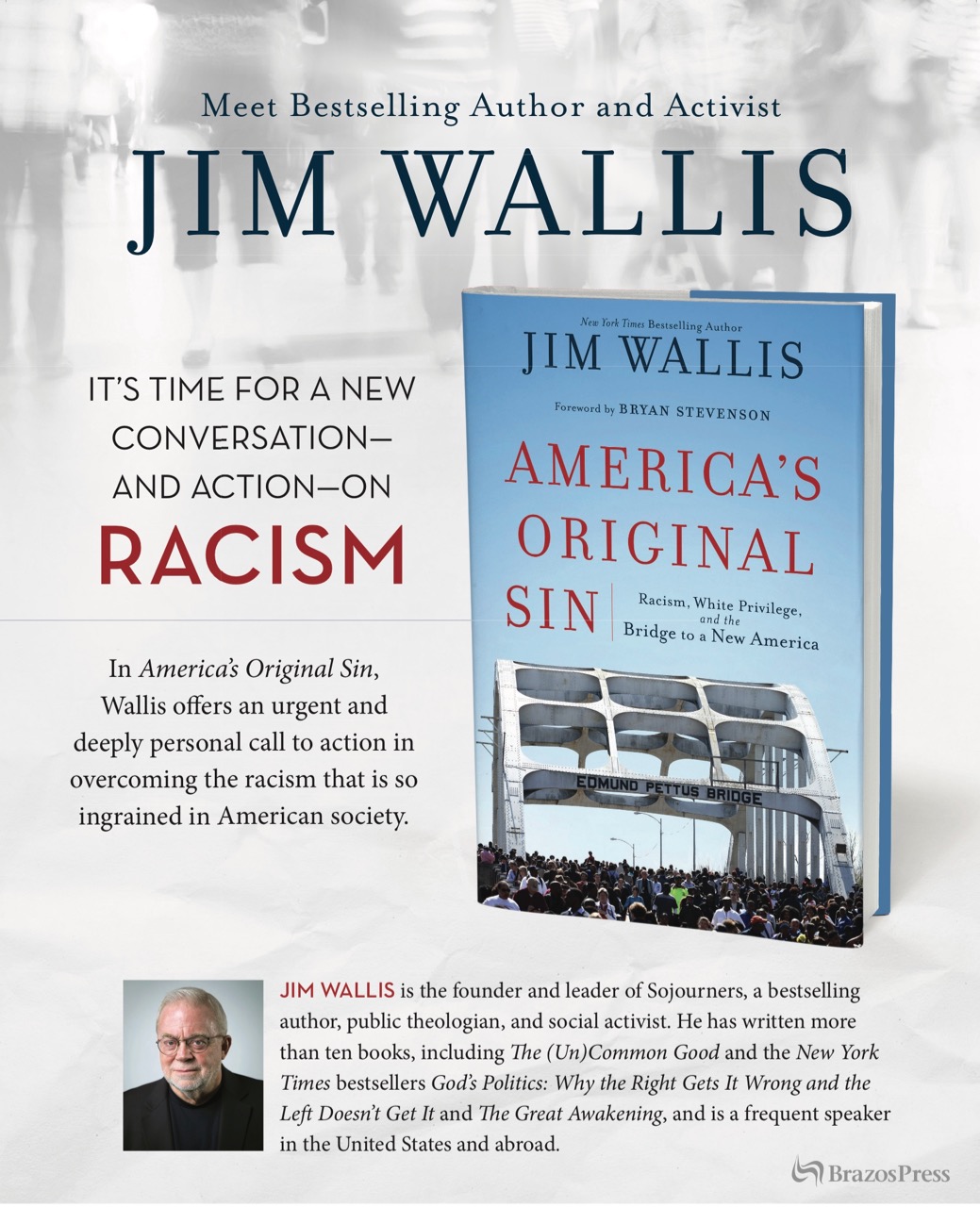 He insists that it is long past time for white parents to invite their black and other minority friends to level with them about their own experiences. This is hard stuff and although any number of books have recommended better friendships and more candid conversations, Wallis is clear and wise and helpful in saying what this might entail, how to pursue it, and what it might cost us all if we move in a direction of having such awkward, hard conversations.
He insists that it is long past time for white parents to invite their black and other minority friends to level with them about their own experiences. This is hard stuff and although any number of books have recommended better friendships and more candid conversations, Wallis is clear and wise and helpful in saying what this might entail, how to pursue it, and what it might cost us all if we move in a direction of having such awkward, hard conversations.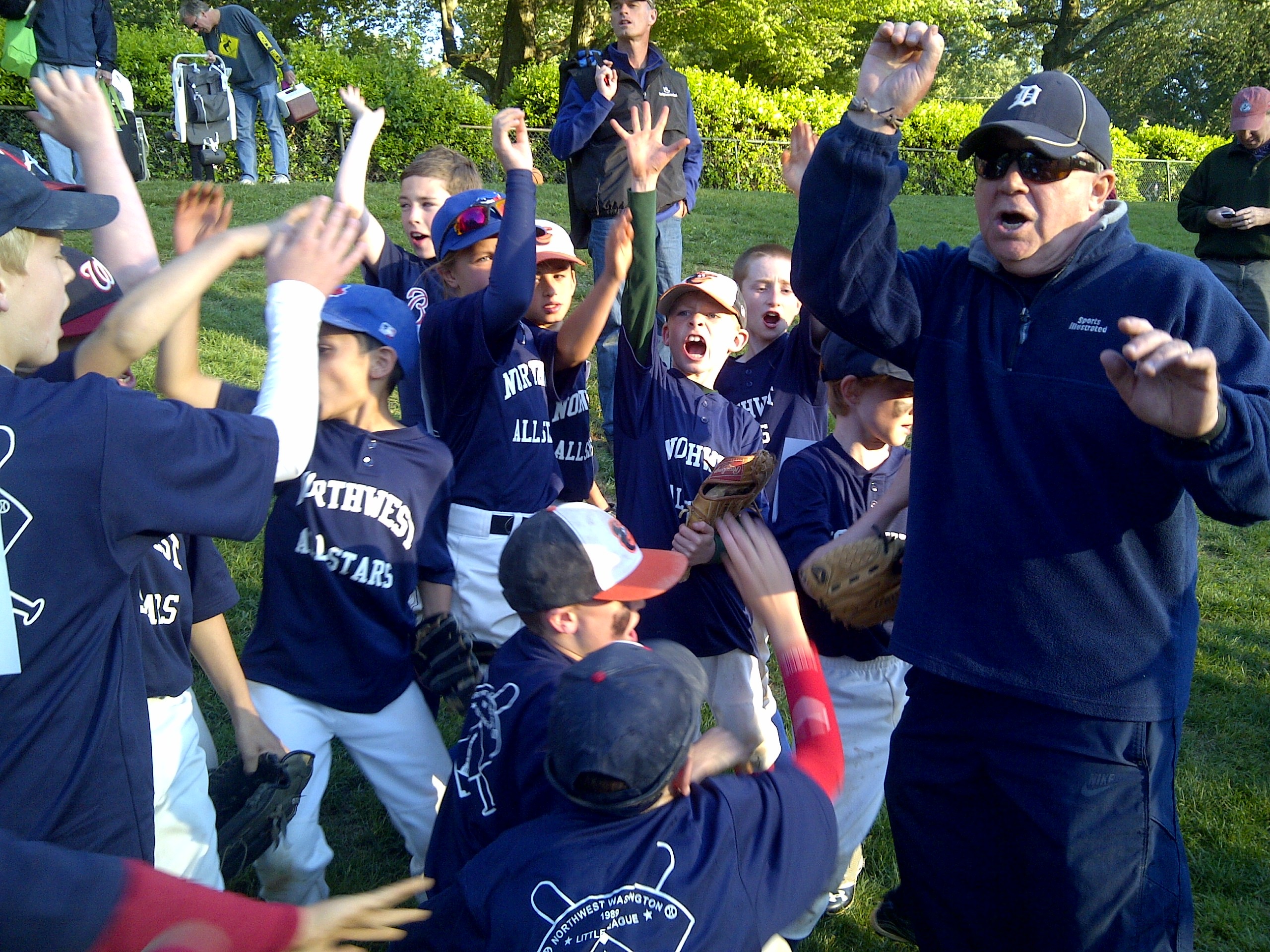
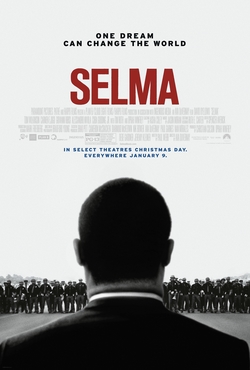
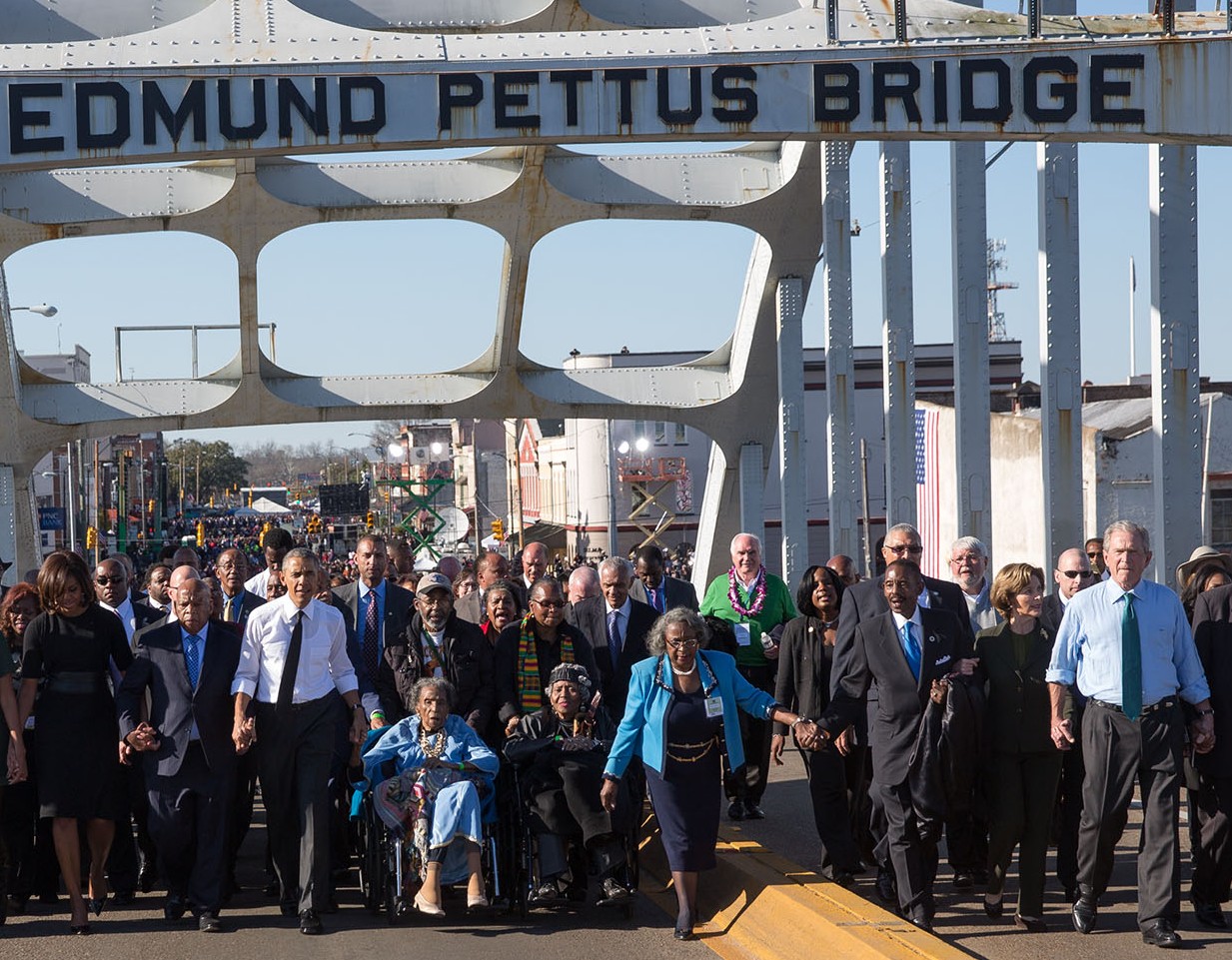 history, or if you say the excellent, award winning film, Selma, with David Oyelowo, you know that that infamous bridge was “a powerful and threatening symbol of white power and supremacy in Selma Alabama.”
history, or if you say the excellent, award winning film, Selma, with David Oyelowo, you know that that infamous bridge was “a powerful and threatening symbol of white power and supremacy in Selma Alabama.” 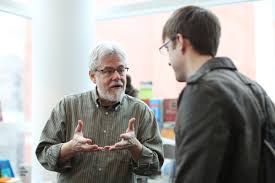
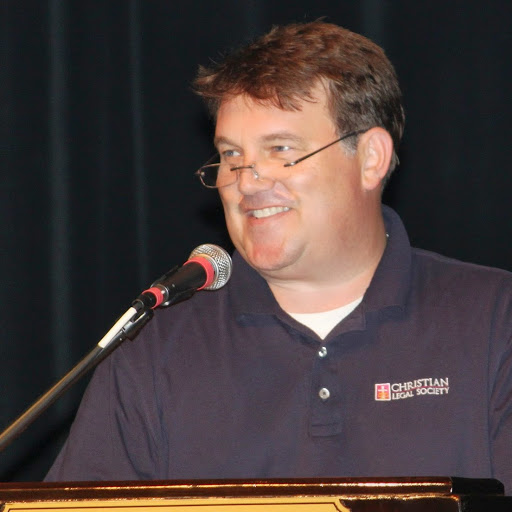
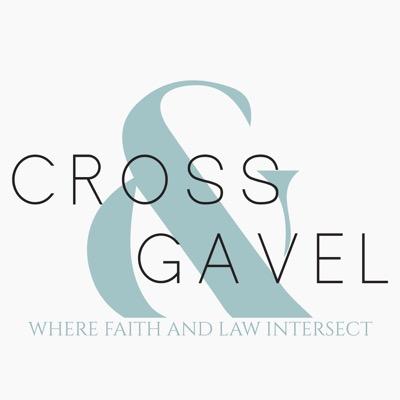
 The other day a well-educated friend asked me about what book to give her soon-to-be heading off to college daughter. Just a few short months ago, she was mostly known as a high school graduate; within a few weeks she will be a first year college student. It’s a big transition and a new identity, freighted with all kinds of joys, concerns, fears, excitement, opportunities, shaped by that biggee: change. Ch-ch-ch changes, indeed.
The other day a well-educated friend asked me about what book to give her soon-to-be heading off to college daughter. Just a few short months ago, she was mostly known as a high school graduate; within a few weeks she will be a first year college student. It’s a big transition and a new identity, freighted with all kinds of joys, concerns, fears, excitement, opportunities, shaped by that biggee: change. Ch-ch-ch changes, indeed.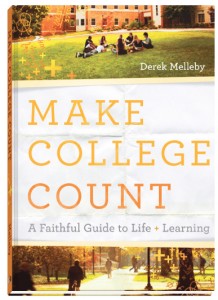 Make College Count Derek Melleby (Baker Books) $12.99 Okay, okay, I’ve mentioned this a lot over the years. Derek is one of my best friends. Our bookstore is mentioned in it as a resource for young adults trying to make their way as a responsible, thoughtful faithful college student. Still, as unbiased as I can be, I want to insist that it truly is the best book of its kind, the only really great book I know of that I’d give to a recent high school grad that is a general sort of introduction to the biggest questions to ask and answer as one is entering college.Melleby’s MCC is Ideal for those heading to school for the first time although some entering their second year might even like it.
Make College Count Derek Melleby (Baker Books) $12.99 Okay, okay, I’ve mentioned this a lot over the years. Derek is one of my best friends. Our bookstore is mentioned in it as a resource for young adults trying to make their way as a responsible, thoughtful faithful college student. Still, as unbiased as I can be, I want to insist that it truly is the best book of its kind, the only really great book I know of that I’d give to a recent high school grad that is a general sort of introduction to the biggest questions to ask and answer as one is entering college.Melleby’s MCC is Ideal for those heading to school for the first time although some entering their second year might even like it.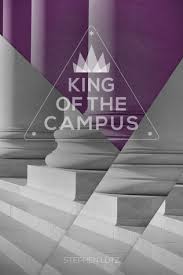 King of the Campus Stephen Lutz (House Studio) $14.99 Again, I’ve suggested this before and carry it to any event where we sell books to college students. My own blurb on the back shouts my enthusiasm: there isn’t any other book on the market that does what this very cool paperback does. Yeah!
King of the Campus Stephen Lutz (House Studio) $14.99 Again, I’ve suggested this before and carry it to any event where we sell books to college students. My own blurb on the back shouts my enthusiasm: there isn’t any other book on the market that does what this very cool paperback does. Yeah!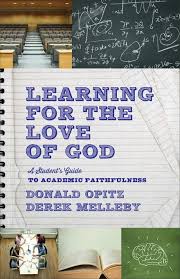 Learning for the Love of God: A Student’s Guide to Academic Faithfulness Donald Opitz & Derek Melleby (Brazos Press) $14.99 I wonder if there is any other book I so enjoy selling, feel so glad to get into the hands of young students? It is not ponderous or weighty but has the potential to revolutionize lives, faiths, and futures. I really believe in the power of this book, and want to invite you to send some out to college students you love.
Learning for the Love of God: A Student’s Guide to Academic Faithfulness Donald Opitz & Derek Melleby (Brazos Press) $14.99 I wonder if there is any other book I so enjoy selling, feel so glad to get into the hands of young students? It is not ponderous or weighty but has the potential to revolutionize lives, faiths, and futures. I really believe in the power of this book, and want to invite you to send some out to college students you love.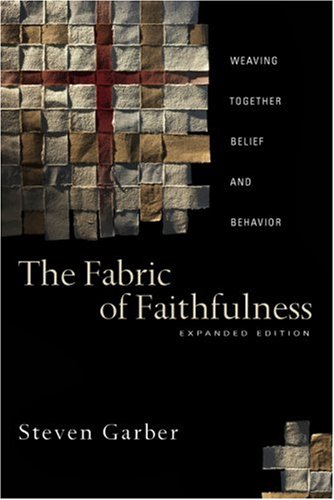 Fabric of Faithfulness: Weaving Together Belief and Behavior Steven Garber (IVP) $17.00 Again, I have written about this often, and some know that although it is a serious book to read carefully, to savor the rich sentence and ponder the incisive cultural analysis, it is, certainly, one of the great books of our time. I would rank it — if I really had to do such a thing — in my own top ten of best books I’ve ever read. You may know his somewhat more popular and recent Visions of Vocation: Common Grace for the Common Good (which I named as the book of the year when it came out in 2014.)
Fabric of Faithfulness: Weaving Together Belief and Behavior Steven Garber (IVP) $17.00 Again, I have written about this often, and some know that although it is a serious book to read carefully, to savor the rich sentence and ponder the incisive cultural analysis, it is, certainly, one of the great books of our time. I would rank it — if I really had to do such a thing — in my own top ten of best books I’ve ever read. You may know his somewhat more popular and recent Visions of Vocation: Common Grace for the Common Good (which I named as the book of the year when it came out in 2014.) 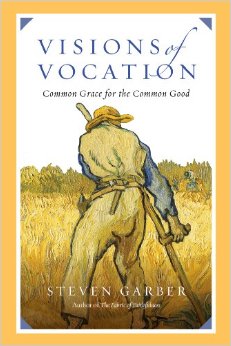 The authors listed above, and this Dallastown bookseller agree: Garber’s work is important, mature, sophisticated, and eloquent. Fabric… is well worth reading, and would make a great book to give to a mature student, perhaps a college senior or one going off to grad school. In fact, give her or him both of Garber’s wondrous books: a little set of FoF and VoV. Both books are, among other things, about this fundamental question: w
The authors listed above, and this Dallastown bookseller agree: Garber’s work is important, mature, sophisticated, and eloquent. Fabric… is well worth reading, and would make a great book to give to a mature student, perhaps a college senior or one going off to grad school. In fact, give her or him both of Garber’s wondrous books: a little set of FoF and VoV. Both books are, among other things, about this fundamental question: w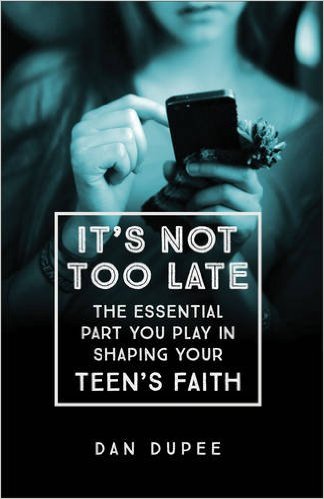 It’s Not Too Late: The Essential Part You Play in Shaping Your Teen’s Faith Dan Dupee (Baker Books) $15.99 Okay, I know some of you now are fretting, worrying about making that long drive back from taking your daughter or son to college for the first time. Or, maybe — as some of us know – you are maybe looking forward to sending ’em back to school; maybe the summer home was a bit stressful at times. This empty nest thing is a crazy roller coaster ride of emotion, even if the nest isn’t empty yet. Maybe you are wondering if your role as a parent has pretty much reached its climax, that from here on out you’ll just have to hope for the best.
It’s Not Too Late: The Essential Part You Play in Shaping Your Teen’s Faith Dan Dupee (Baker Books) $15.99 Okay, I know some of you now are fretting, worrying about making that long drive back from taking your daughter or son to college for the first time. Or, maybe — as some of us know – you are maybe looking forward to sending ’em back to school; maybe the summer home was a bit stressful at times. This empty nest thing is a crazy roller coaster ride of emotion, even if the nest isn’t empty yet. Maybe you are wondering if your role as a parent has pretty much reached its climax, that from here on out you’ll just have to hope for the best.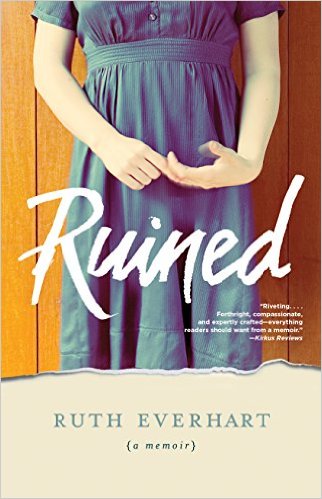
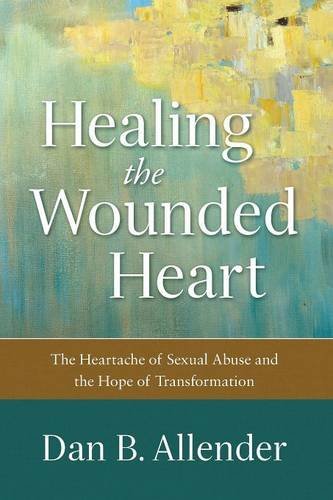 Healing the Wounded Heart: The Heartache of Sexual Abuse and the Hope of Transformation Dan B. Allender (Baker) $16.99; Workbook; $14.99 Our biggest selling book on helping survivors come to terms with sexual abuse in the past has been Dan Allender’s 1989 book Wounded Heart. We have long respected Dan and have devoured many of his other books – The Healing Path is about the recovery of faith, hope, and love, for those who have experienced trauma and deep hurt; To Be Told has the subtitle “God Invites You to Coauthor Your Future” and it is brilliant; Leading with a Limp is counter-intuitive and right.) I am not alone in appreciating his self-help stuff like Wounded Heart; it is considered nearly a classic in some circles.
Healing the Wounded Heart: The Heartache of Sexual Abuse and the Hope of Transformation Dan B. Allender (Baker) $16.99; Workbook; $14.99 Our biggest selling book on helping survivors come to terms with sexual abuse in the past has been Dan Allender’s 1989 book Wounded Heart. We have long respected Dan and have devoured many of his other books – The Healing Path is about the recovery of faith, hope, and love, for those who have experienced trauma and deep hurt; To Be Told has the subtitle “God Invites You to Coauthor Your Future” and it is brilliant; Leading with a Limp is counter-intuitive and right.) I am not alone in appreciating his self-help stuff like Wounded Heart; it is considered nearly a classic in some circles.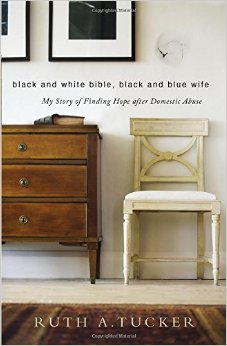 Black and White Bible, Black and Blue Wife: My Story of Finding Hope after Domestic Abuse Ruth A. Tucker (Zondervan) $16.99 This compelling and anguishing book deserves a more lengthy review than I can do here, but you should know at least a bit about it. Firstly, Dr. Tucker is an important Christian writer, having penned books on women in leadership, on famous women of church history, and a magisterial, award-winning history of global missions (From Jerusalem to Irian Jaya.)
Black and White Bible, Black and Blue Wife: My Story of Finding Hope after Domestic Abuse Ruth A. Tucker (Zondervan) $16.99 This compelling and anguishing book deserves a more lengthy review than I can do here, but you should know at least a bit about it. Firstly, Dr. Tucker is an important Christian writer, having penned books on women in leadership, on famous women of church history, and a magisterial, award-winning history of global missions (From Jerusalem to Irian Jaya.)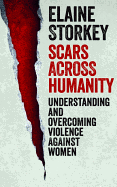 Scars Across Humanity: Understanding and Overcoming Violence Against Women Elaine Storkey (Cascade Books) $16.00 I announced this when it first came out in England, and then again when the US edition came out earlier this year. Elaine is a well-known Christian thought-leader and social activist in the UK (as is her husband, Alan Storkey.) Elaine has written excellent books on the roots of feminism, on our understandings of worldviews and gender, and why Christian faith ought not be used to oppress women. Her connection with Toronto’s Institute for Christian Studies and the US policy think tank the Center for Public Justice illustrates her thoughtfulness and rigorous scholarship weaving together lively faith and public life. (She spoke at the CCO’s Jubilee conference years ago and we are glad to be long-distant friends.) In this new book (years in the making) Elaine documents the global impact of various sorts of oppression faced by women throughout the globe. From forced marriages, sexual slavery, “honor killings” and religiously-inspired domestic violence, there is much about which we should lament and much we can do. Through compelling research and great personal stories, she not only investigates the problems but points us towards renewal and hope.
Scars Across Humanity: Understanding and Overcoming Violence Against Women Elaine Storkey (Cascade Books) $16.00 I announced this when it first came out in England, and then again when the US edition came out earlier this year. Elaine is a well-known Christian thought-leader and social activist in the UK (as is her husband, Alan Storkey.) Elaine has written excellent books on the roots of feminism, on our understandings of worldviews and gender, and why Christian faith ought not be used to oppress women. Her connection with Toronto’s Institute for Christian Studies and the US policy think tank the Center for Public Justice illustrates her thoughtfulness and rigorous scholarship weaving together lively faith and public life. (She spoke at the CCO’s Jubilee conference years ago and we are glad to be long-distant friends.) In this new book (years in the making) Elaine documents the global impact of various sorts of oppression faced by women throughout the globe. From forced marriages, sexual slavery, “honor killings” and religiously-inspired domestic violence, there is much about which we should lament and much we can do. Through compelling research and great personal stories, she not only investigates the problems but points us towards renewal and hope.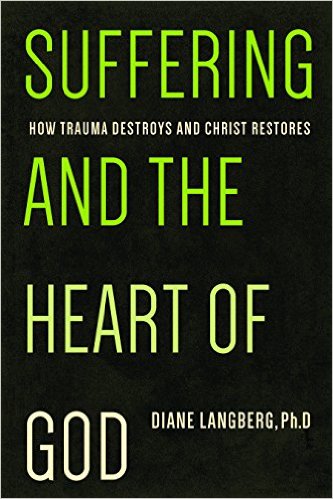 Suffering and the Heart of God: How Trauma Destroys and Christ Restores Diane Langberg (New Growth Press) $24.99 Dr. Langberg is globally recognized for her with trauma victims. We have heard her lecture and stock her previous books (both serious textbooks on counseling and more popular level resources such as On the Threshold of Hope a book for those who have been sexually assaulted.) Again, this “master-class in counseling and pastoral care” (Richard Winter) deserves a much more thorough review – allow me simply to note that it is very nicely written, very thorough, and – as it should be – passionate. She has, as one reviewer notes, “looked into the eyes of those4 wounded by evil and been a powerful voice for healing, justice, and truth.” The wounded heart, damaged by abuse and betrayal and unspeakable evil, can be healed through the power of the gospel. This is Christ-centered, grace-filled, deeply Christian stuff and her insight is profound. The body of Christ, if we are to express his love for the hurting, simply must pay more attention to those who are silently suffering. We can say that trauma and abuse – painful as it is, never to be minimized or treated with glib clichés – do not have the last word.
Suffering and the Heart of God: How Trauma Destroys and Christ Restores Diane Langberg (New Growth Press) $24.99 Dr. Langberg is globally recognized for her with trauma victims. We have heard her lecture and stock her previous books (both serious textbooks on counseling and more popular level resources such as On the Threshold of Hope a book for those who have been sexually assaulted.) Again, this “master-class in counseling and pastoral care” (Richard Winter) deserves a much more thorough review – allow me simply to note that it is very nicely written, very thorough, and – as it should be – passionate. She has, as one reviewer notes, “looked into the eyes of those4 wounded by evil and been a powerful voice for healing, justice, and truth.” The wounded heart, damaged by abuse and betrayal and unspeakable evil, can be healed through the power of the gospel. This is Christ-centered, grace-filled, deeply Christian stuff and her insight is profound. The body of Christ, if we are to express his love for the hurting, simply must pay more attention to those who are silently suffering. We can say that trauma and abuse – painful as it is, never to be minimized or treated with glib clichés – do not have the last word. 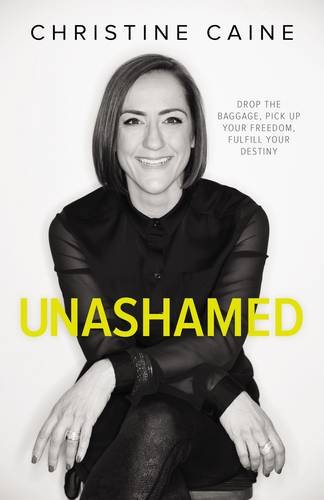 Unashamed: Drop the Baggage, Pick Up Your Freedom, Fulfill Your Destiny Christine Caine (Zondervan) $19.99 By now, I hope you know the name Christine Caine. She is a tireless speaker, an upbeat, Spirit-empowered communicator who lives to help others find a big hope and a destiny of world-changing influence. Her own story is thrilling, having been trusted and empowered by the Hillsong Community in Australia to work with at-risk youth (see her fun book Undaunted) which soon led her to the A21 Campaign, a global movement to fight sexual trafficking. In 2015 they also founded Propel Women, an organization designed to “honor the calling of every woman, empower her to lead, equip her for success, and develop a sense of God-given purpose.” Unstoppable tells the story of her becoming a leader and how we can “pass the baton” on to others.
Unashamed: Drop the Baggage, Pick Up Your Freedom, Fulfill Your Destiny Christine Caine (Zondervan) $19.99 By now, I hope you know the name Christine Caine. She is a tireless speaker, an upbeat, Spirit-empowered communicator who lives to help others find a big hope and a destiny of world-changing influence. Her own story is thrilling, having been trusted and empowered by the Hillsong Community in Australia to work with at-risk youth (see her fun book Undaunted) which soon led her to the A21 Campaign, a global movement to fight sexual trafficking. In 2015 they also founded Propel Women, an organization designed to “honor the calling of every woman, empower her to lead, equip her for success, and develop a sense of God-given purpose.” Unstoppable tells the story of her becoming a leader and how we can “pass the baton” on to others. 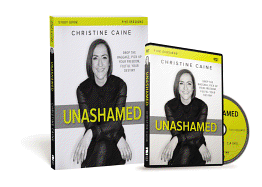 We also have the brand new DVD presentations of this content as well — it would make a great resource for a small group, an adult ed class, or home or dorm group.
We also have the brand new DVD presentations of this content as well — it would make a great resource for a small group, an adult ed class, or home or dorm group. 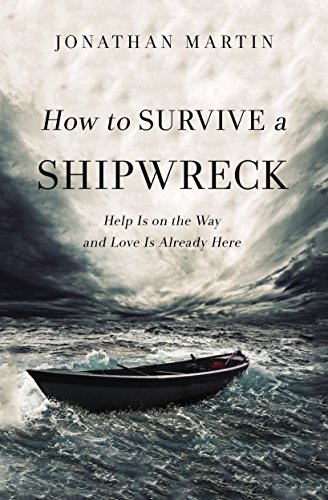 How to Survive a Shipwreck: Help Is on the Way and Love is Already Here Jonathan Martin (Zondervan) $16.99 I am three-quarters through this passionately written, eloquent book and I’m already wishing my experience of reading it wasn’t almost over. I have read portions out loud to Beth (including his long excerpt of one of my favorite, moving parts of Barbara Brown Taylor’s Leaving Church.) Martin is a crazy dude – a young, hip, Dylan-quoting church planter, a son of a Pentecostal preacher, himself Pentecostal, with a degree from Duke Divinity School where he studied under Stanley Hauerwas. His book Prototype: What Happens When You Discover Your More Like Jesus Than You Think makes a couple of big points, mostly around the humanity of Jesus and how salvation and union with Him causes us to flourish as real humans, incarnated in the messy, beautiful, broken world which we are to relish.
How to Survive a Shipwreck: Help Is on the Way and Love is Already Here Jonathan Martin (Zondervan) $16.99 I am three-quarters through this passionately written, eloquent book and I’m already wishing my experience of reading it wasn’t almost over. I have read portions out loud to Beth (including his long excerpt of one of my favorite, moving parts of Barbara Brown Taylor’s Leaving Church.) Martin is a crazy dude – a young, hip, Dylan-quoting church planter, a son of a Pentecostal preacher, himself Pentecostal, with a degree from Duke Divinity School where he studied under Stanley Hauerwas. His book Prototype: What Happens When You Discover Your More Like Jesus Than You Think makes a couple of big points, mostly around the humanity of Jesus and how salvation and union with Him causes us to flourish as real humans, incarnated in the messy, beautiful, broken world which we are to relish. 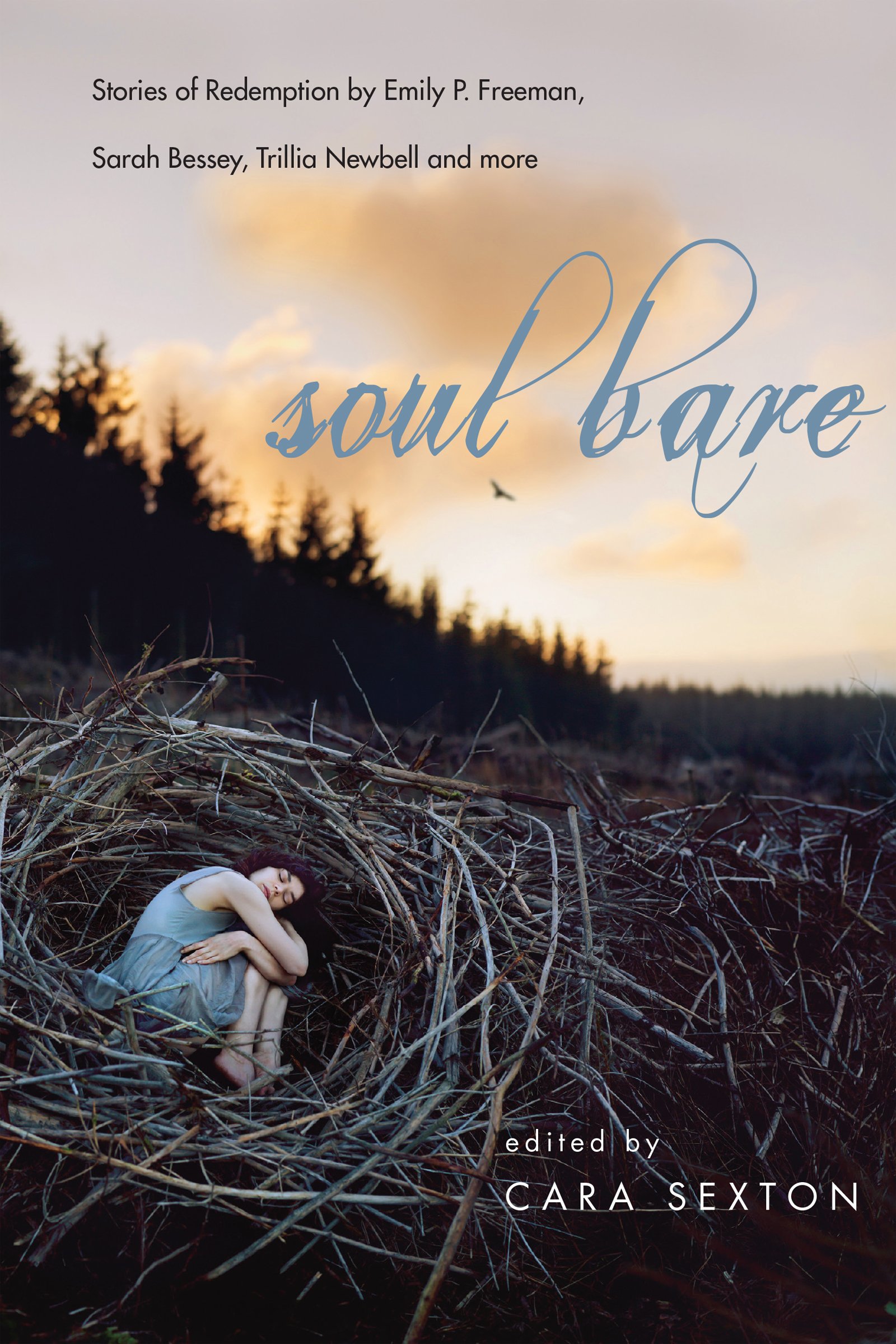 Soul Bare: Stories of Redemption edited by Cara Sexton (IVP Crescendo) $16.00 I suppose given that this wonderful anthology is published by the “Crescendo” imprint at IVP we should assume it was written for women. There are men authors here and I found some of these chapters (mostly by women) gorgeously crafted and helpfully wise. From provocative to painful, these testimonials by some published authors (Emily Freeman, Sarah Bessey, Trillian Newbell, award-winning Seth Haines) and many who are known as bloggers and speakers, show in artful, creative ways just how God works to bring healing and hope to the befuddled, hurting, wounded or lost. Idelette McVicker (founder of SheLoves Magazine) captures the experience of reading through these pieces when she says “I held my breath…I whispered prayers…Most of all I fell more deeply in love with Jesus through these words and stories.”
Soul Bare: Stories of Redemption edited by Cara Sexton (IVP Crescendo) $16.00 I suppose given that this wonderful anthology is published by the “Crescendo” imprint at IVP we should assume it was written for women. There are men authors here and I found some of these chapters (mostly by women) gorgeously crafted and helpfully wise. From provocative to painful, these testimonials by some published authors (Emily Freeman, Sarah Bessey, Trillian Newbell, award-winning Seth Haines) and many who are known as bloggers and speakers, show in artful, creative ways just how God works to bring healing and hope to the befuddled, hurting, wounded or lost. Idelette McVicker (founder of SheLoves Magazine) captures the experience of reading through these pieces when she says “I held my breath…I whispered prayers…Most of all I fell more deeply in love with Jesus through these words and stories.”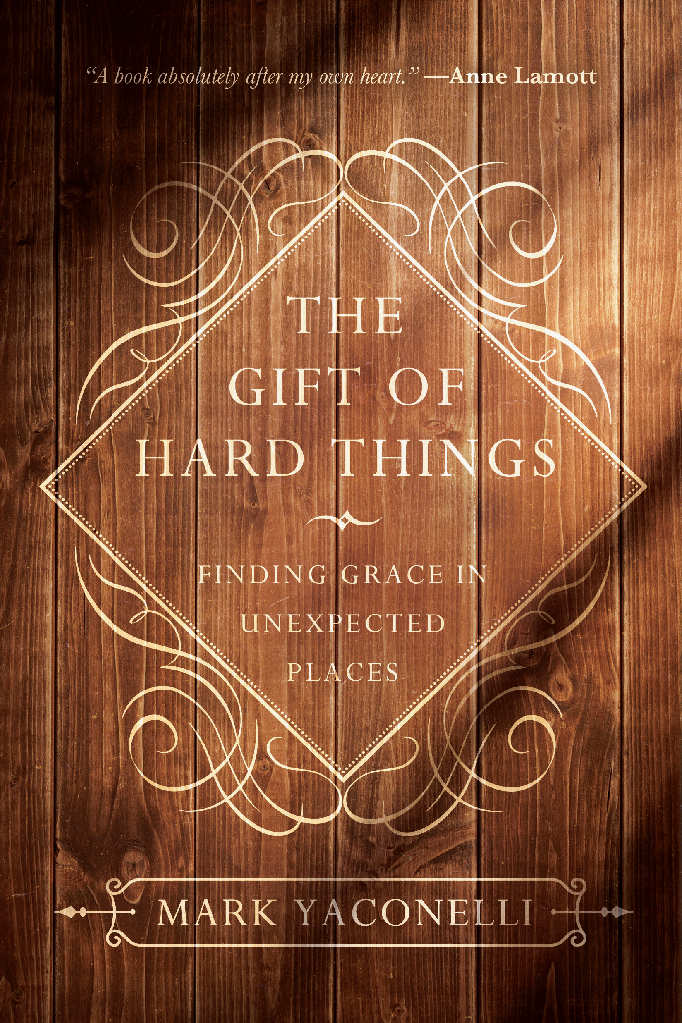 The Gift of Hard Things: Finding Grace in Unexpected Places Mark Yaconelli ((IVP formatio) $16.00 We stock everything in the IVP formatio line and I have read almost every one. I cannot wait to dive into this, but am waiting: it will be a sacred experience, I am sure, and I’m wanting to create the right space and time to consider it well. It is what I am positive is a very well-told set of stories, with spiritual practices and actionable steps that emerge from them. I want to work with this, and I suspect many will benefit from its artistry and poignant storytelling and spiritual guidance.
The Gift of Hard Things: Finding Grace in Unexpected Places Mark Yaconelli ((IVP formatio) $16.00 We stock everything in the IVP formatio line and I have read almost every one. I cannot wait to dive into this, but am waiting: it will be a sacred experience, I am sure, and I’m wanting to create the right space and time to consider it well. It is what I am positive is a very well-told set of stories, with spiritual practices and actionable steps that emerge from them. I want to work with this, and I suspect many will benefit from its artistry and poignant storytelling and spiritual guidance.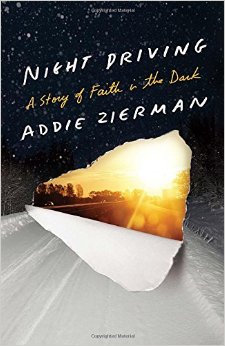 Night Driving: A Story of Faith in the Dark Addie Zierman (Convergent) $14.99 I have mentioned this at least twice before, and I’m going to alert you to it again – I think it is a heck of a good read, a fun and moving story, by a woman who can write circles around many current memoirists. Her first book, about leaving a strict and nearly toxic sort of fundamentalism was called When We Were On Fire and was named by Publishers Weekly as one of the top five religious books of 2013. I loved most of it; it drew me into the story as a really good memoir does. This new one showcases her storytelling once again as she takes an emotionally-charged spiritual road trip, literally, searching for God as she takes her little ones on a trip to her roots, her homeland, down South. Do you have to “run away to find home?” What does one do when one doesn’t feel God’s presence? (Lauren Winner’s Still, anyone?)
Night Driving: A Story of Faith in the Dark Addie Zierman (Convergent) $14.99 I have mentioned this at least twice before, and I’m going to alert you to it again – I think it is a heck of a good read, a fun and moving story, by a woman who can write circles around many current memoirists. Her first book, about leaving a strict and nearly toxic sort of fundamentalism was called When We Were On Fire and was named by Publishers Weekly as one of the top five religious books of 2013. I loved most of it; it drew me into the story as a really good memoir does. This new one showcases her storytelling once again as she takes an emotionally-charged spiritual road trip, literally, searching for God as she takes her little ones on a trip to her roots, her homeland, down South. Do you have to “run away to find home?” What does one do when one doesn’t feel God’s presence? (Lauren Winner’s Still, anyone?)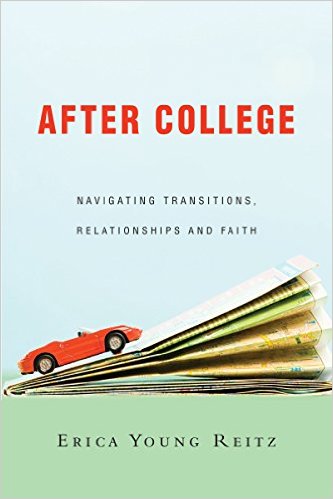 After College: Navigating Transitions, Relationships and Faith by Erica Young Reitz (IVP) $16.00 It was a truly great joy a few weeks ago to be with Erica and her colleagues from the campus ministry organization the CCO to celebrate the release of this brand new book. Erica is one of the most gifted and insightful and caring campus workers we know, and we’ve watched her over the years as she developed a program at Penn State University to help college seniors prepare to exit well, to transition out of their academic experience and into the so-called “real world.” Her program has been immensely valuable for many, and in this new book she offers insight learned in those years with seniors preparing for the post-college years. She offers stories, insight, guidance and the clear voice of a stable, trusted friend as from a wise older sister, inviting young adults to take their faith seriously in their 20-something years.
After College: Navigating Transitions, Relationships and Faith by Erica Young Reitz (IVP) $16.00 It was a truly great joy a few weeks ago to be with Erica and her colleagues from the campus ministry organization the CCO to celebrate the release of this brand new book. Erica is one of the most gifted and insightful and caring campus workers we know, and we’ve watched her over the years as she developed a program at Penn State University to help college seniors prepare to exit well, to transition out of their academic experience and into the so-called “real world.” Her program has been immensely valuable for many, and in this new book she offers insight learned in those years with seniors preparing for the post-college years. She offers stories, insight, guidance and the clear voice of a stable, trusted friend as from a wise older sister, inviting young adults to take their faith seriously in their 20-something years.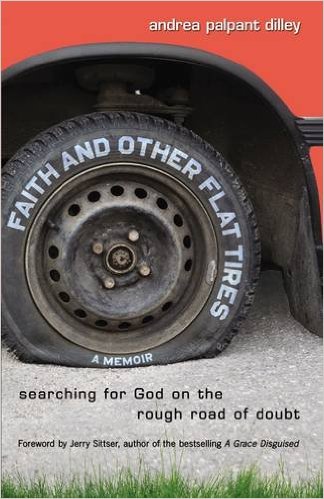 (By the way, coming of age spiritual memoirs written by those trying to make sense of their lives are useful for all of us to read and sometimes useful to share with others, as a friend or road map or guide to the journey. I think of Faith and Other Flat Tires: Searching for God on the Rough Road of Doubt by the very fine writer Andrea Palpant Dilley which I reviewed a few years ago, also set on a conservative college campus, just for instance.)
(By the way, coming of age spiritual memoirs written by those trying to make sense of their lives are useful for all of us to read and sometimes useful to share with others, as a friend or road map or guide to the journey. I think of Faith and Other Flat Tires: Searching for God on the Rough Road of Doubt by the very fine writer Andrea Palpant Dilley which I reviewed a few years ago, also set on a conservative college campus, just for instance.)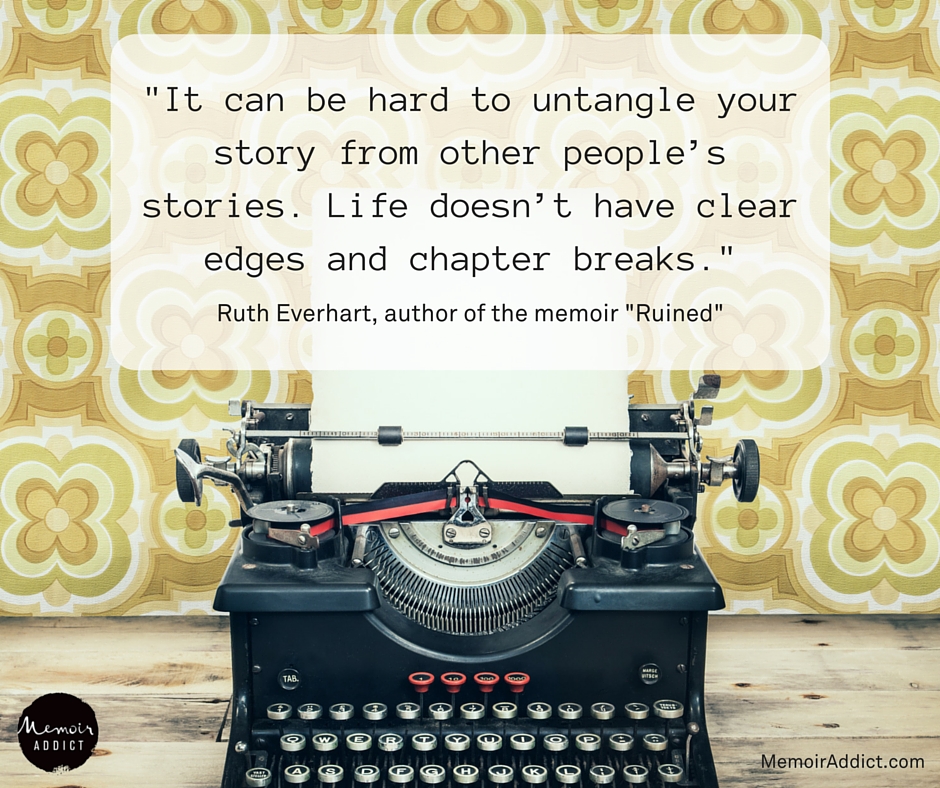 Yet another part of this tremendous book is how Ruth’s faith journey led her to a new friend and an inner city Lutheran church community that indeed offered a safe place to grapple with theodicy, with questions about the role of women in society and church, to explore her love for philosophy and theology, kindled in spurts with good professors at Calvin. She attends an upstart seminary in a ramshackle building in Minneapolis, learning more about more mainline denominational voices, women’s theology, liberation theology, and more. She develops a sense of call into ordained ministry, blending her evangelical and Reformed heritage, her experiences in charismatic renewal, and her newly discovered contemporary theological skills with a keen pastoral sense. I needn’t tell you the rest, but it is always a delight, I think, to lean over the shoulder of one who is discerning a call, trying honestly (through a glass darkly, even, at times) to hear the voice of God and to pursue discipleship in a way that is coherent and faithful.
Yet another part of this tremendous book is how Ruth’s faith journey led her to a new friend and an inner city Lutheran church community that indeed offered a safe place to grapple with theodicy, with questions about the role of women in society and church, to explore her love for philosophy and theology, kindled in spurts with good professors at Calvin. She attends an upstart seminary in a ramshackle building in Minneapolis, learning more about more mainline denominational voices, women’s theology, liberation theology, and more. She develops a sense of call into ordained ministry, blending her evangelical and Reformed heritage, her experiences in charismatic renewal, and her newly discovered contemporary theological skills with a keen pastoral sense. I needn’t tell you the rest, but it is always a delight, I think, to lean over the shoulder of one who is discerning a call, trying honestly (through a glass darkly, even, at times) to hear the voice of God and to pursue discipleship in a way that is coherent and faithful.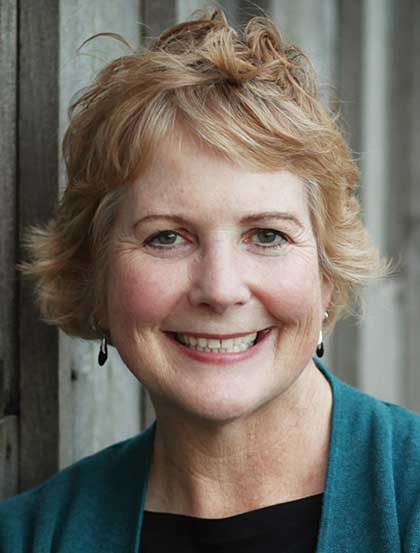 There is an epilogue to the book, set off in italics, that, even though only a few pages, have haunted me and touched me.
There is an epilogue to the book, set off in italics, that, even though only a few pages, have haunted me and touched me.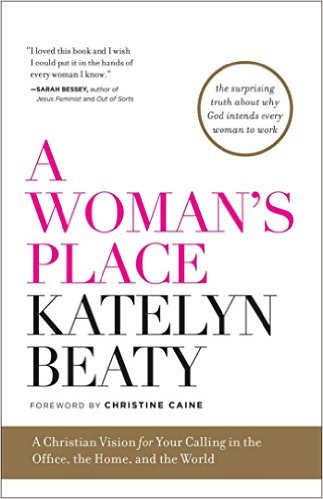 Allow us to tell you about A Woman’s Place: A Christian
Allow us to tell you about A Woman’s Place: A Christian Ms. Beaty is a great reporter and writer (she is, by the
Ms. Beaty is a great reporter and writer (she is, by the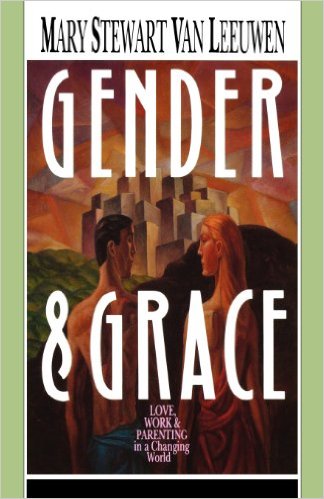 I learned decades ago from a book that Beaty does not cite,
I learned decades ago from a book that Beaty does not cite,